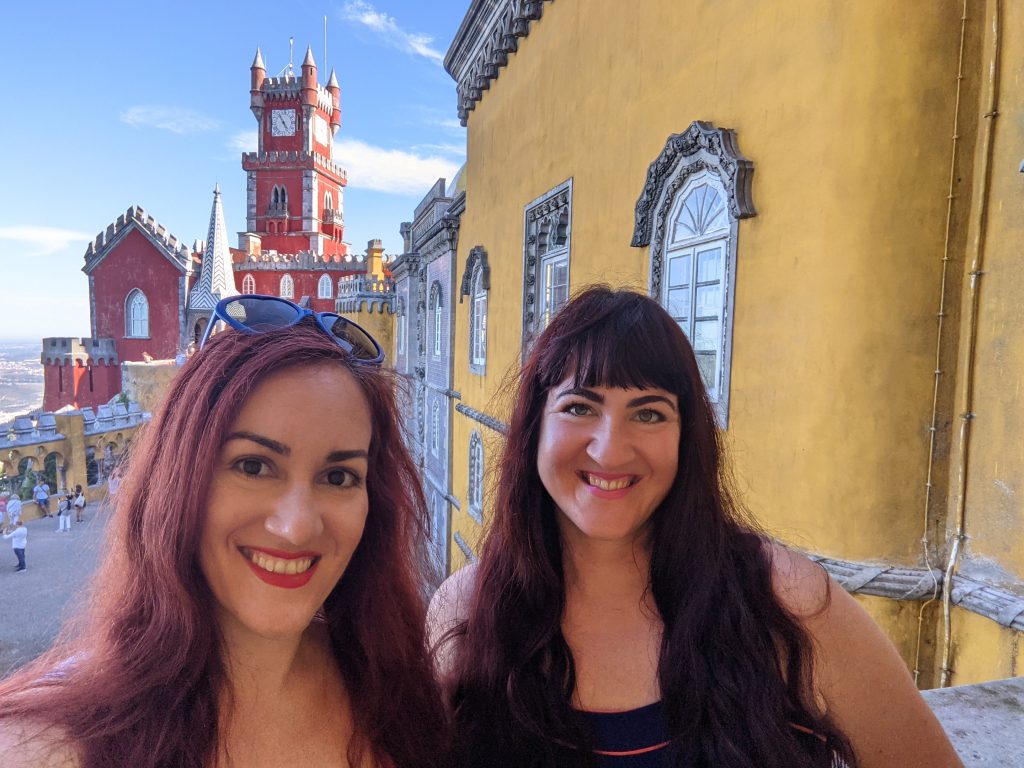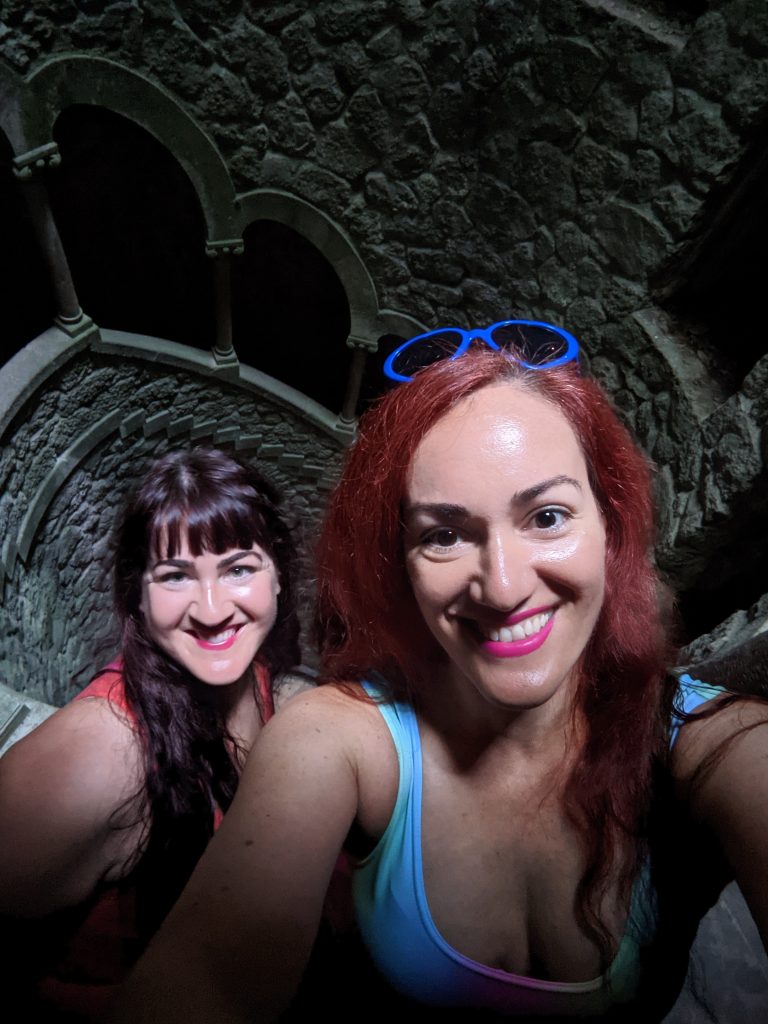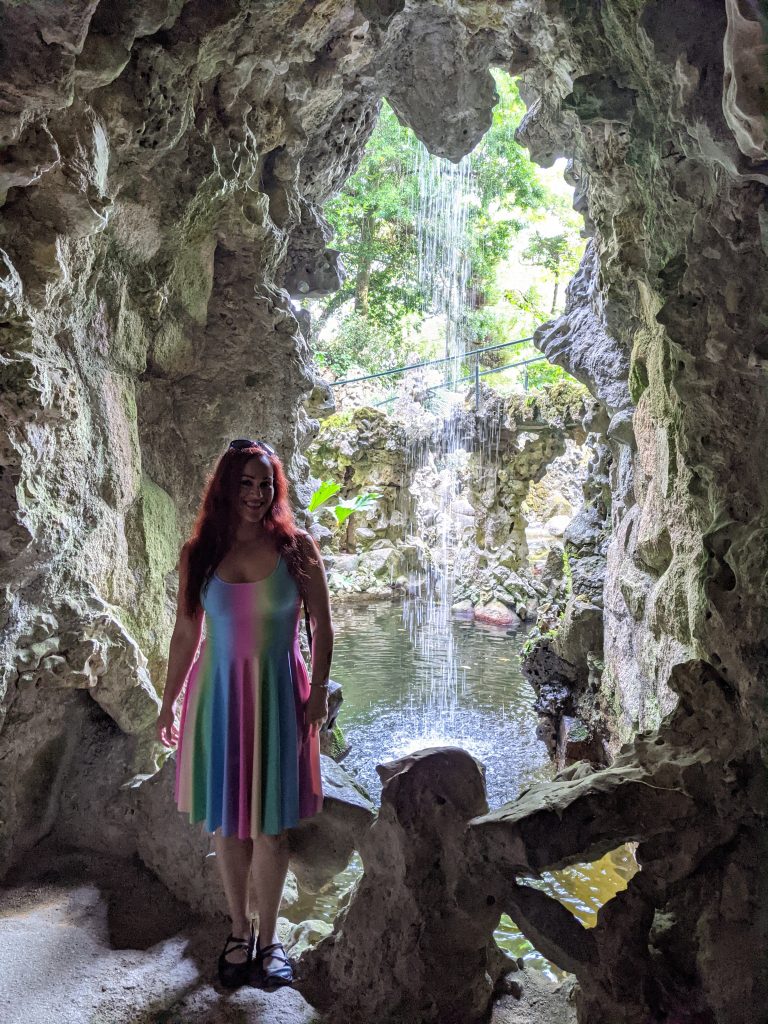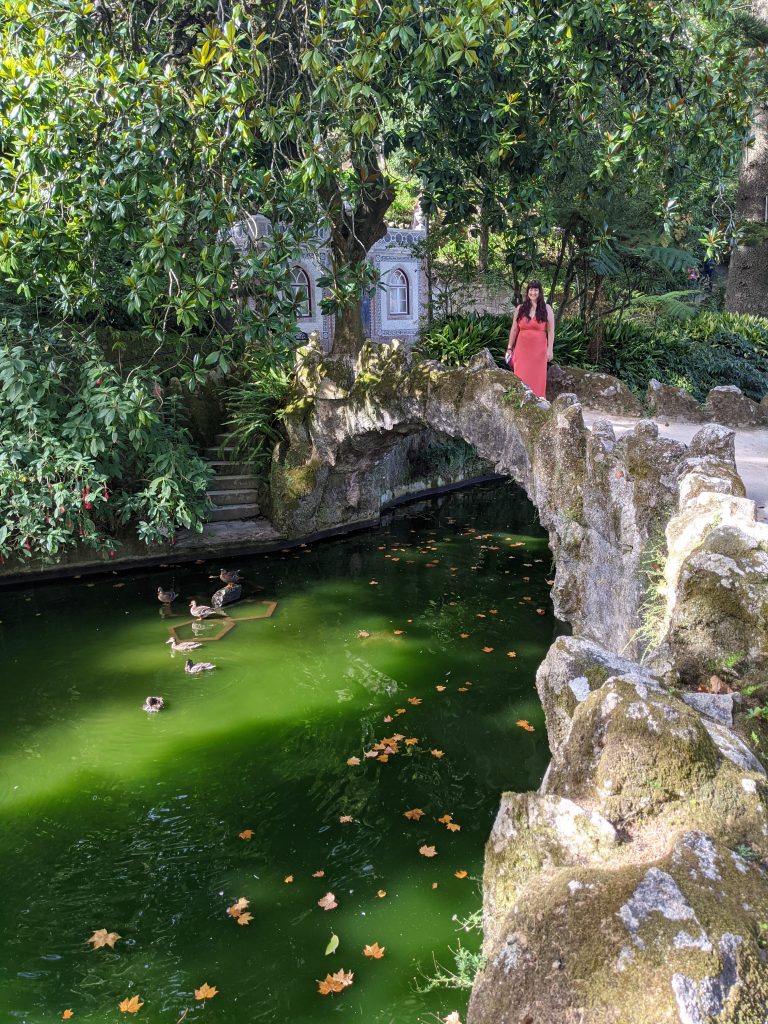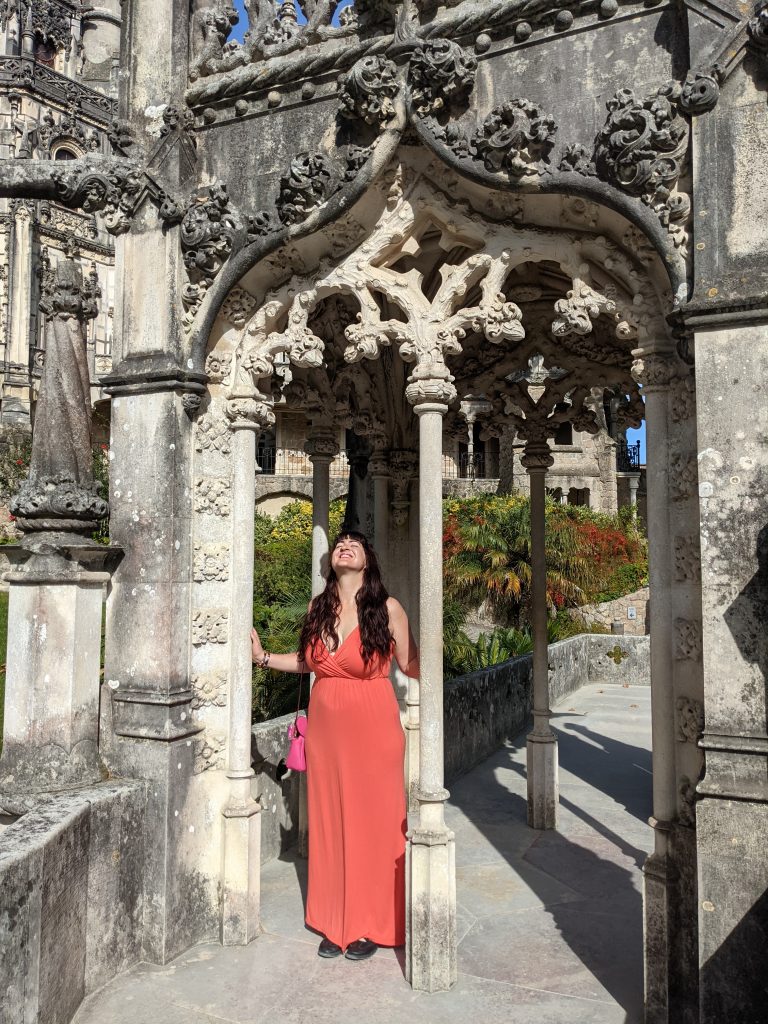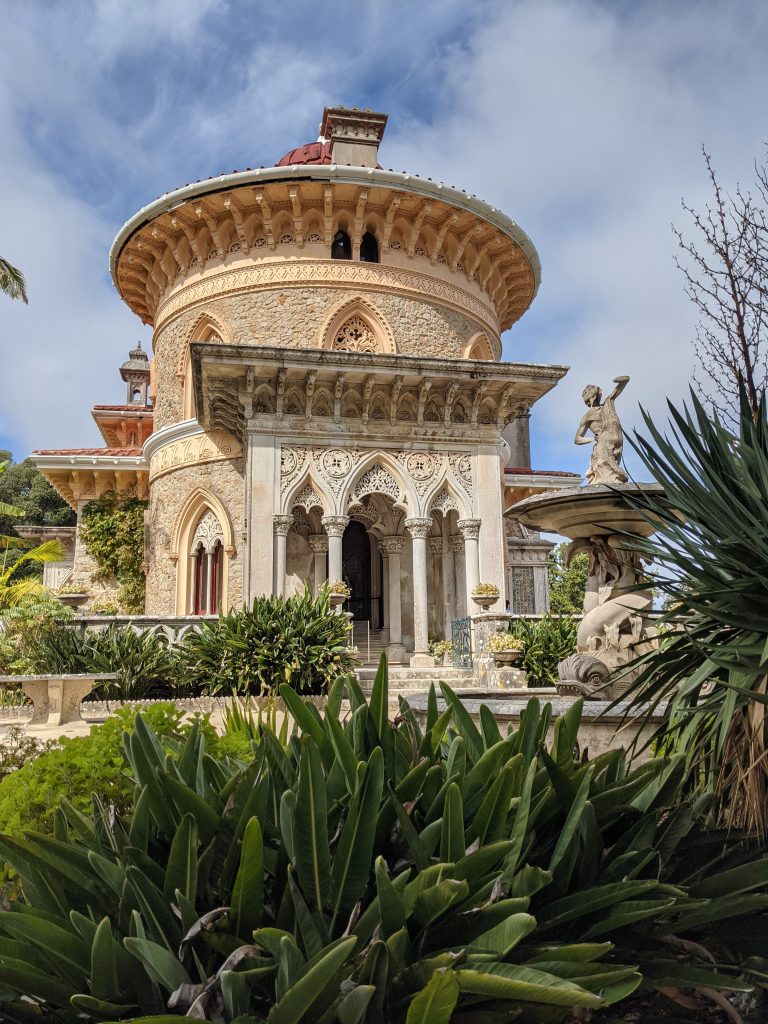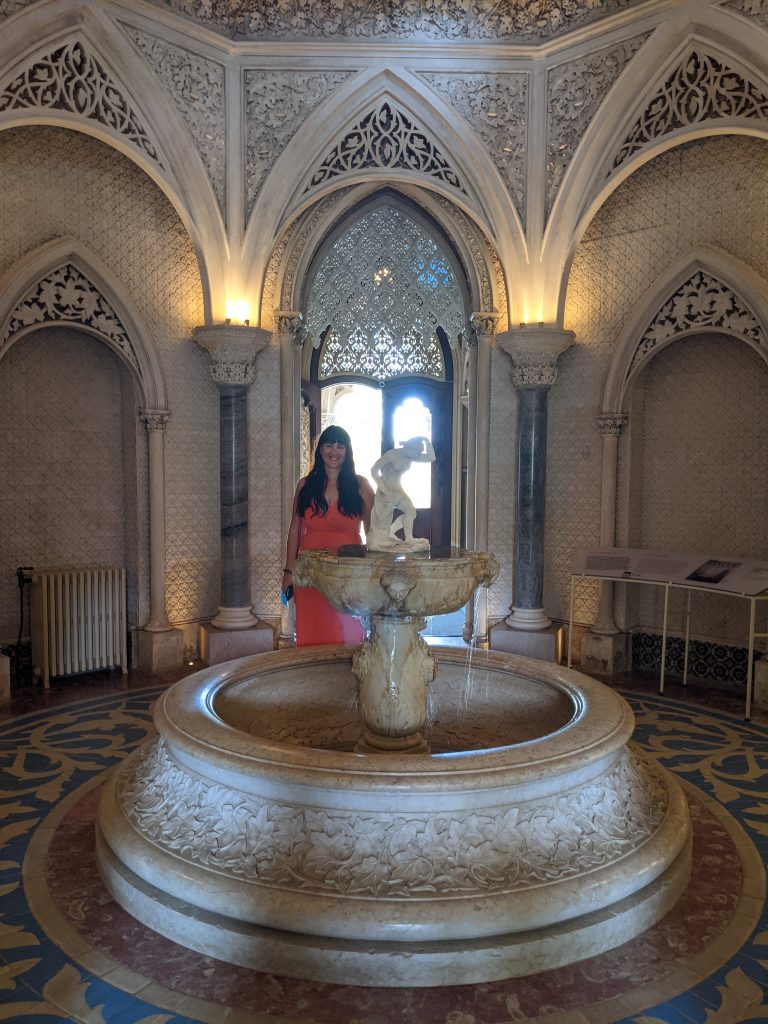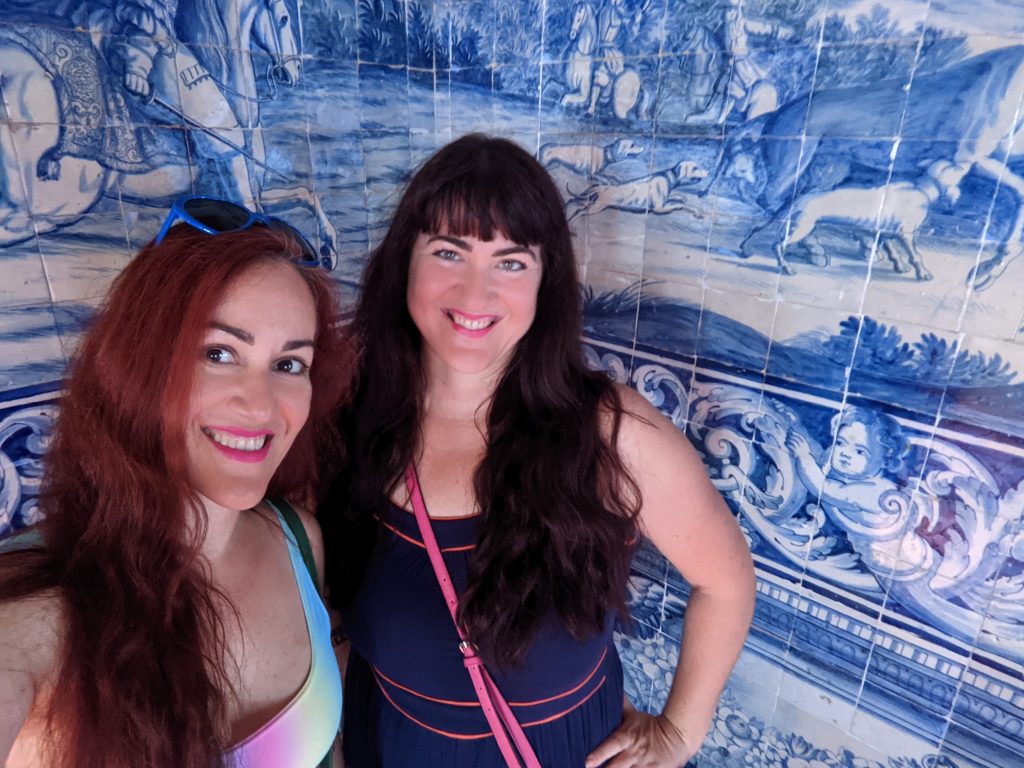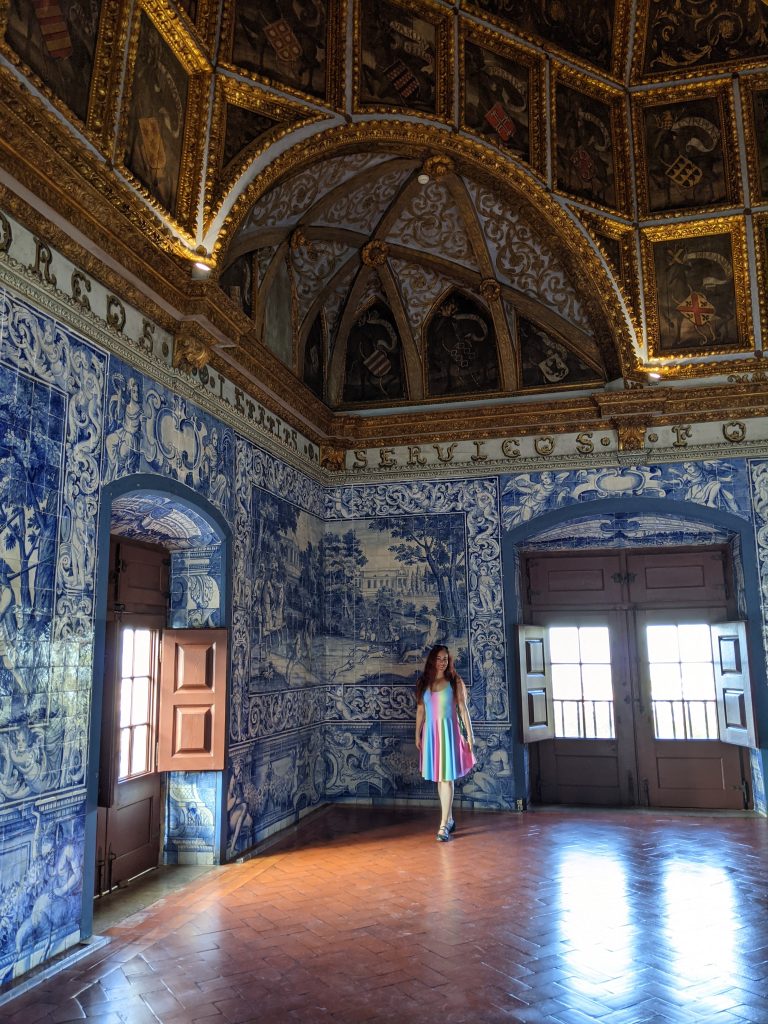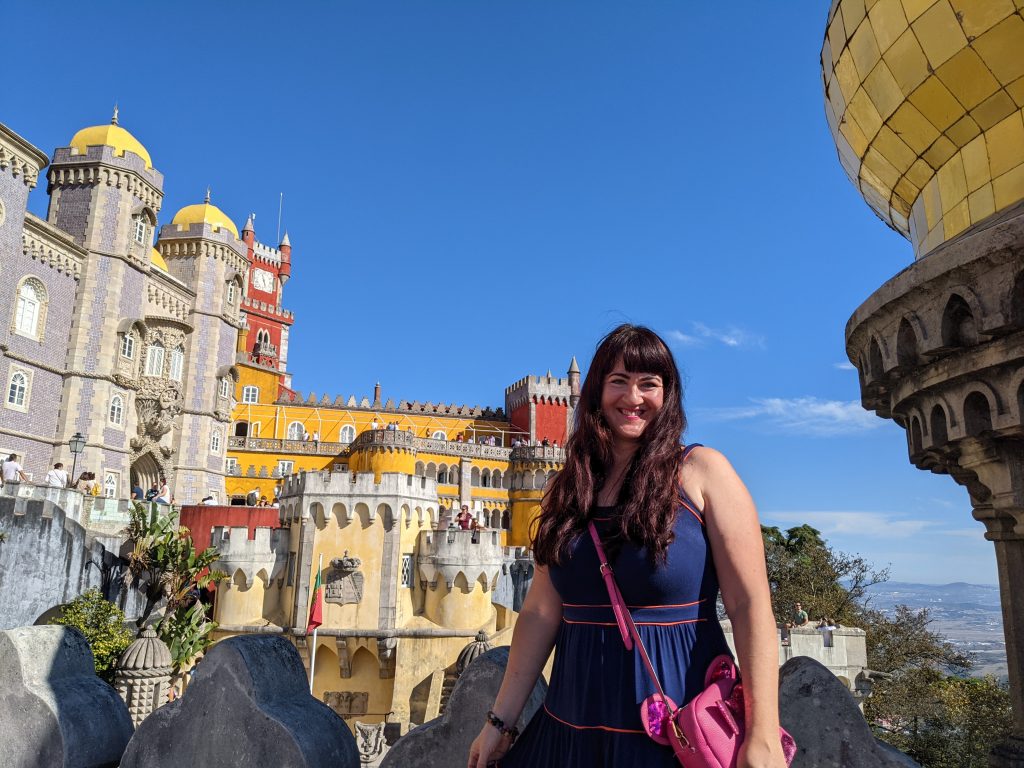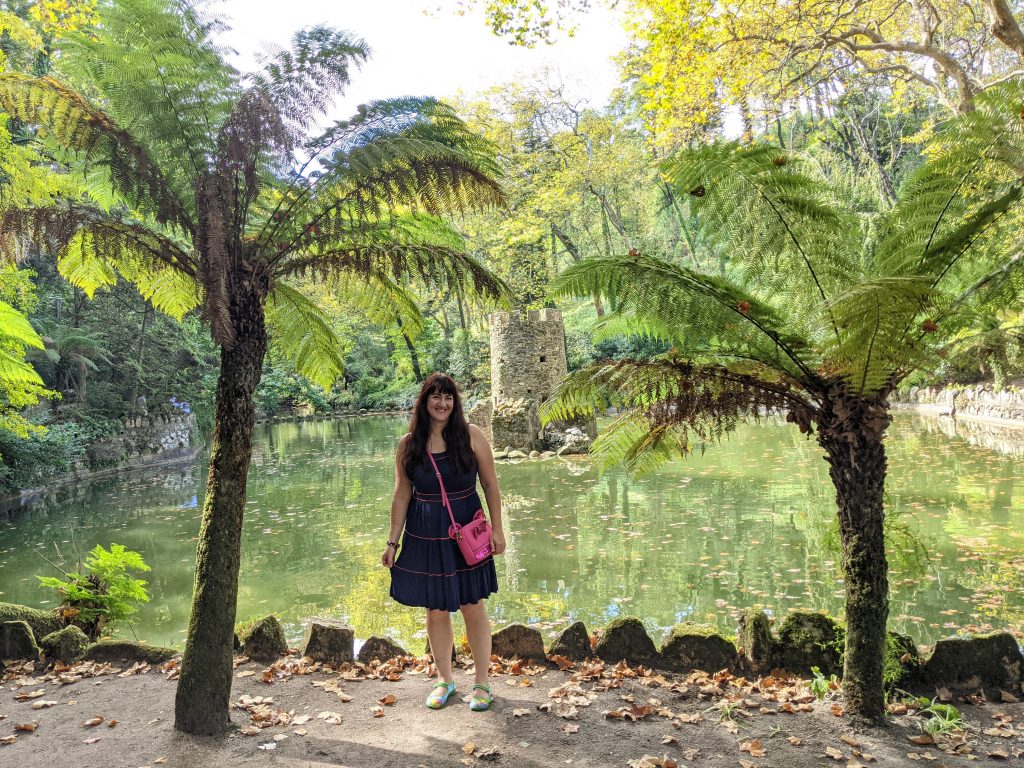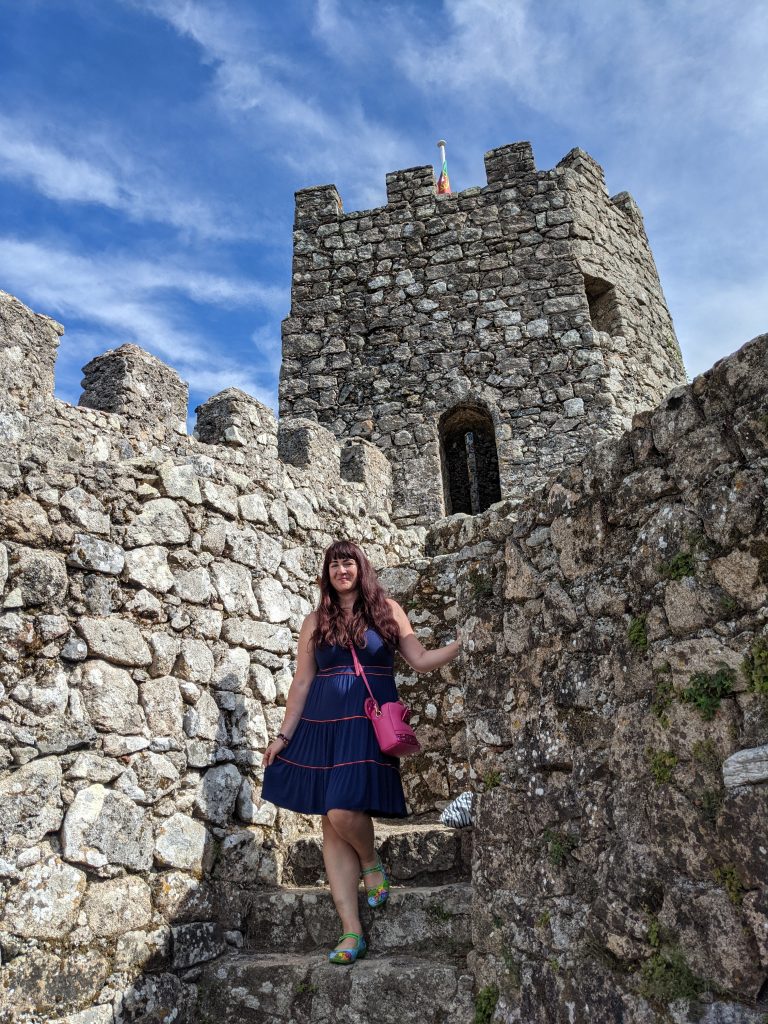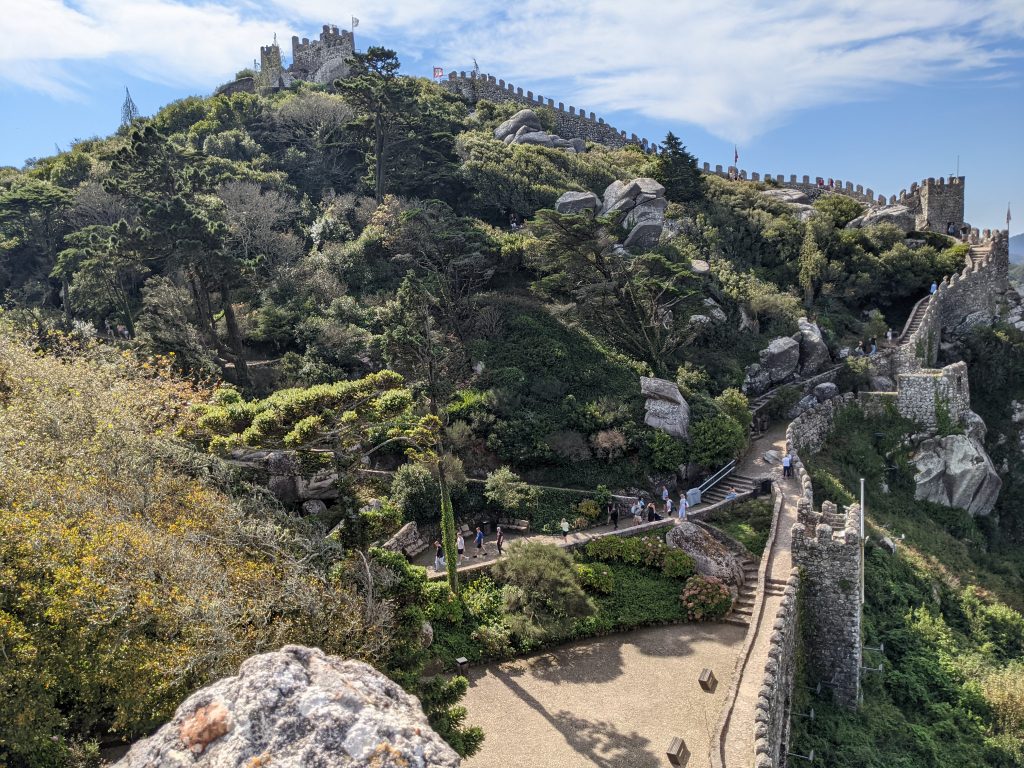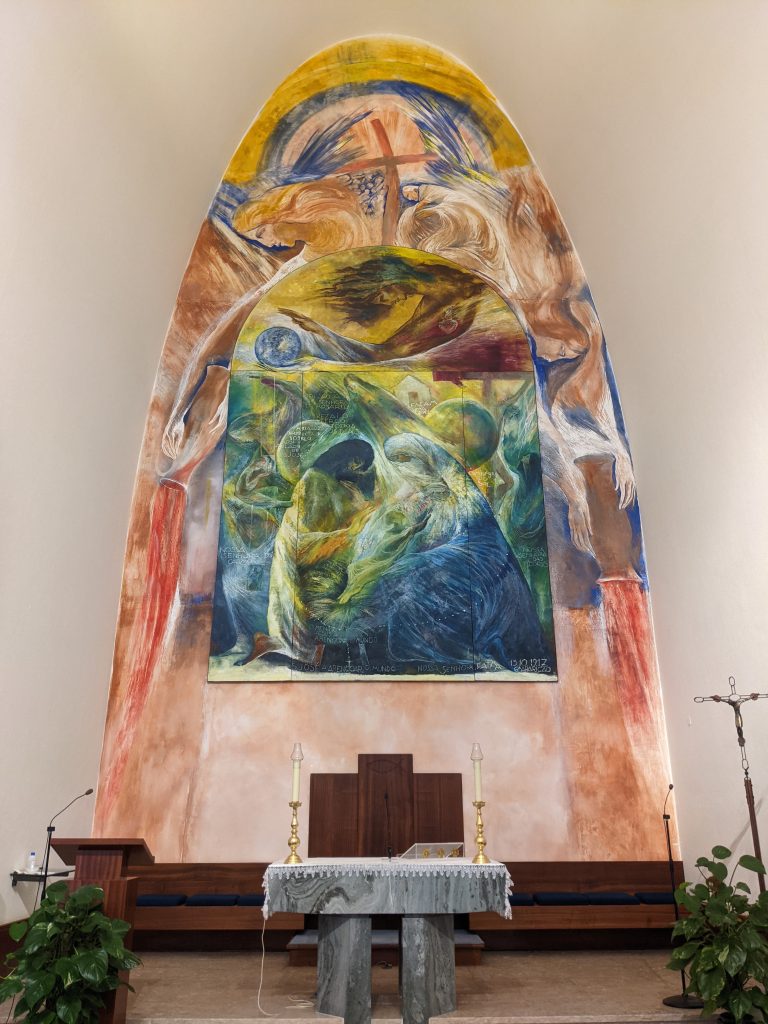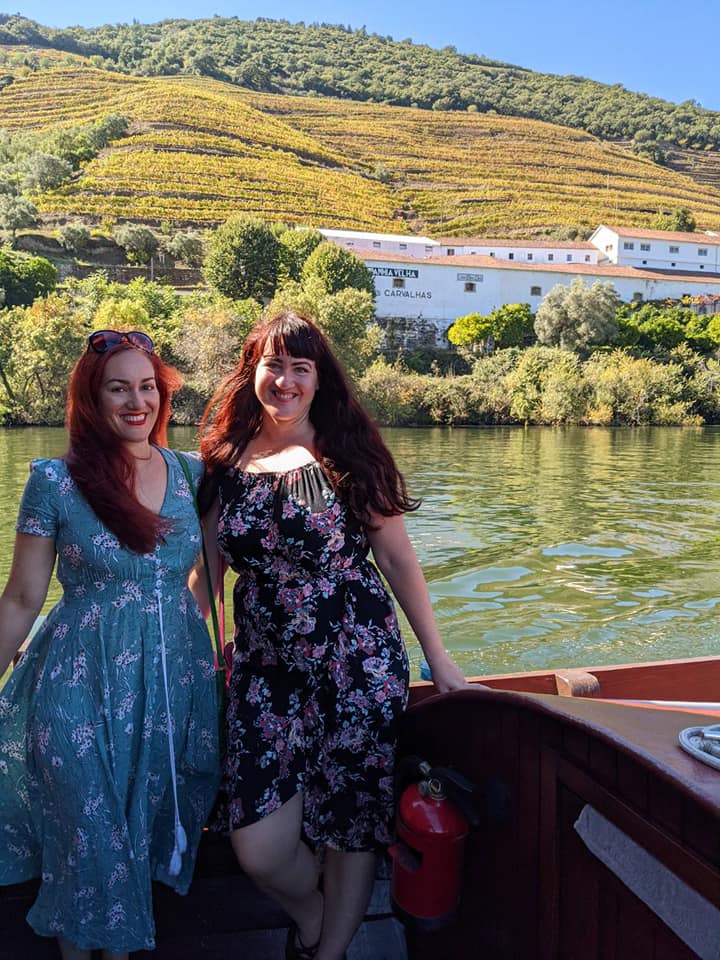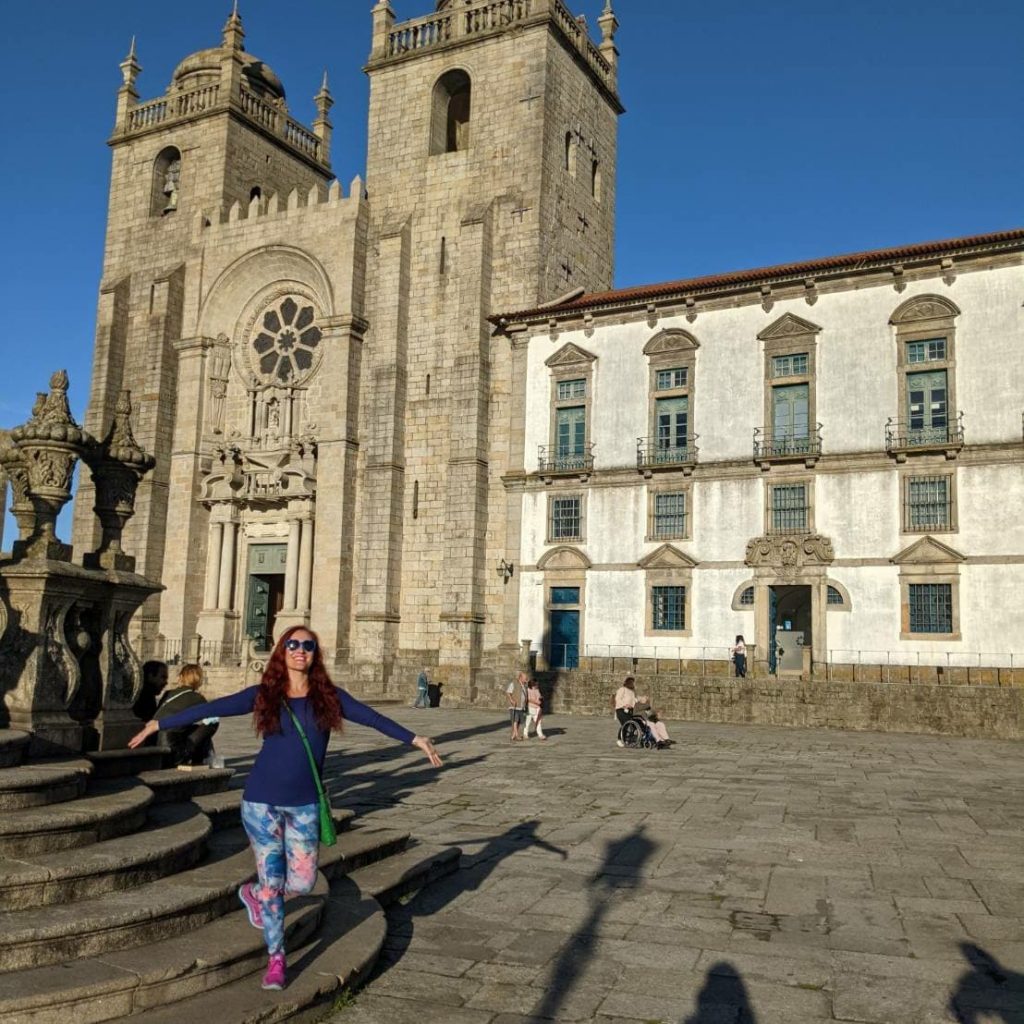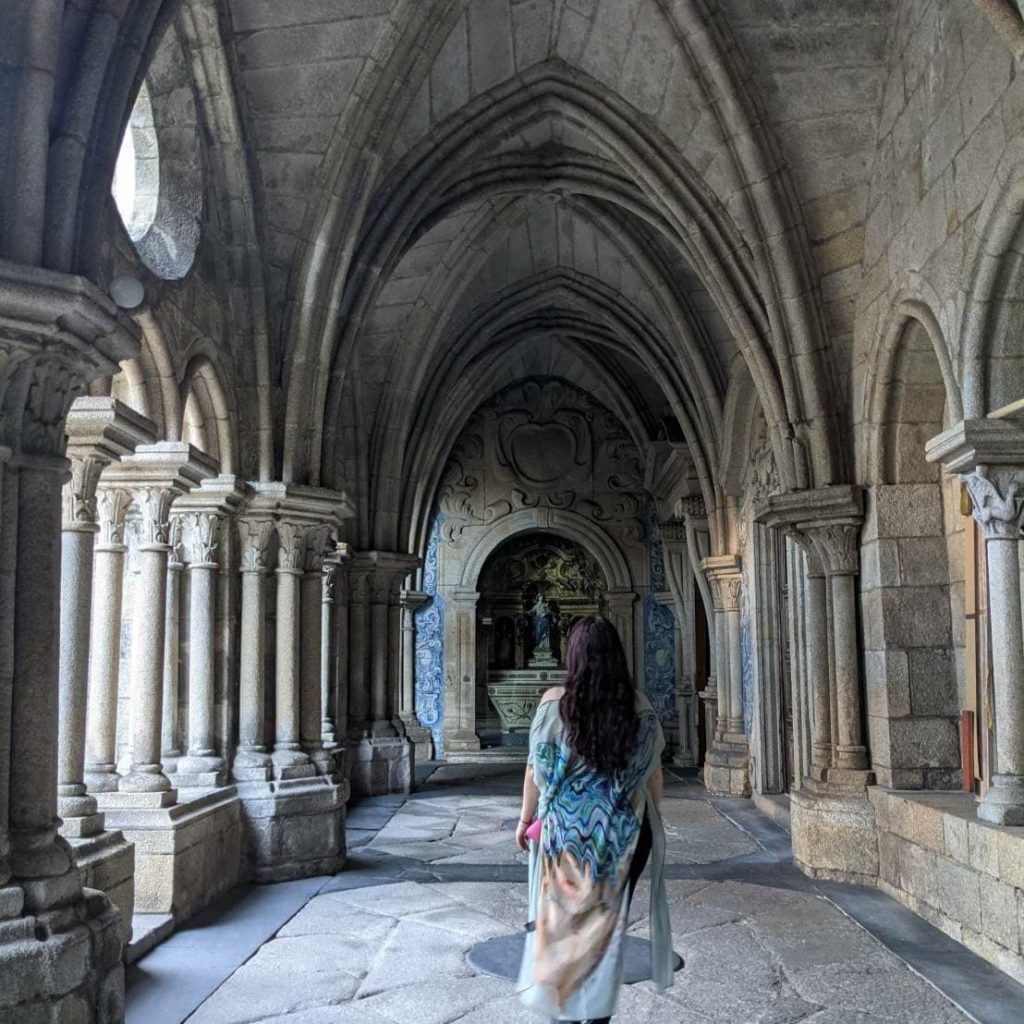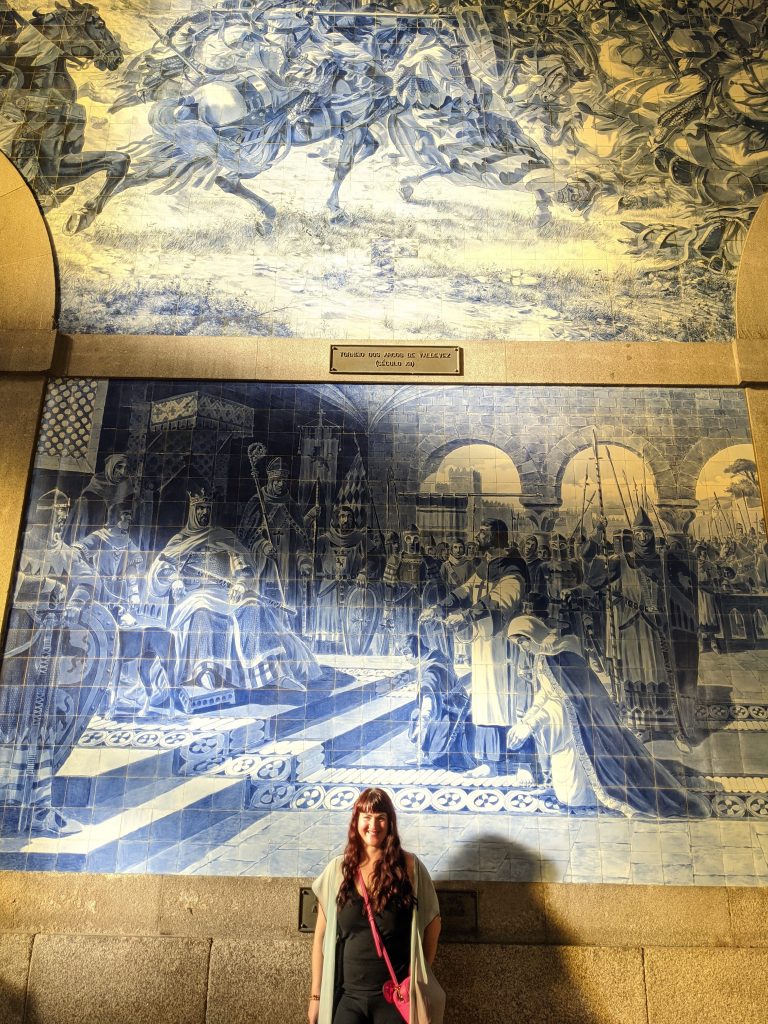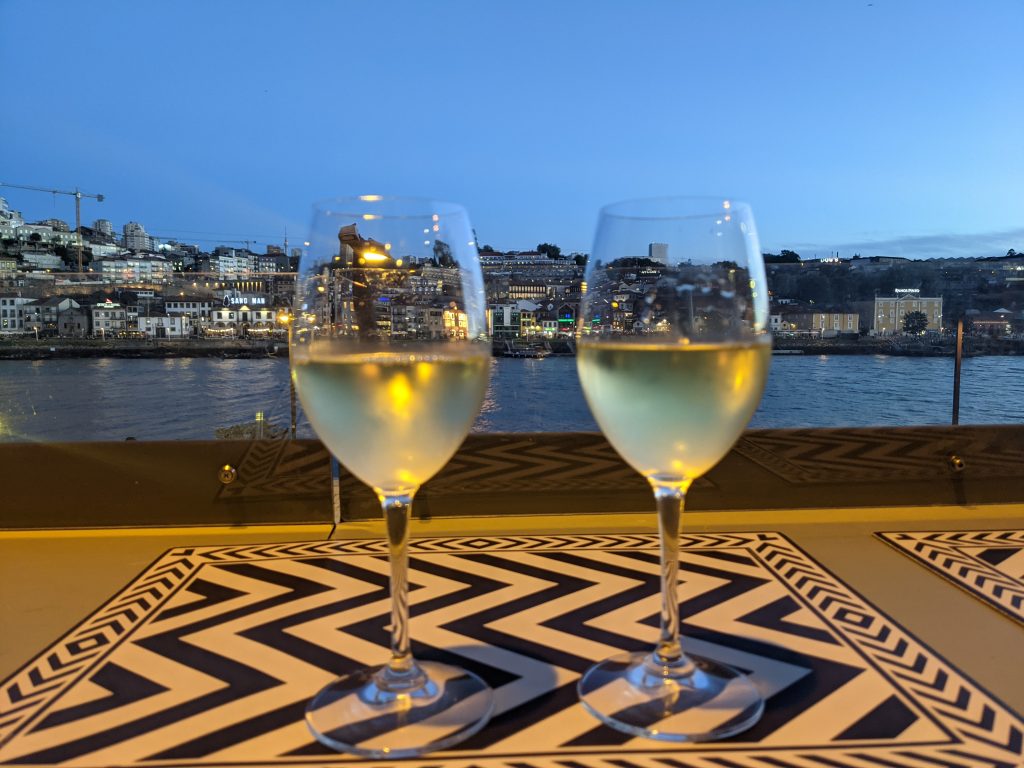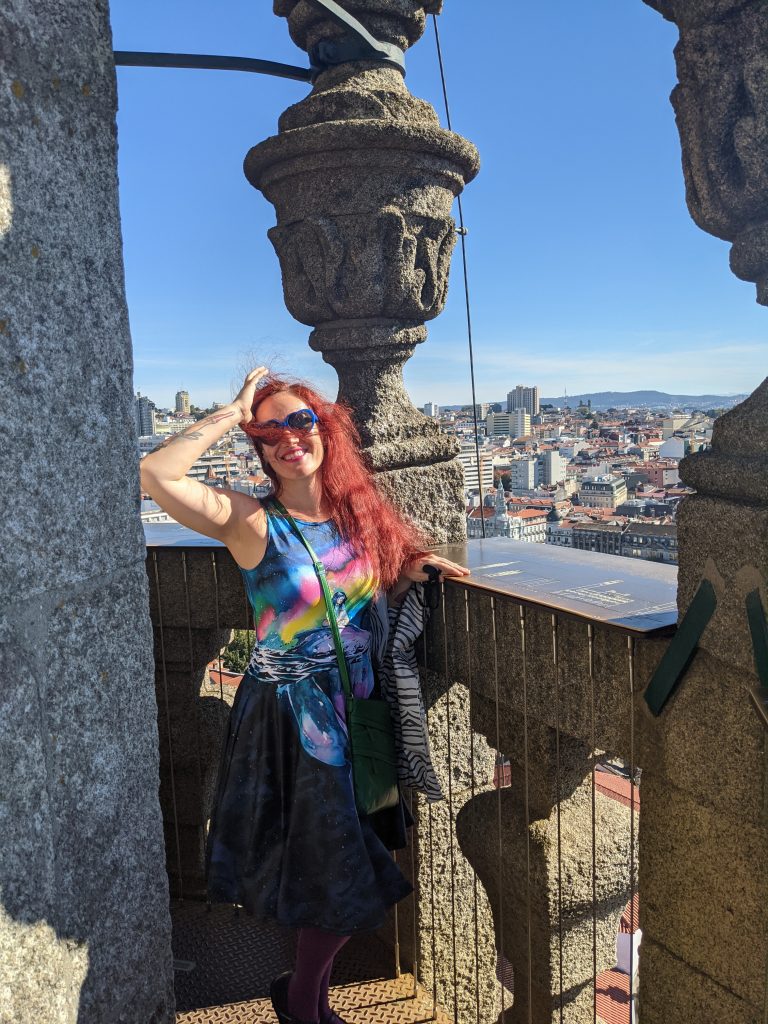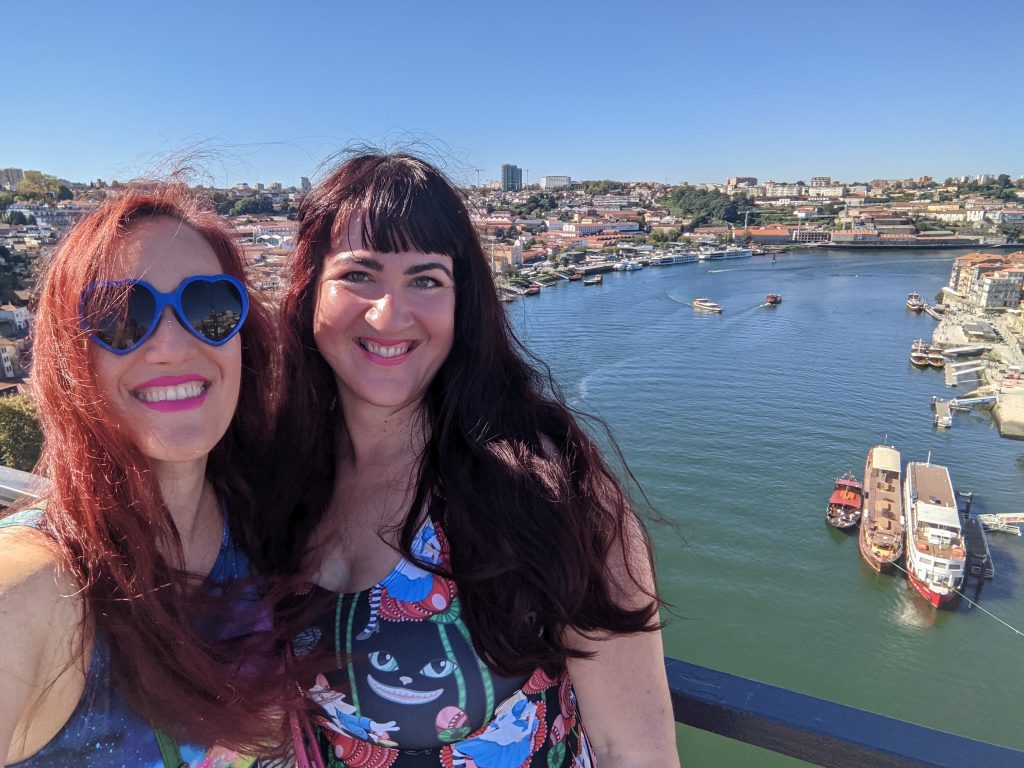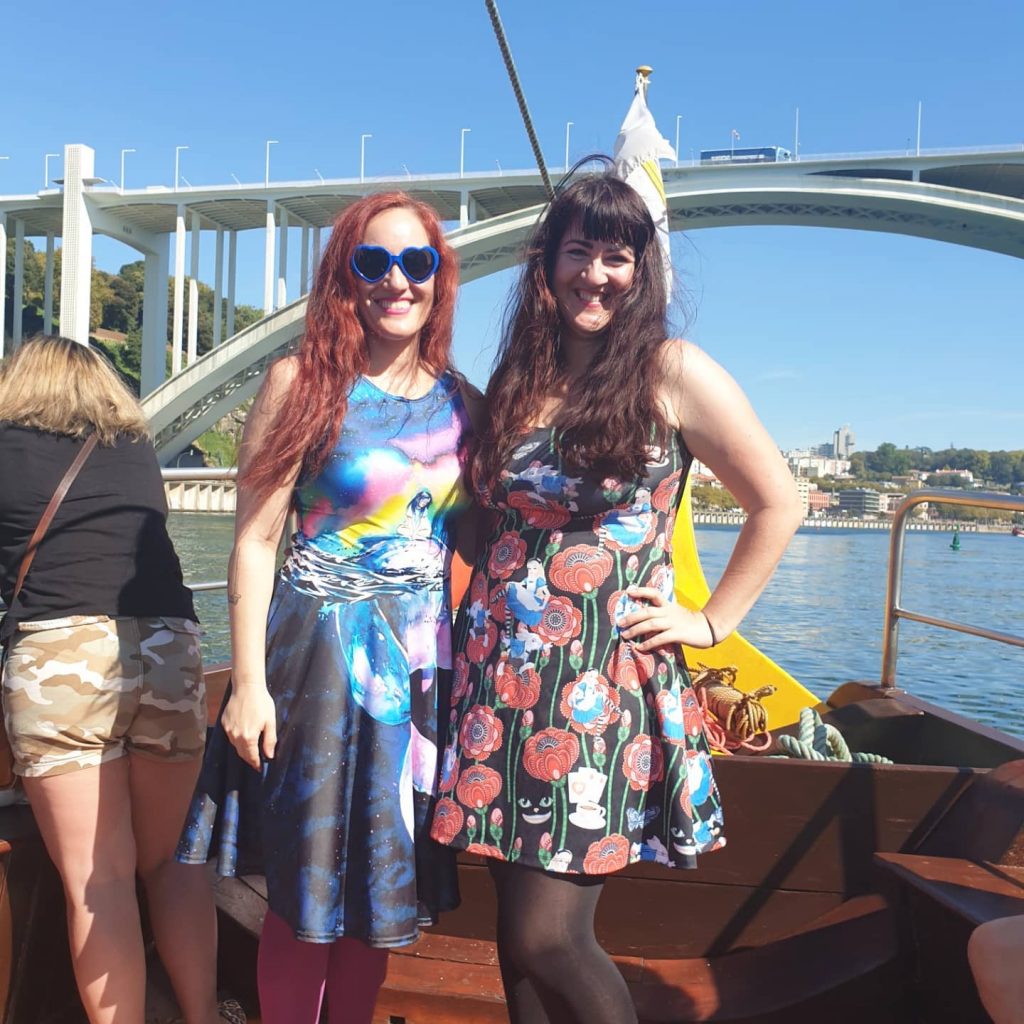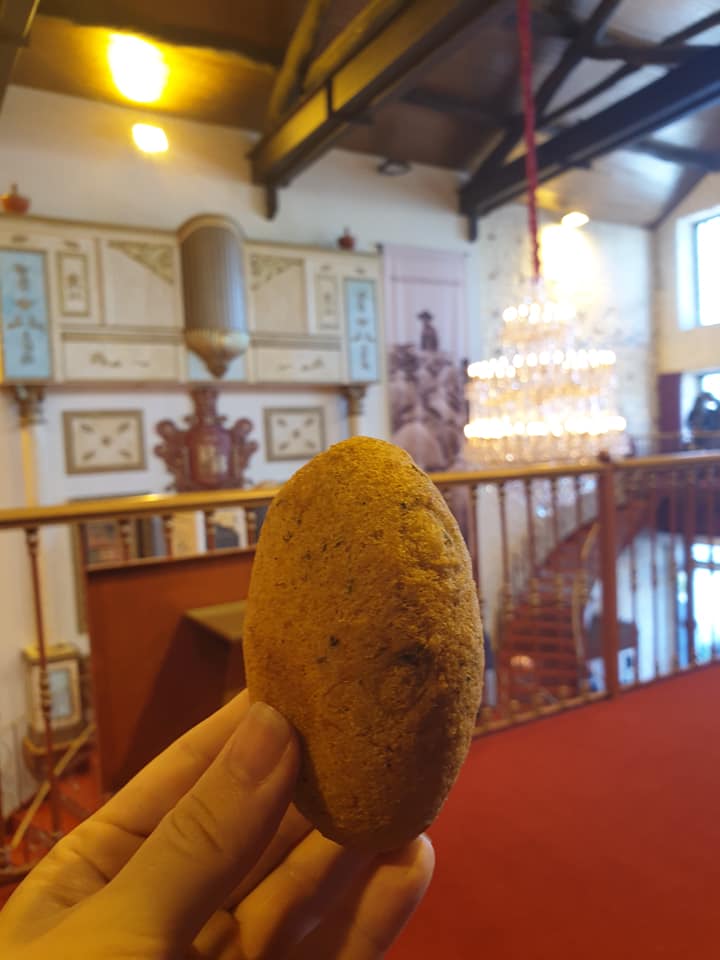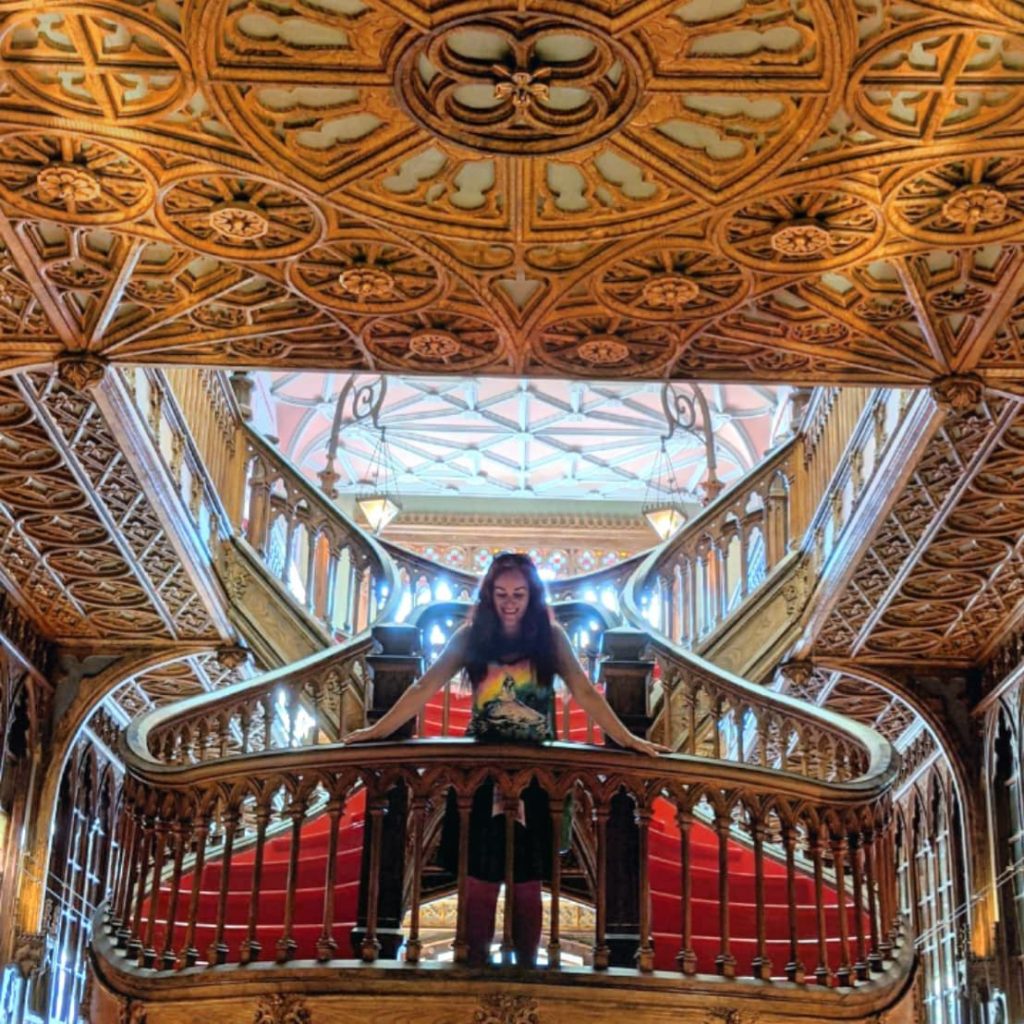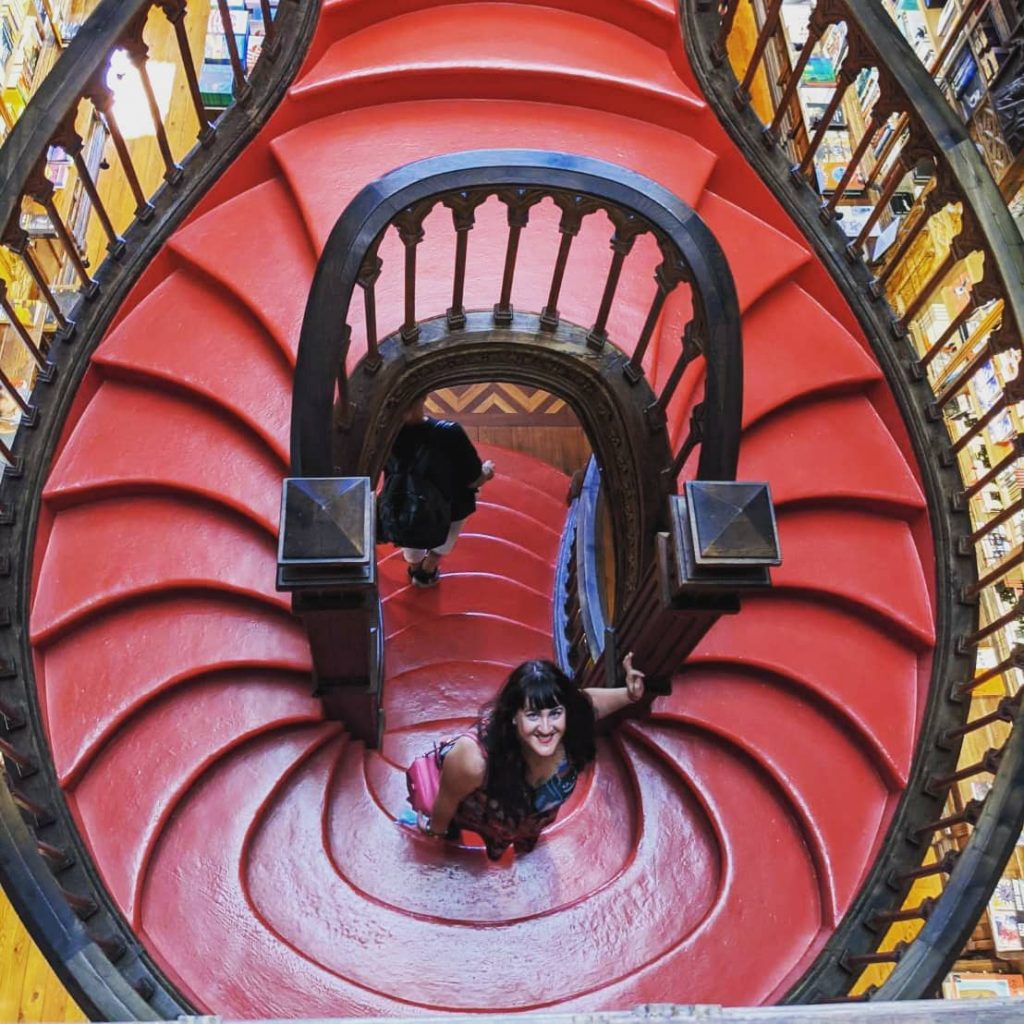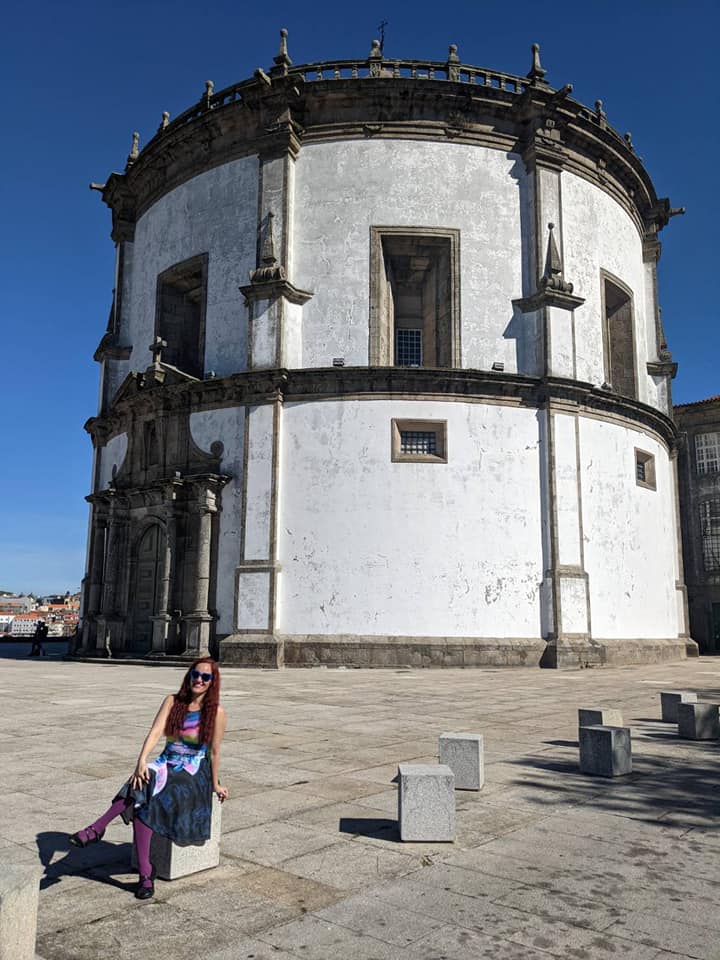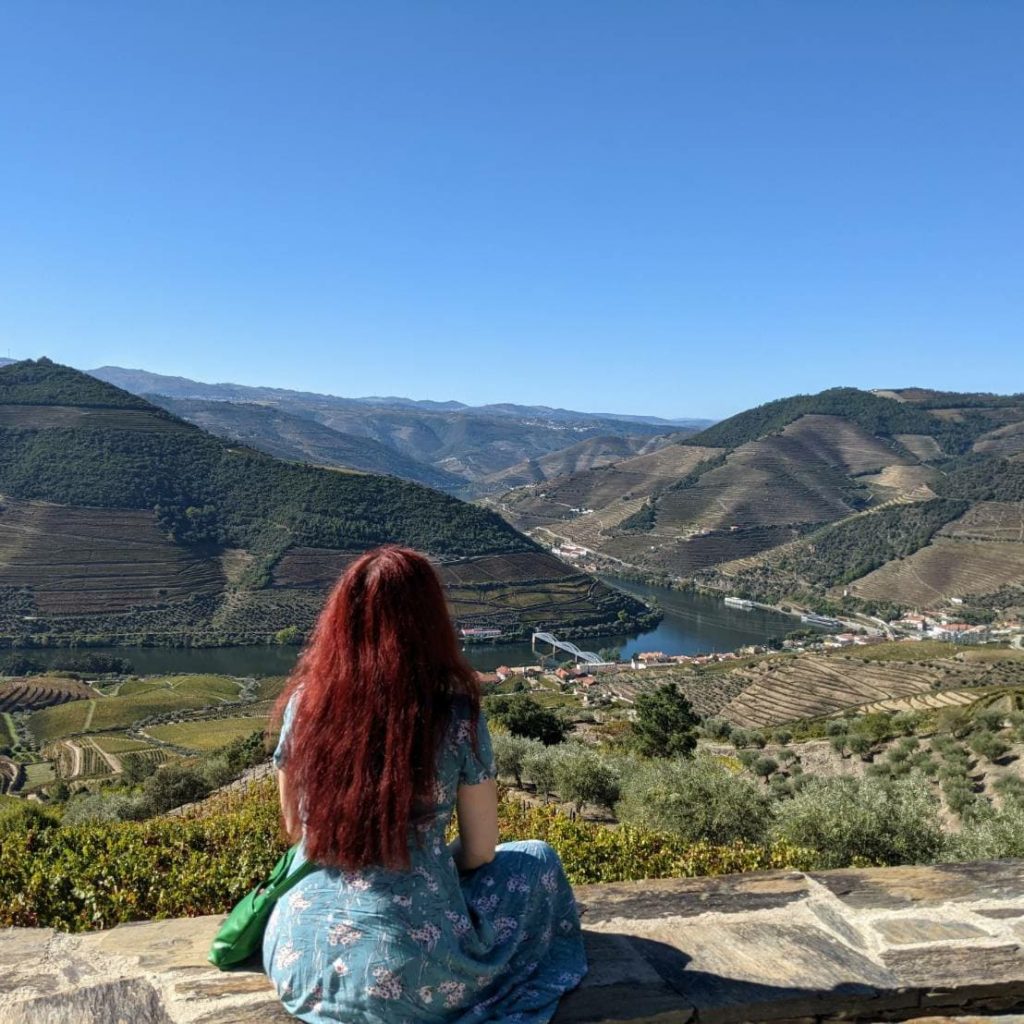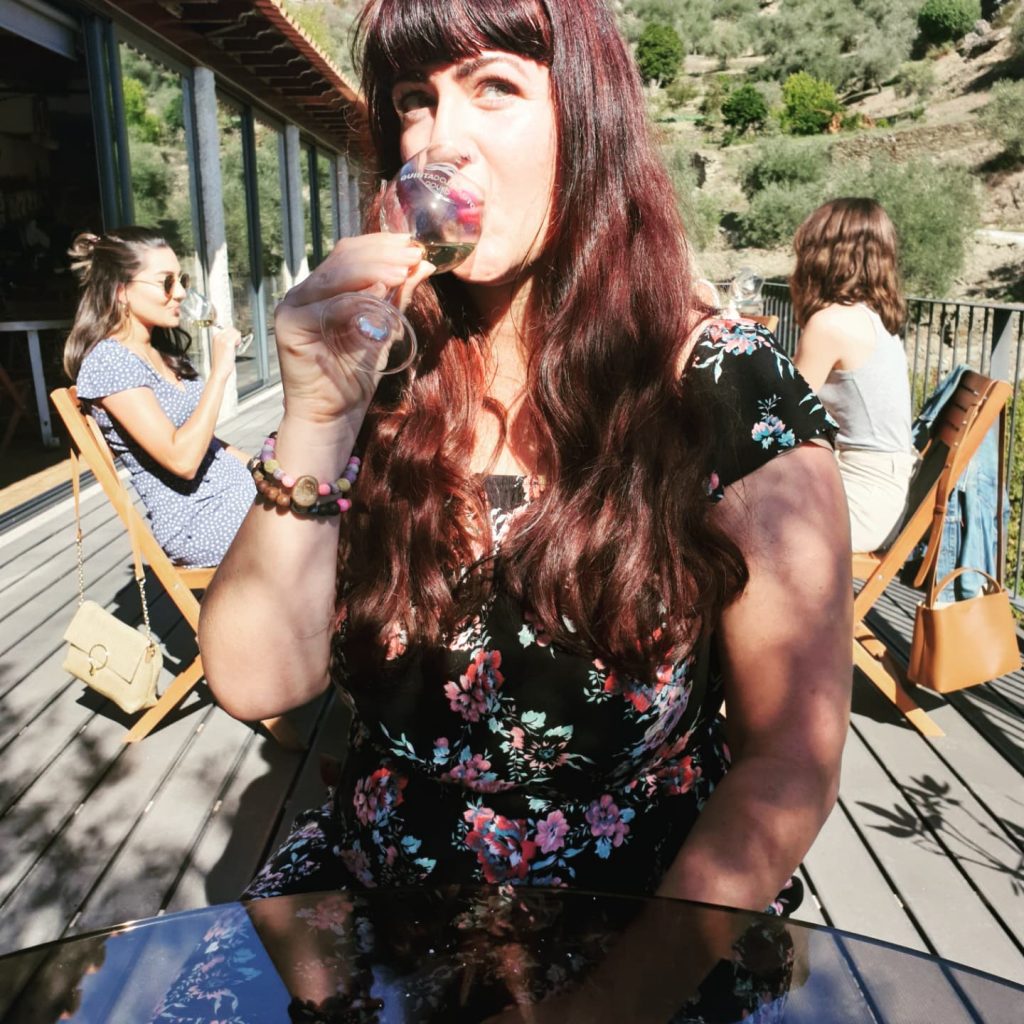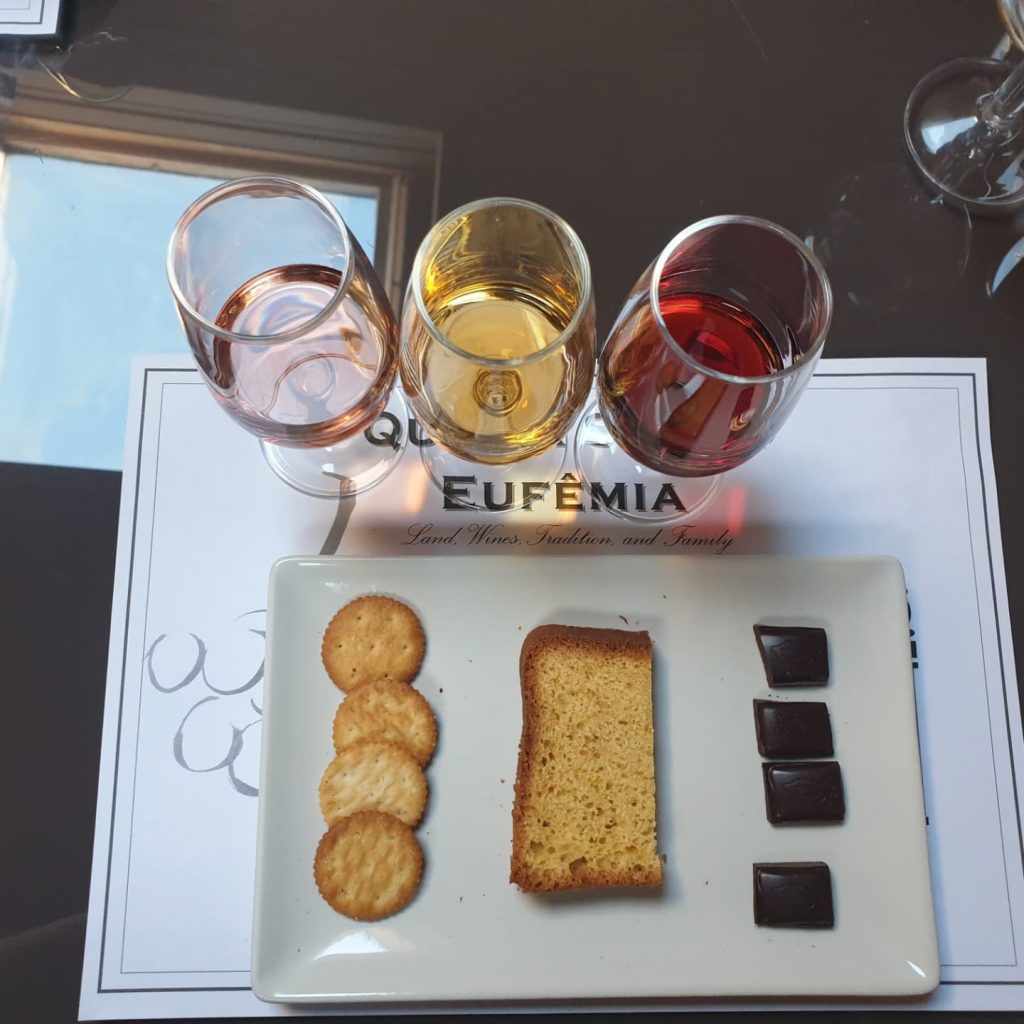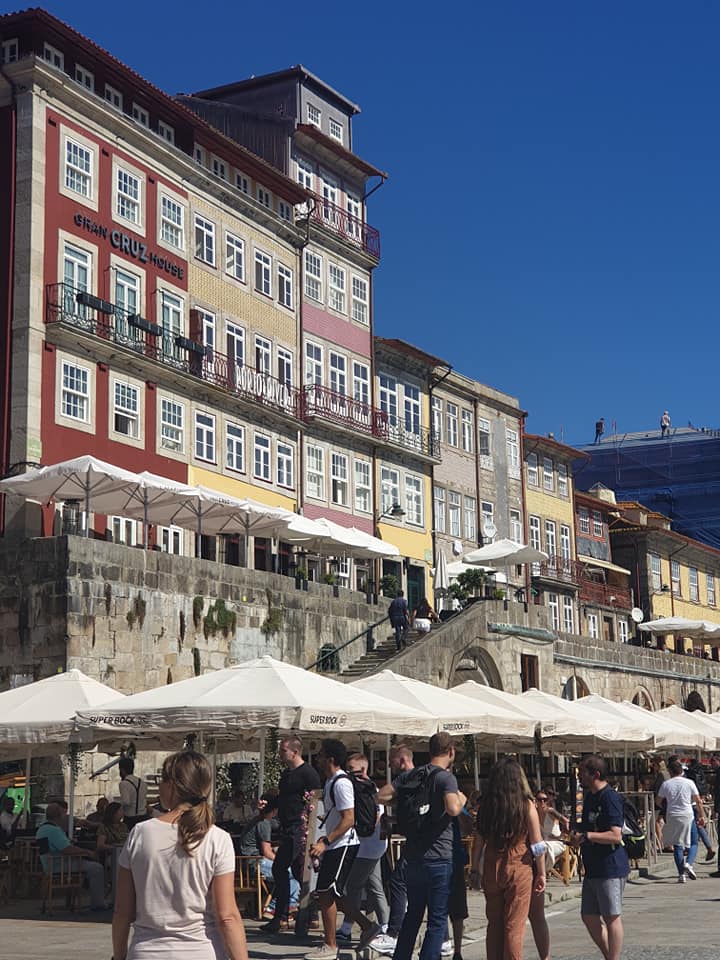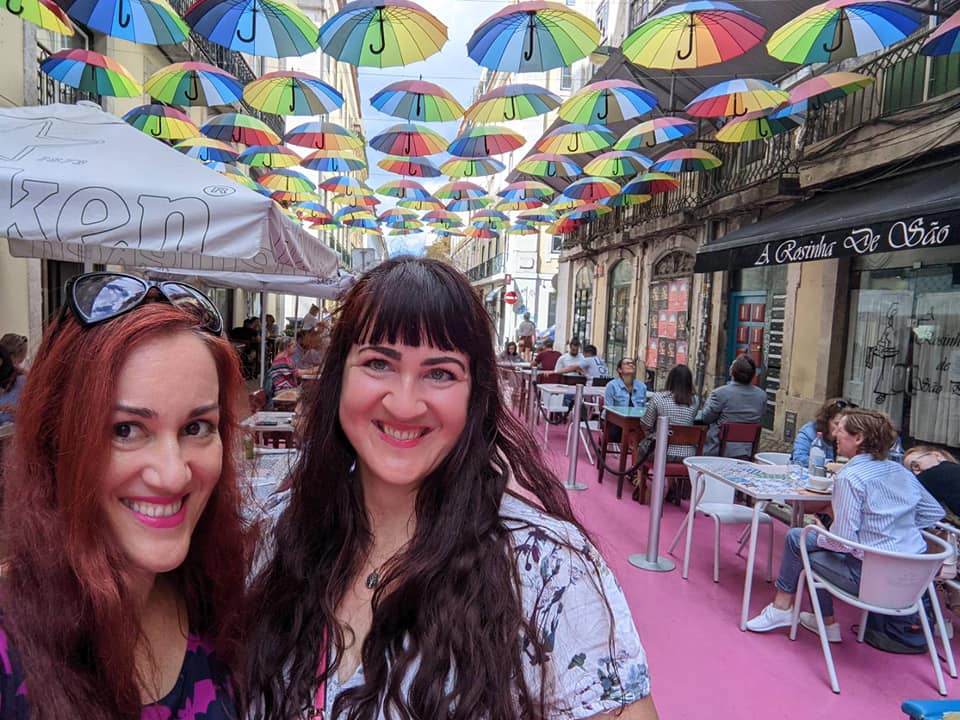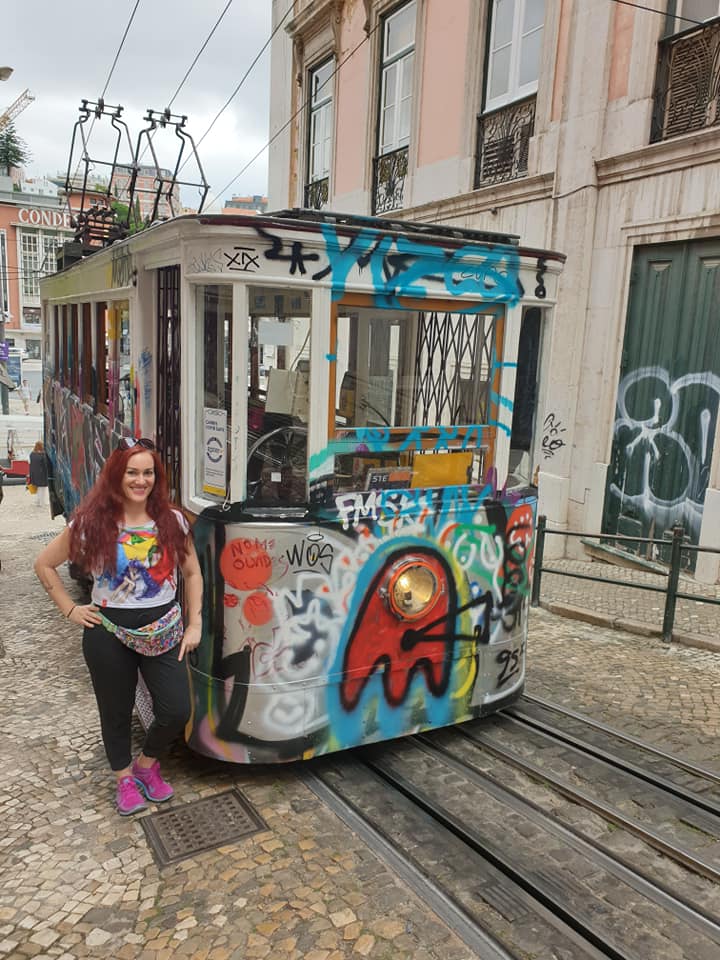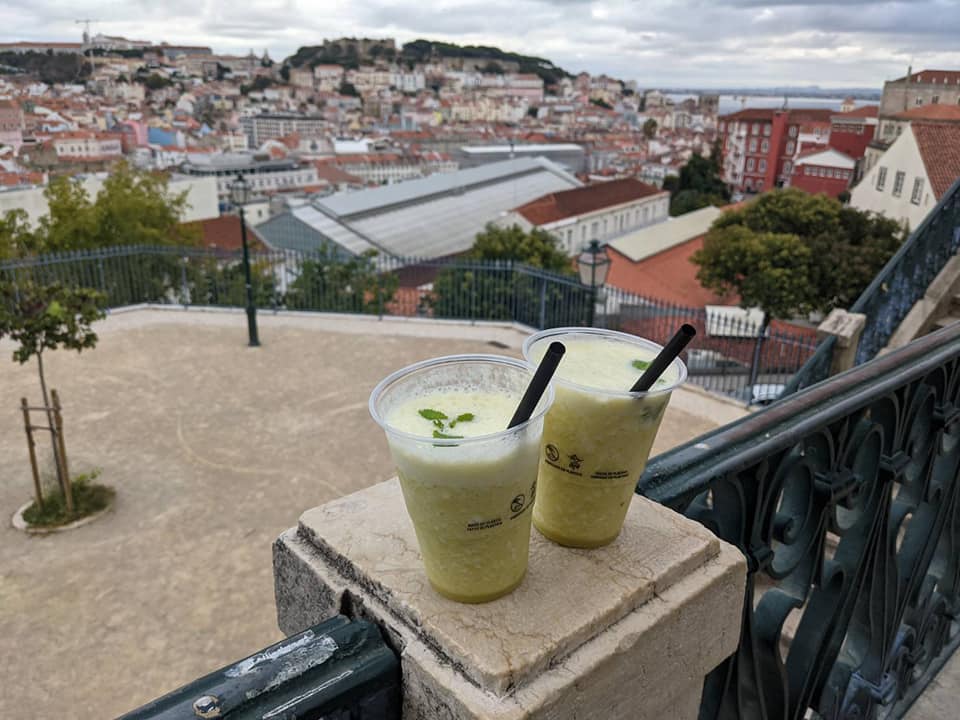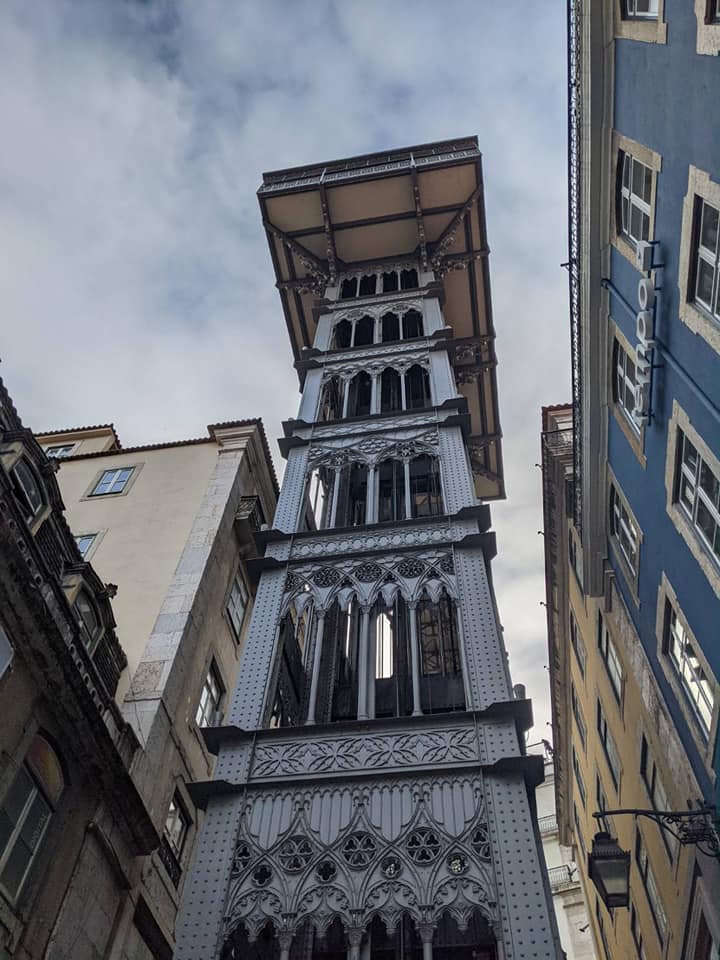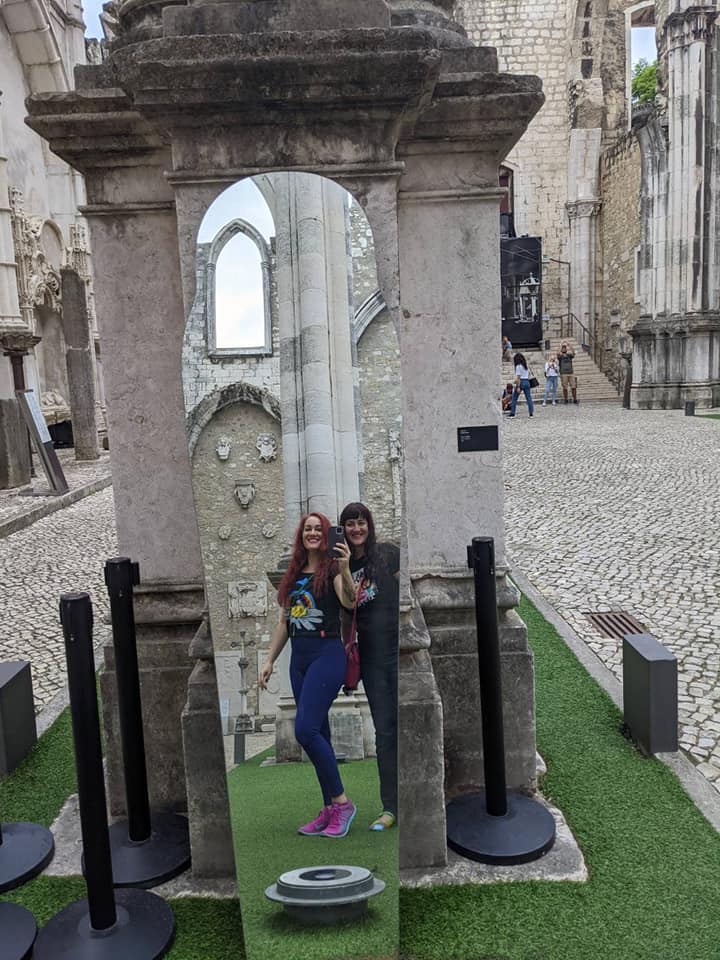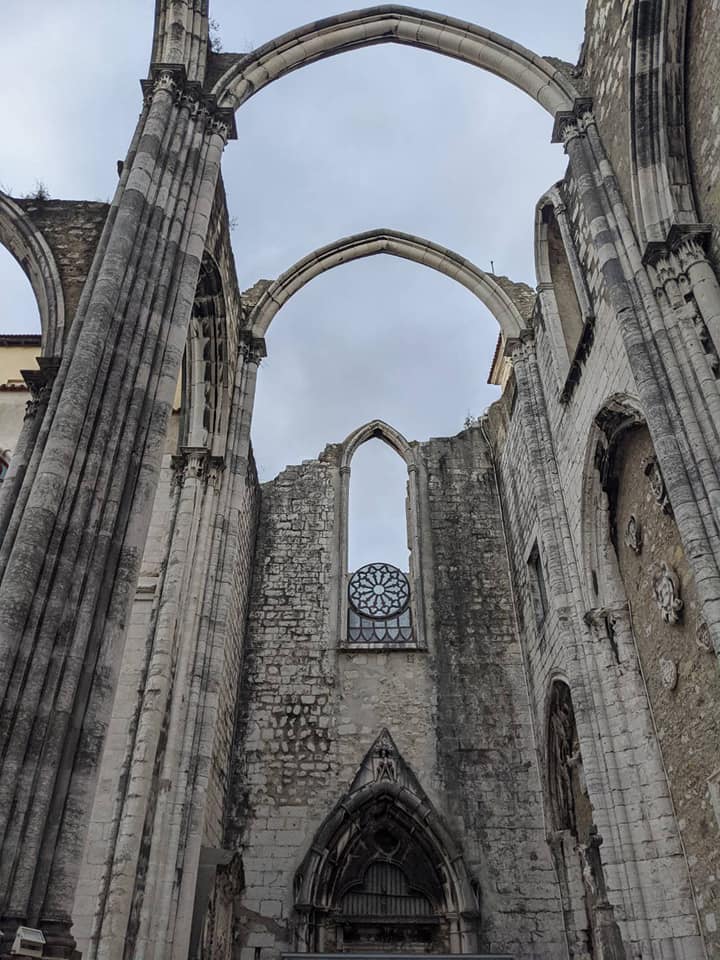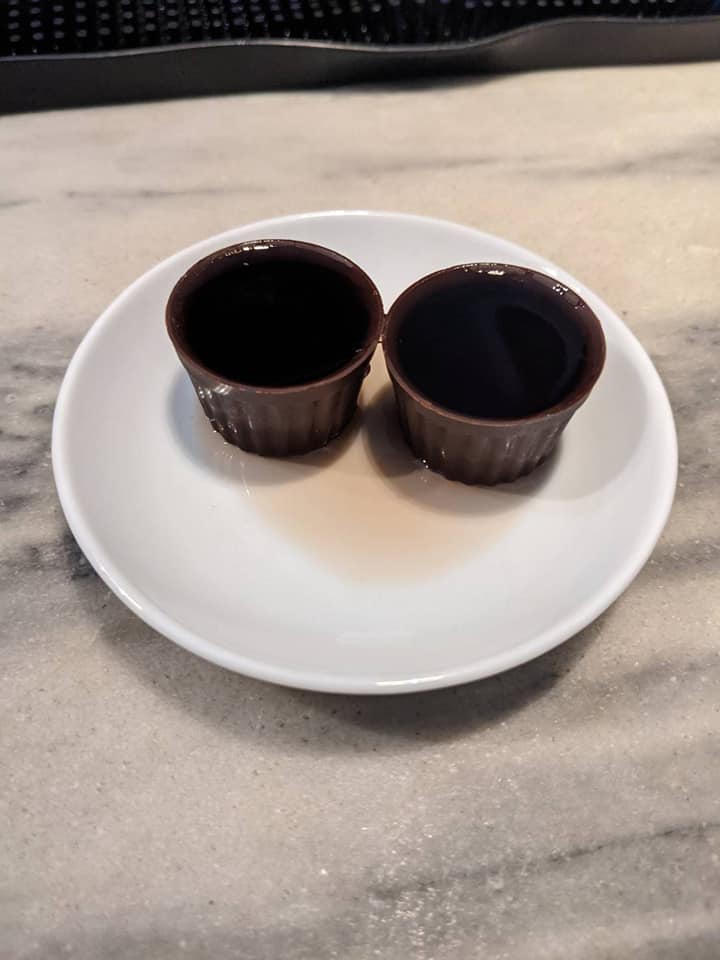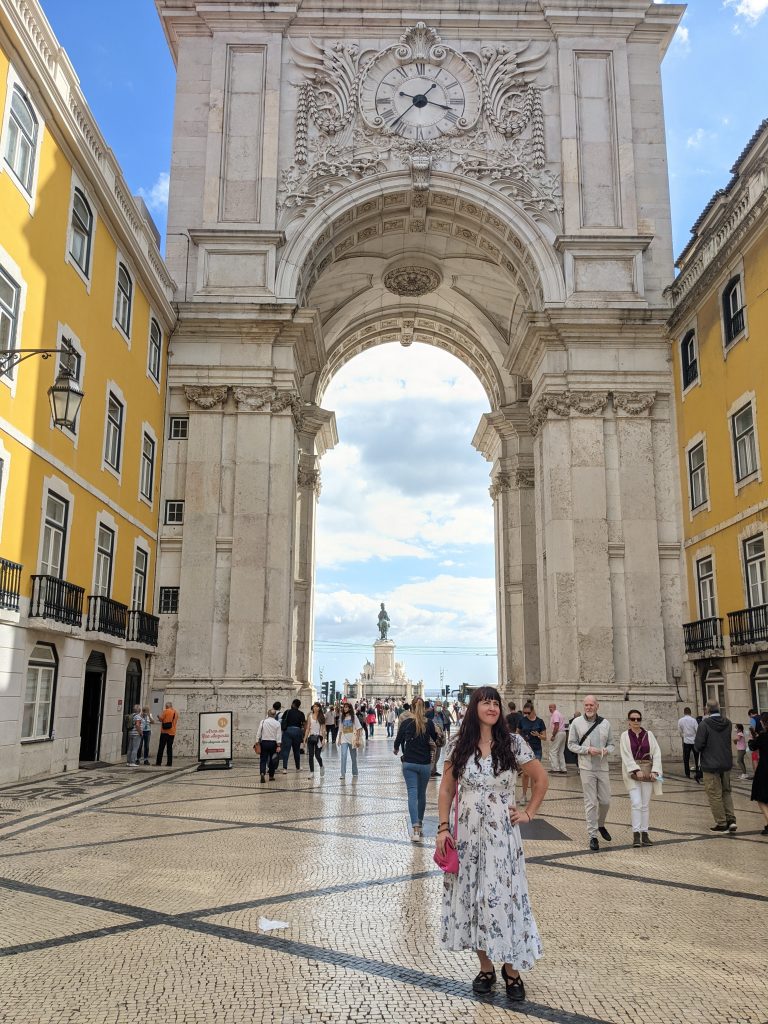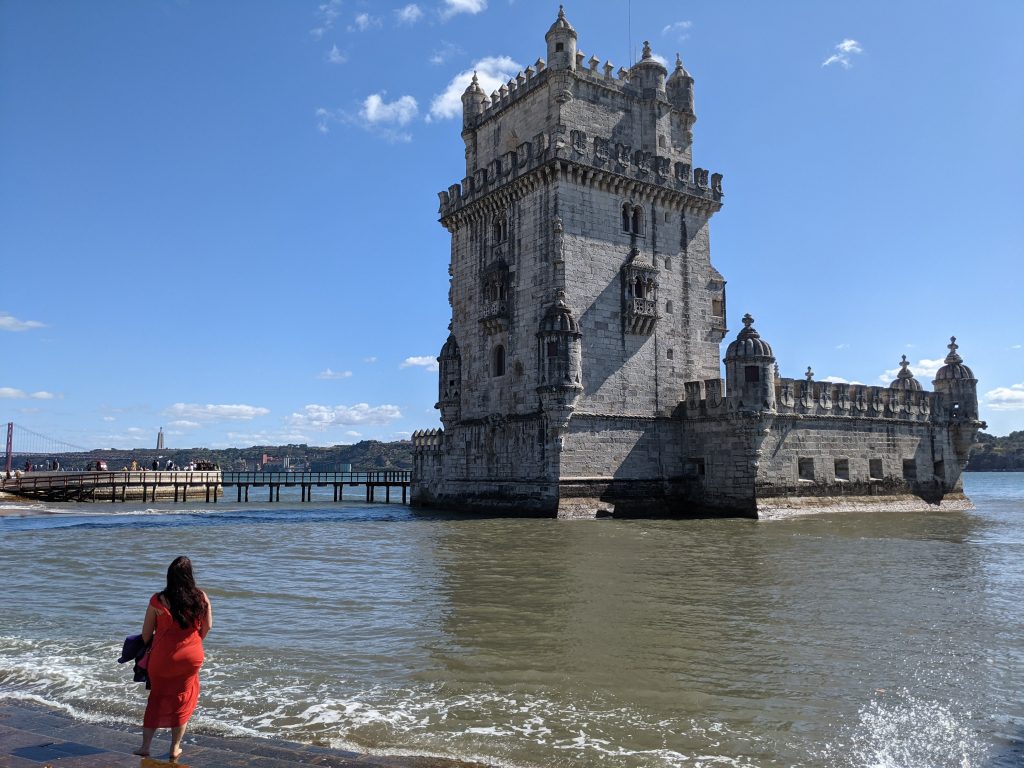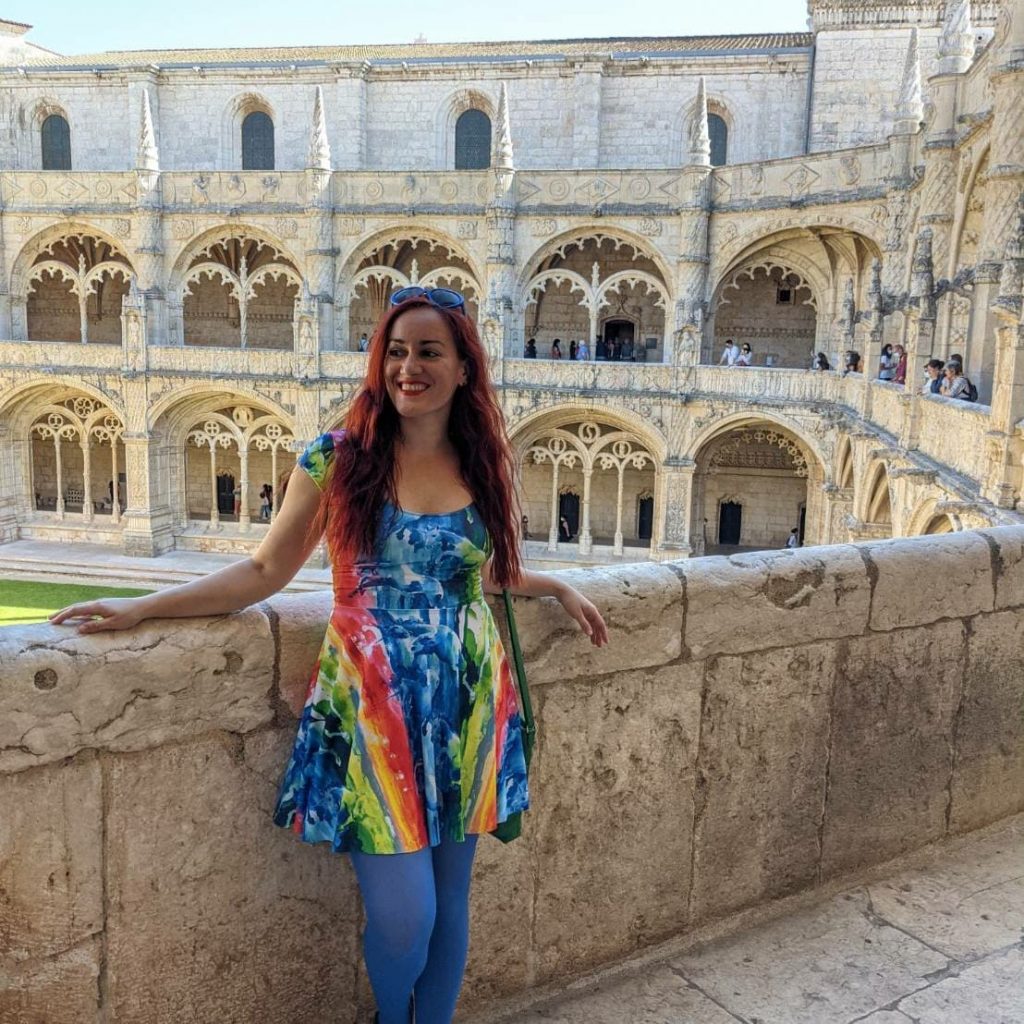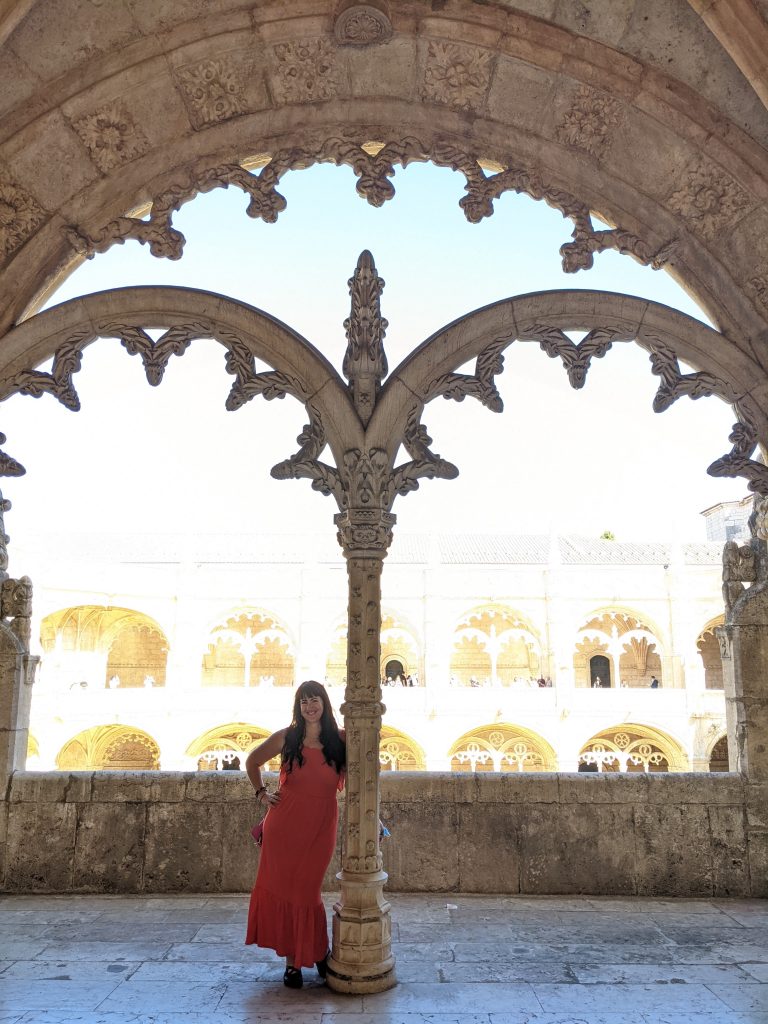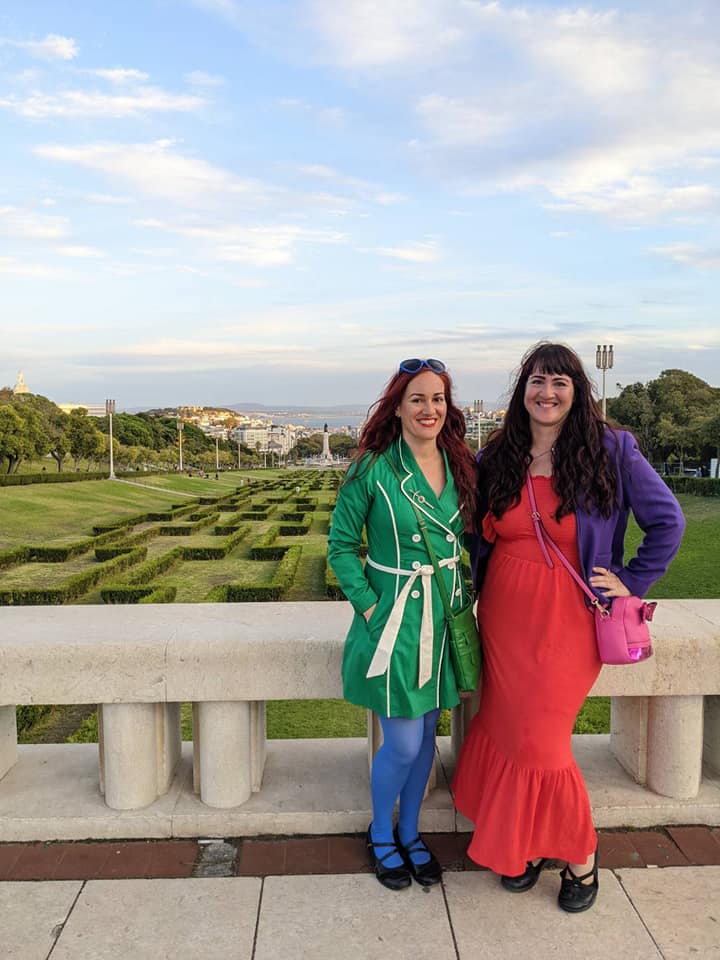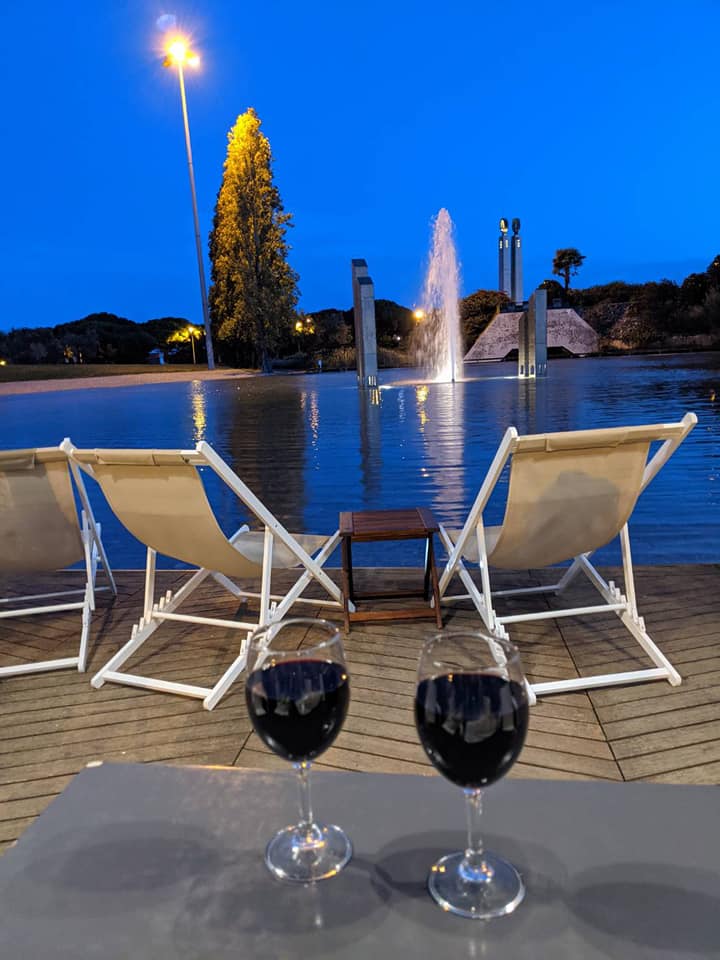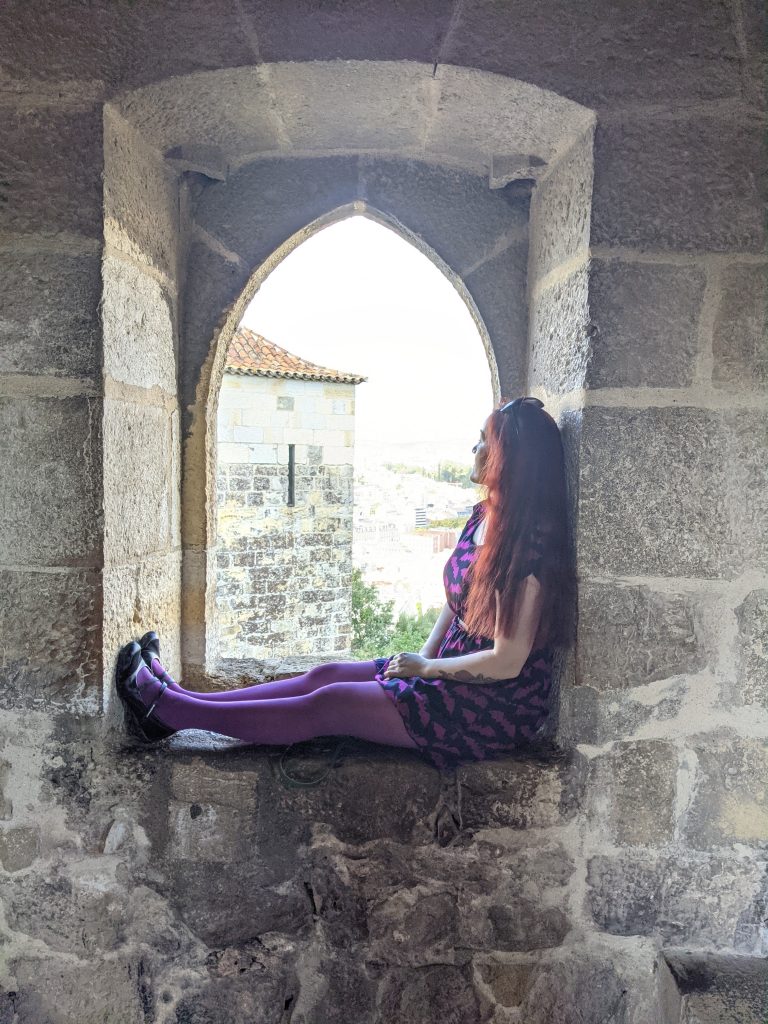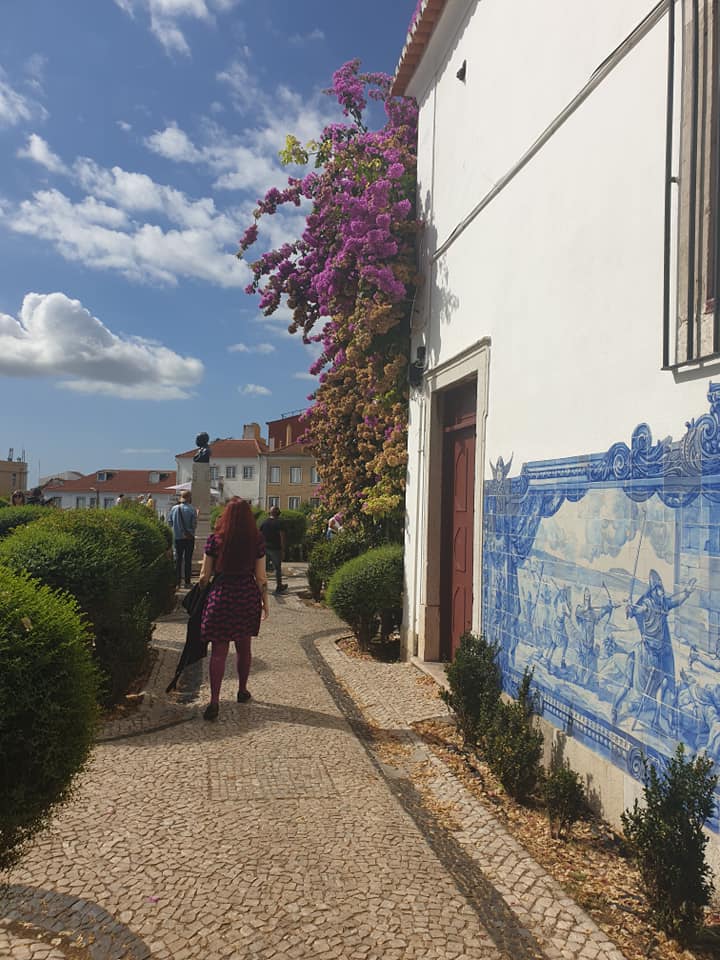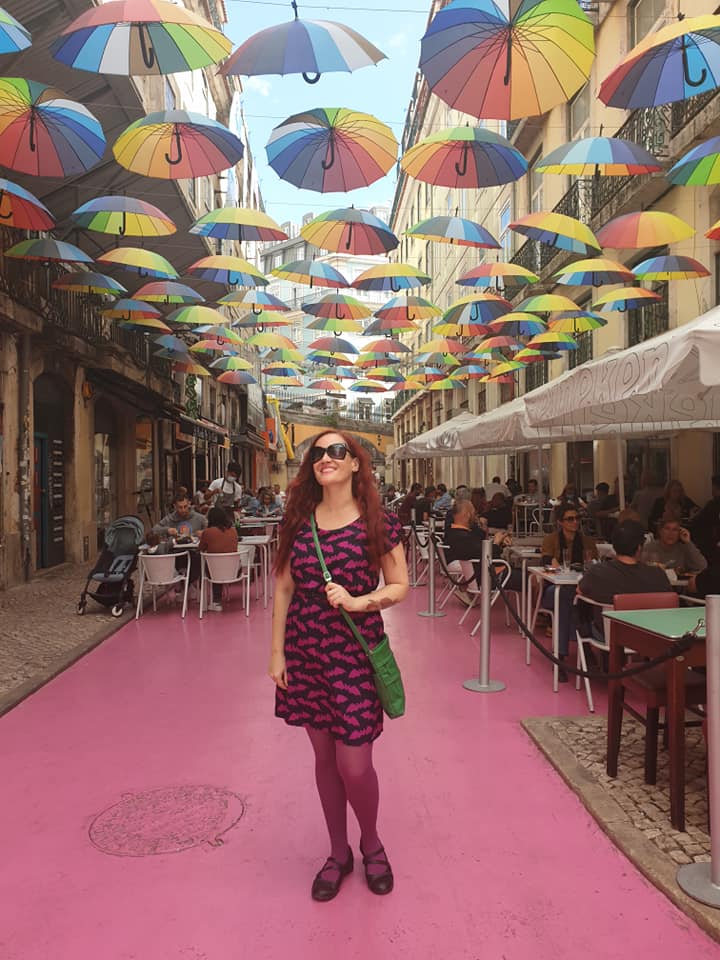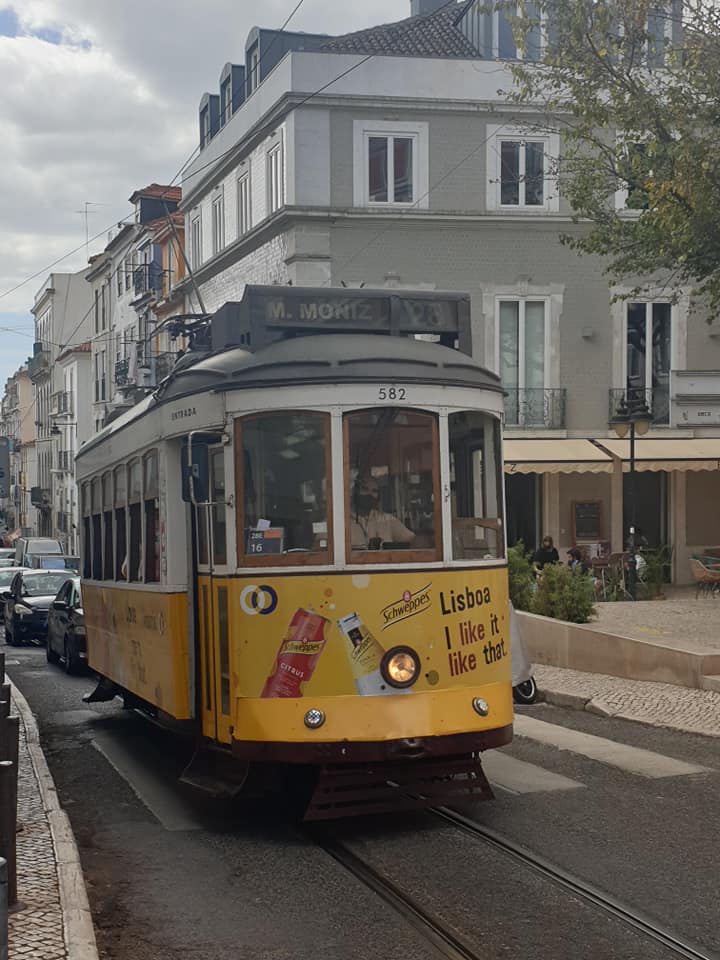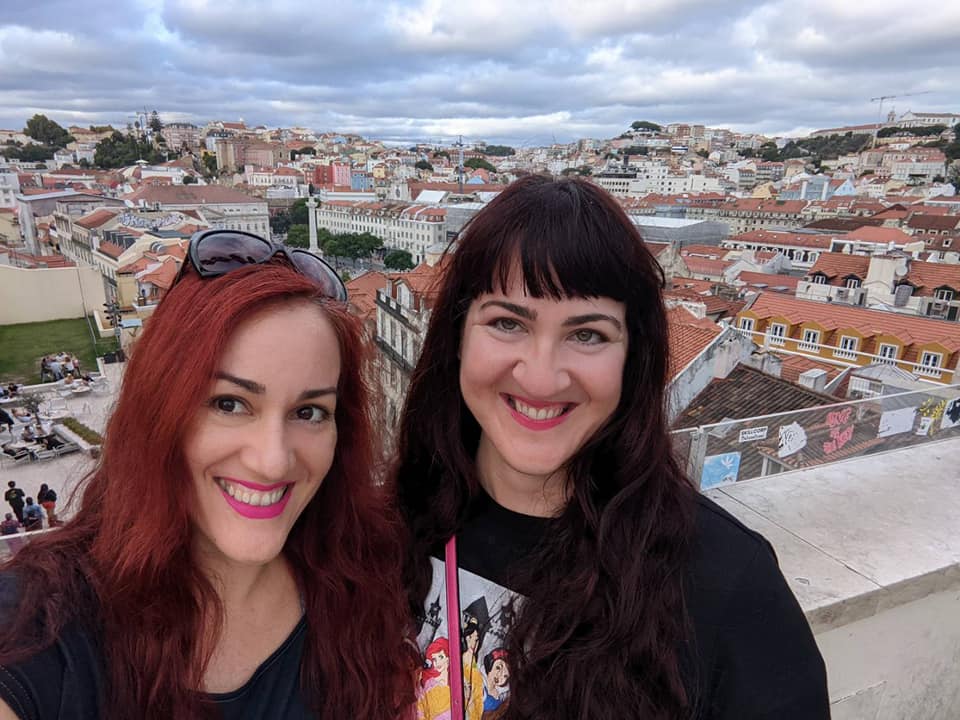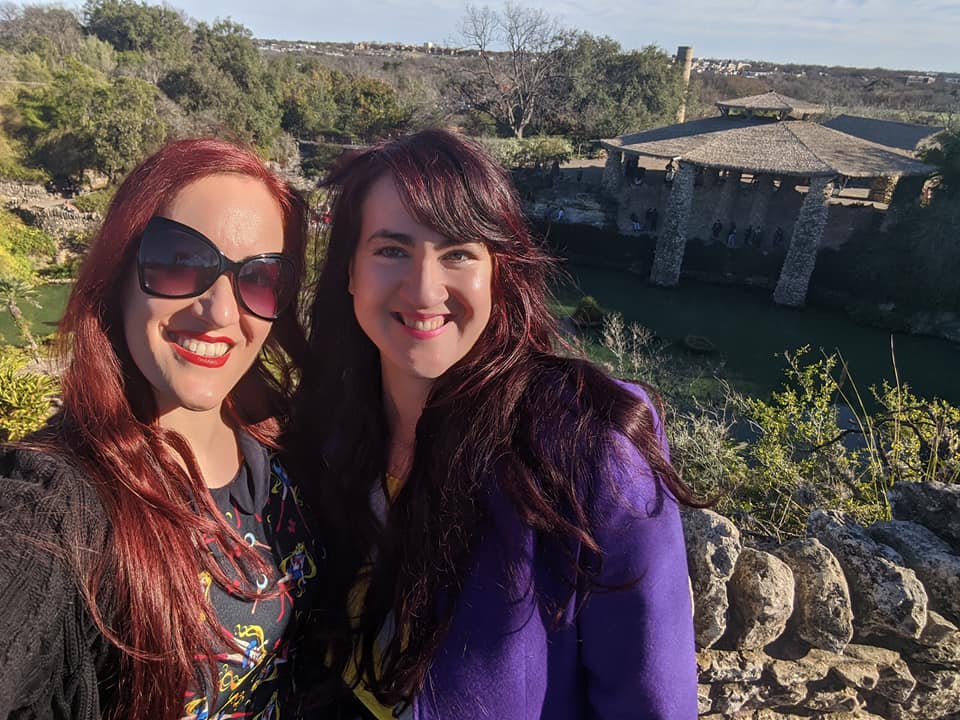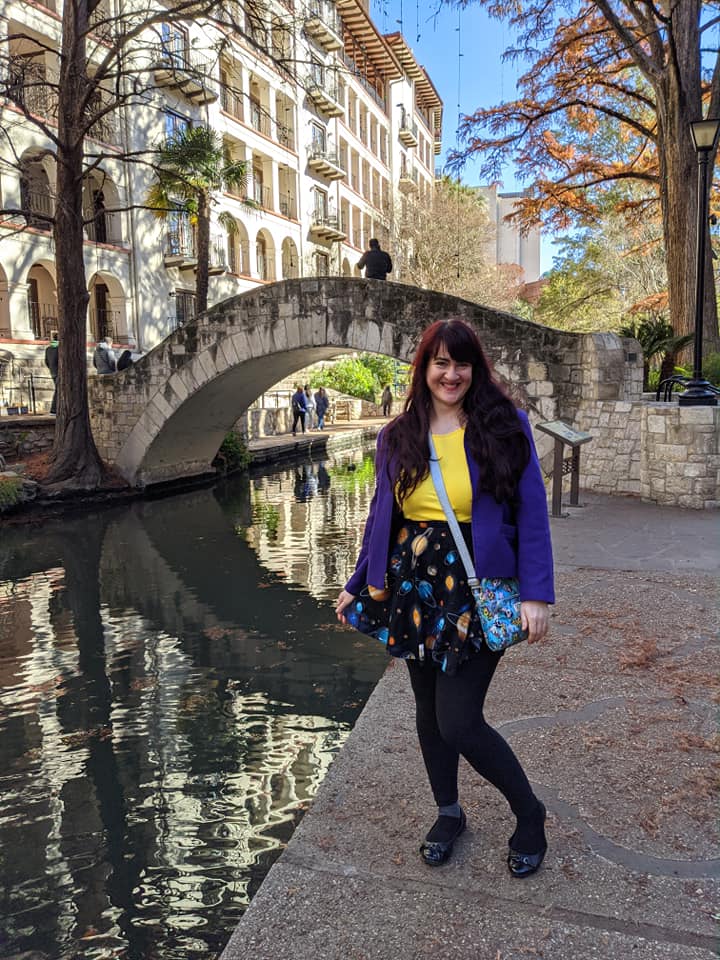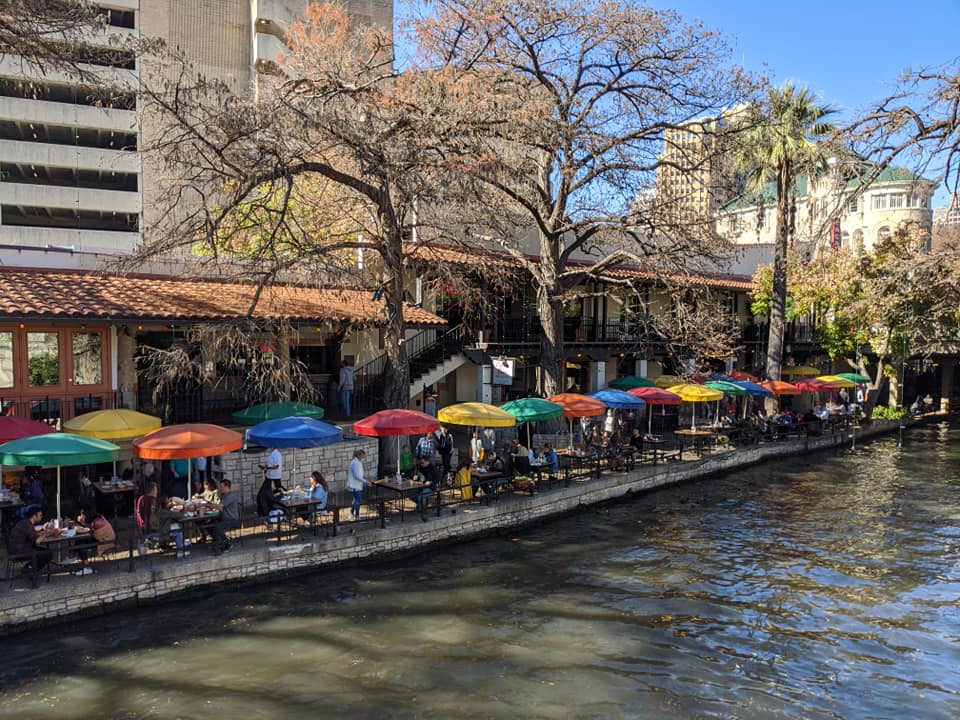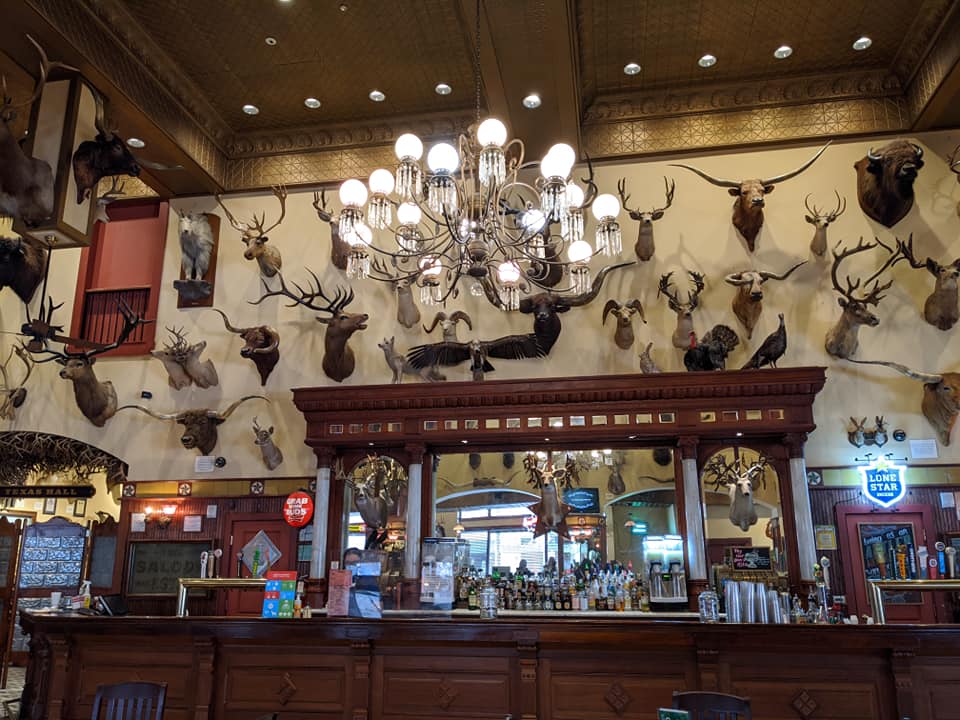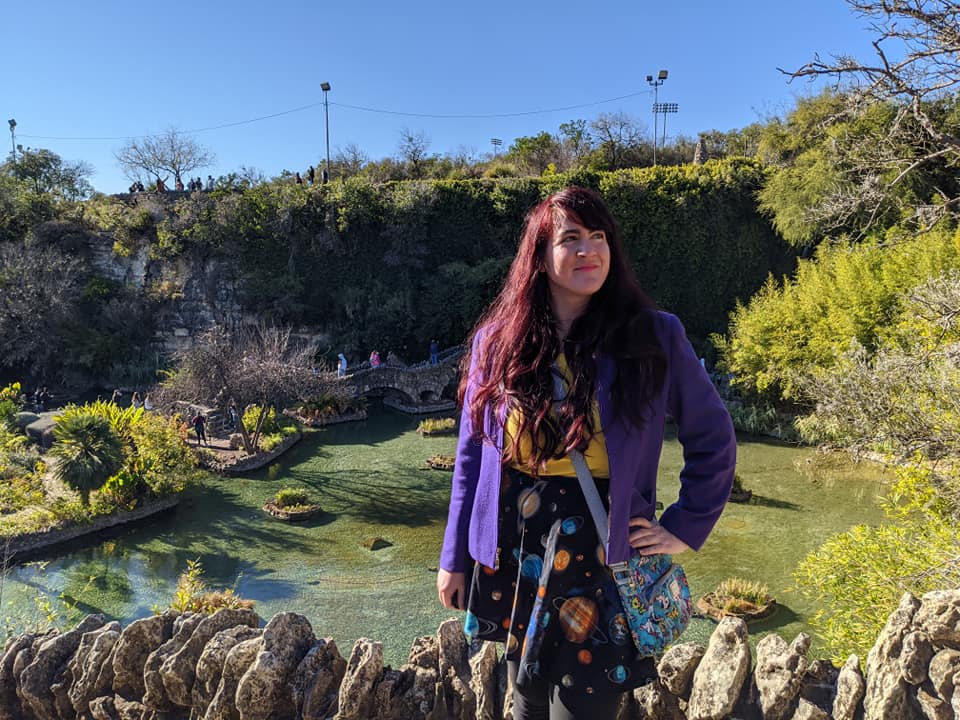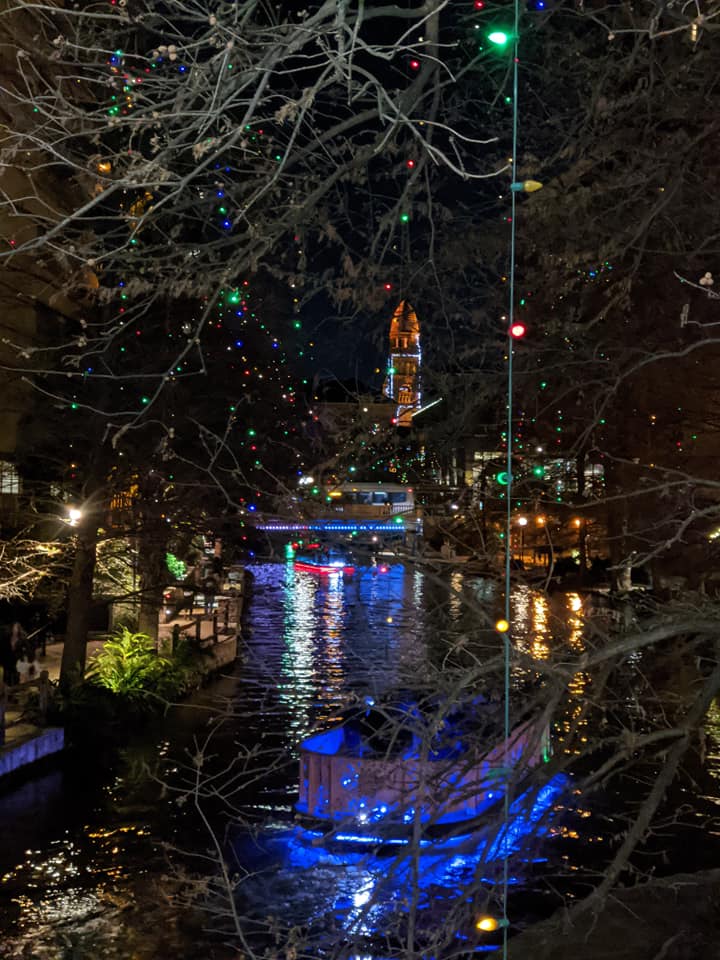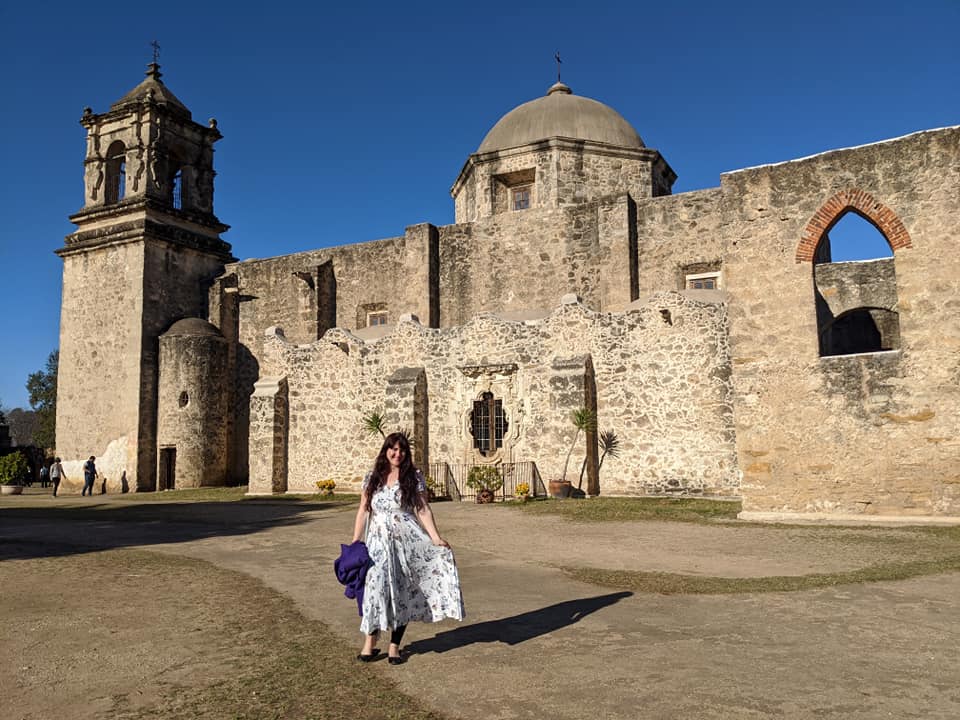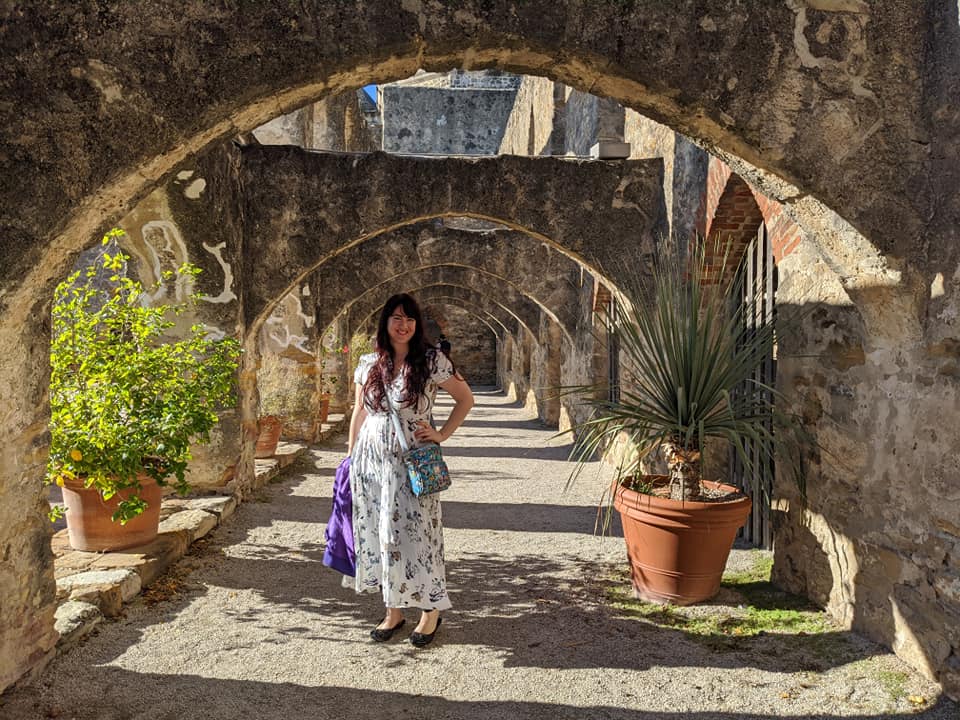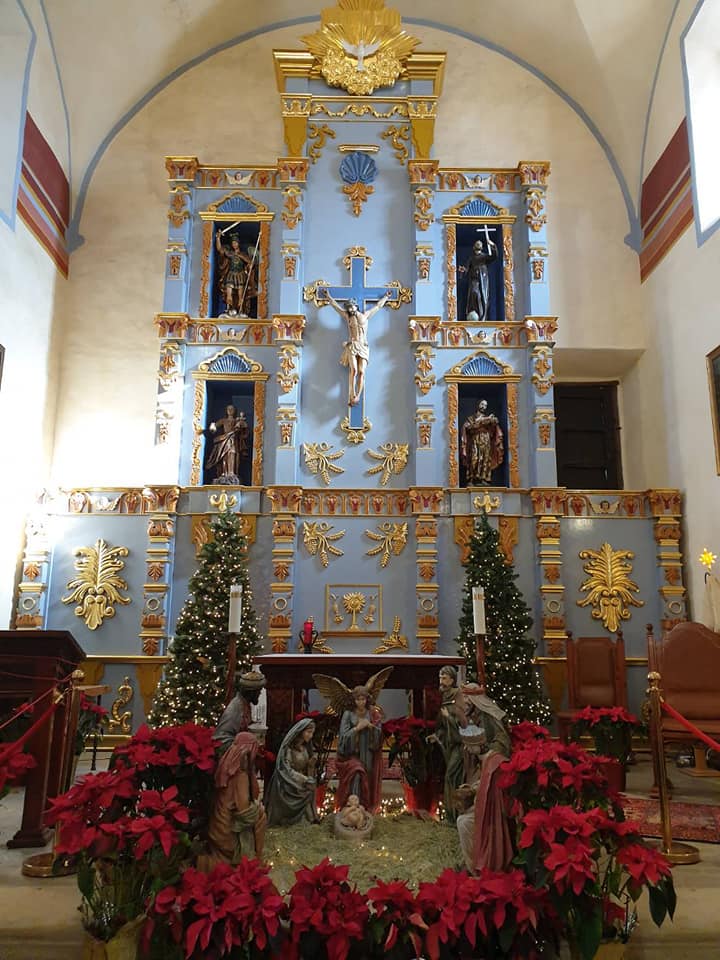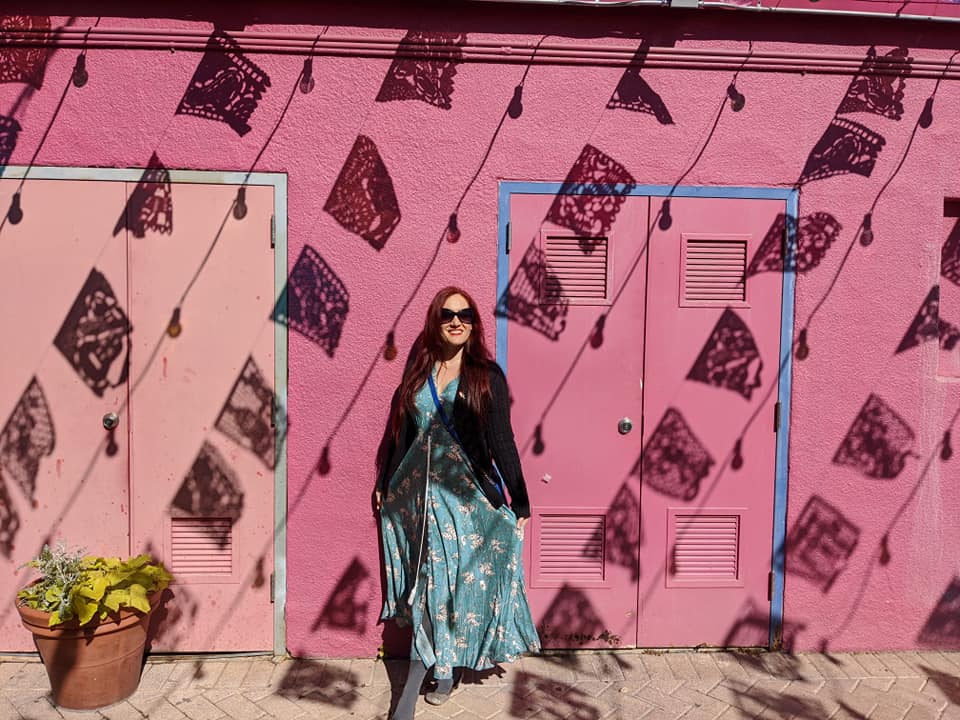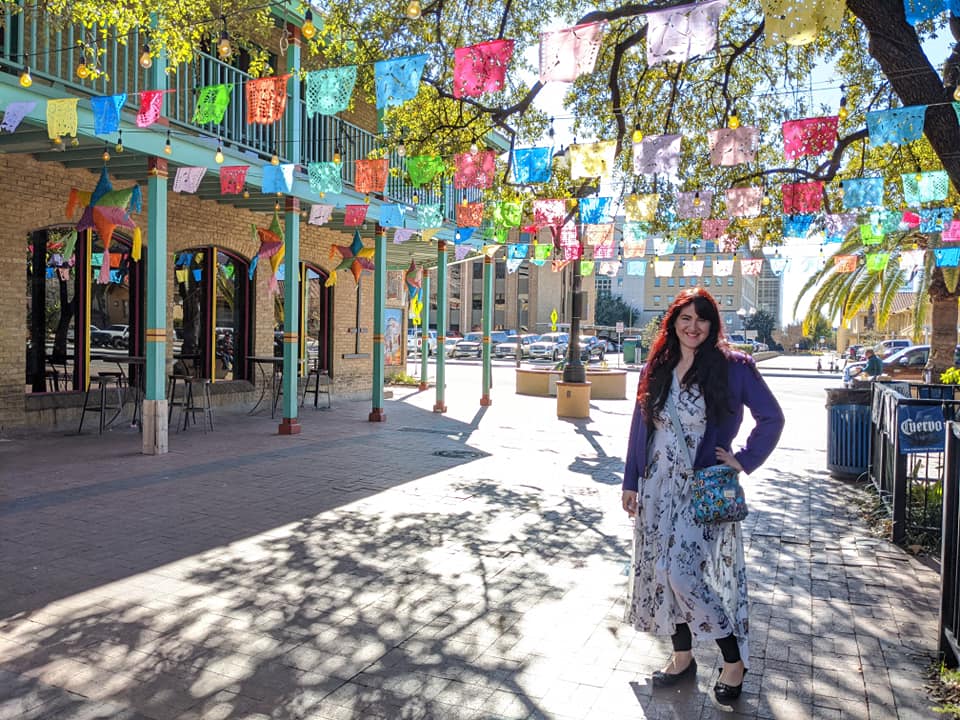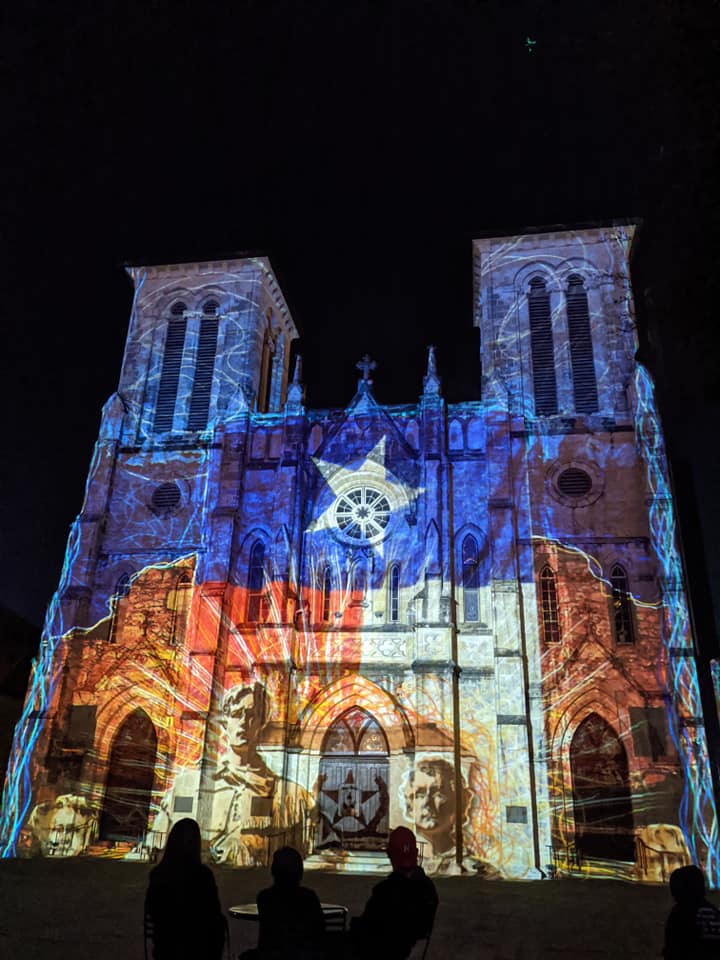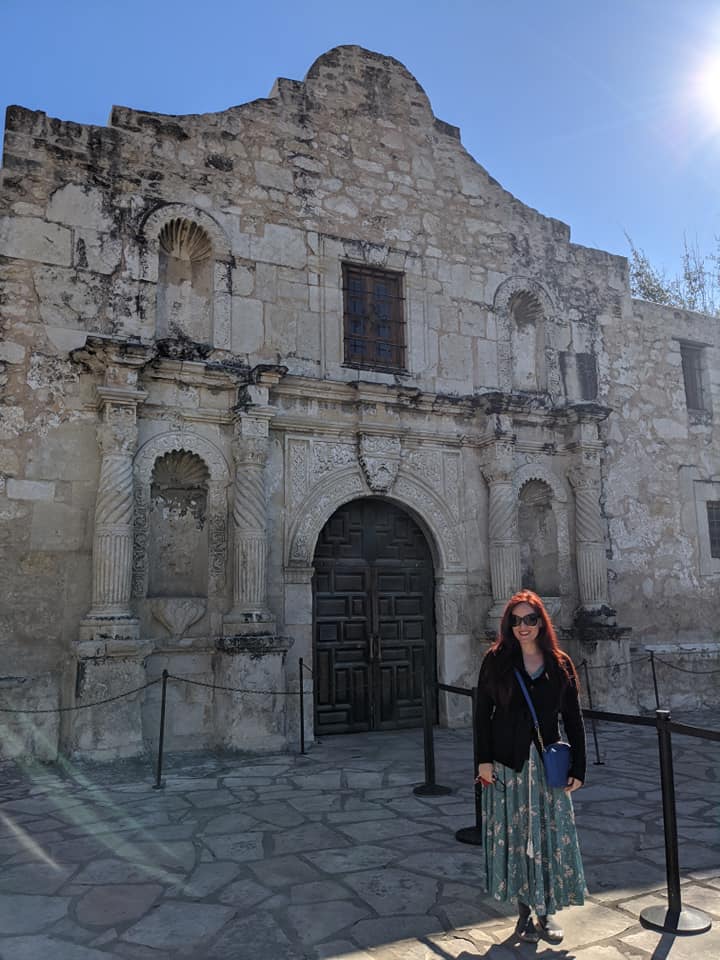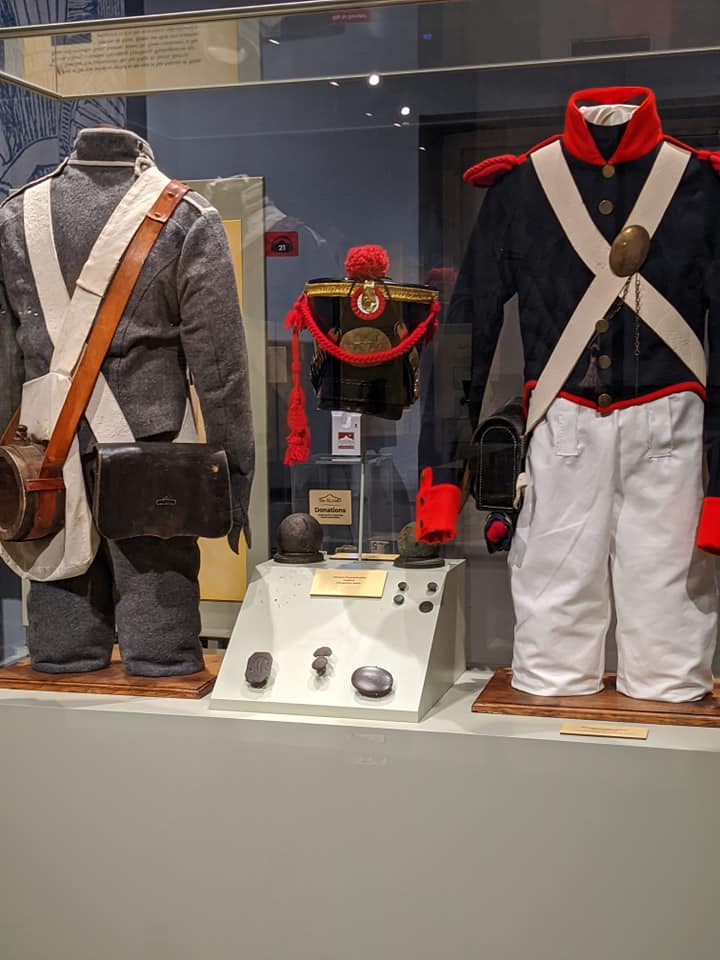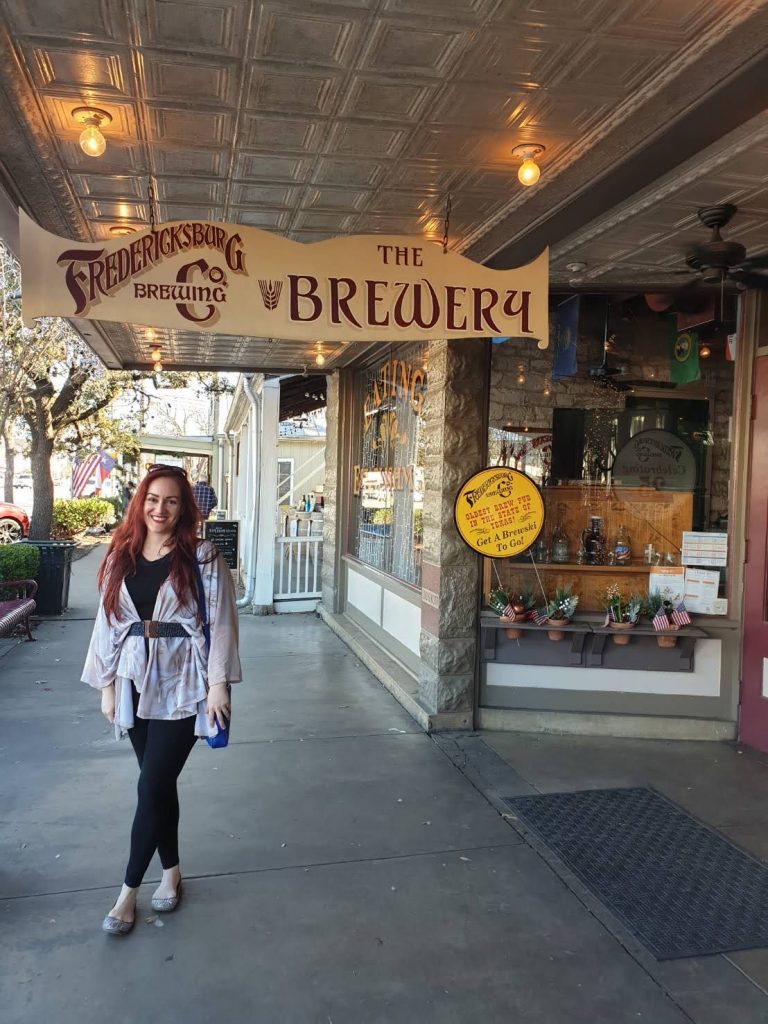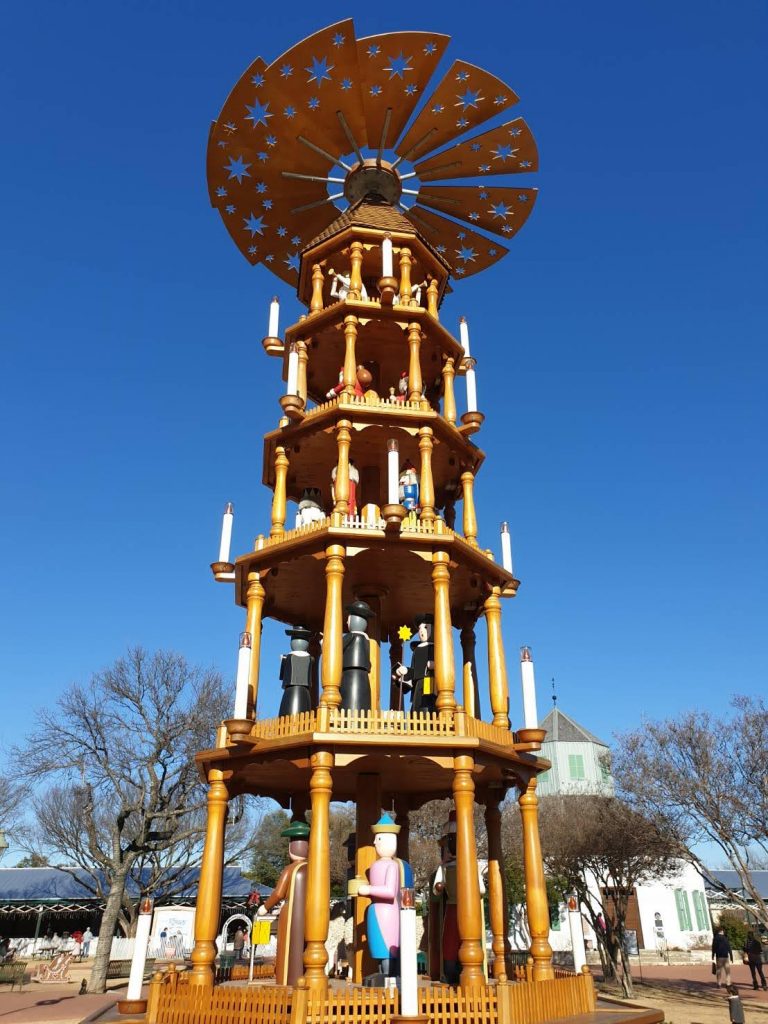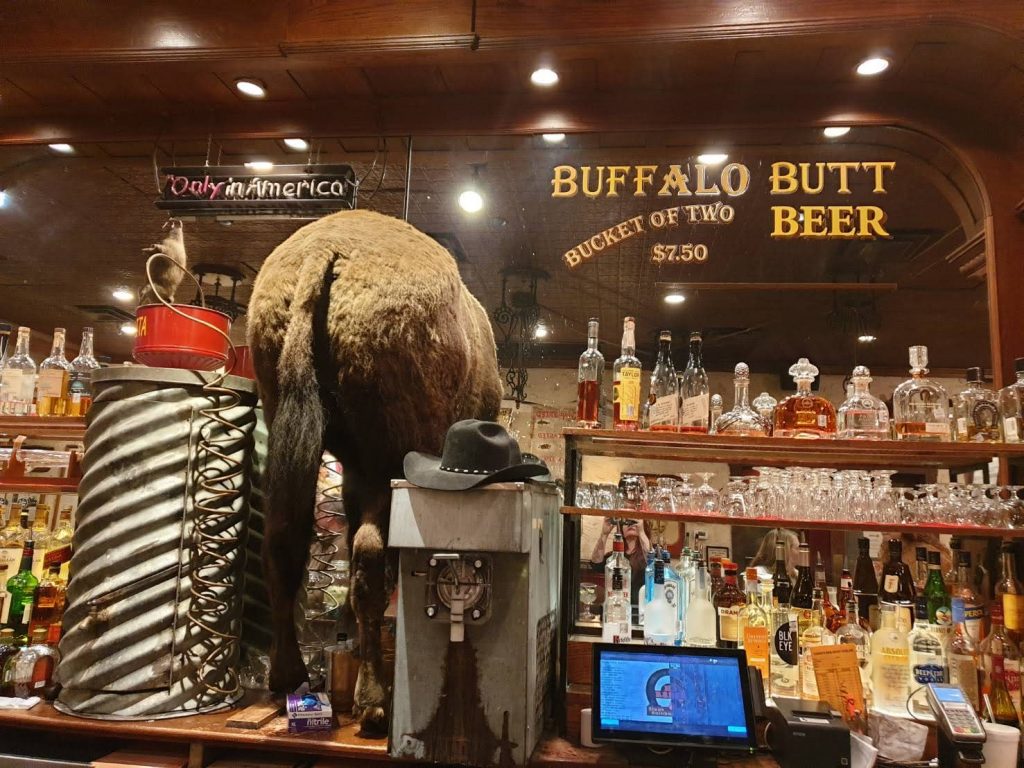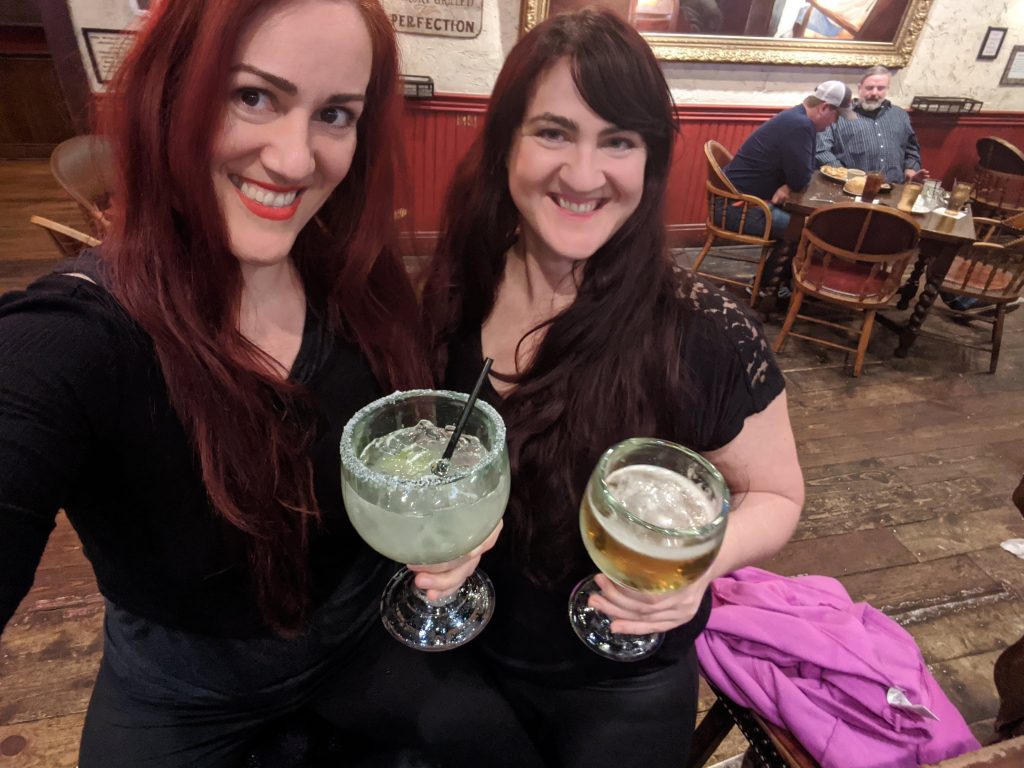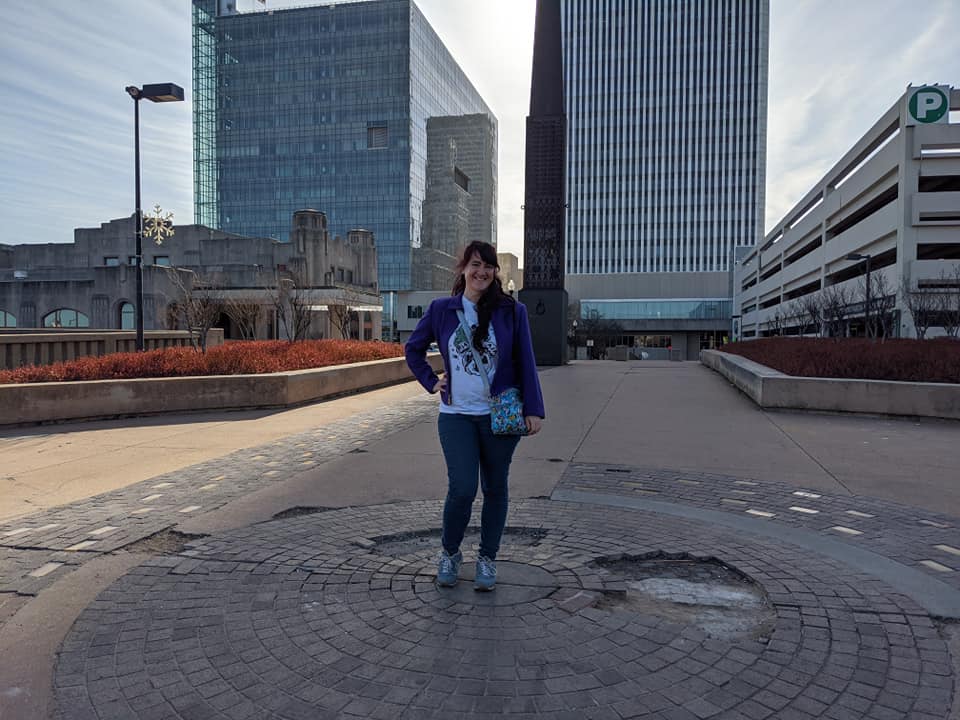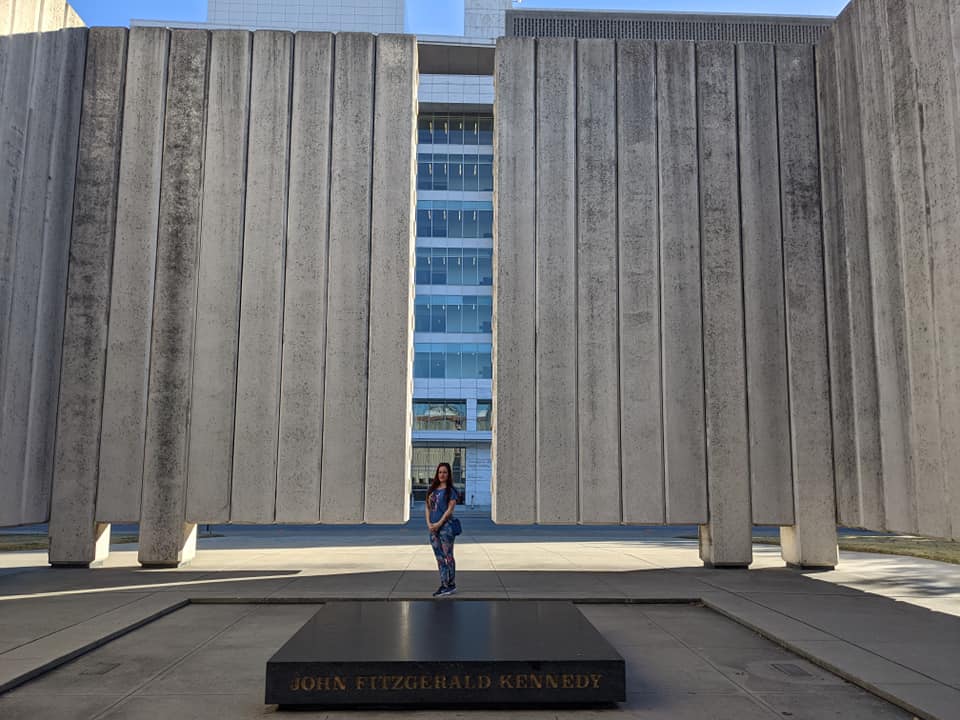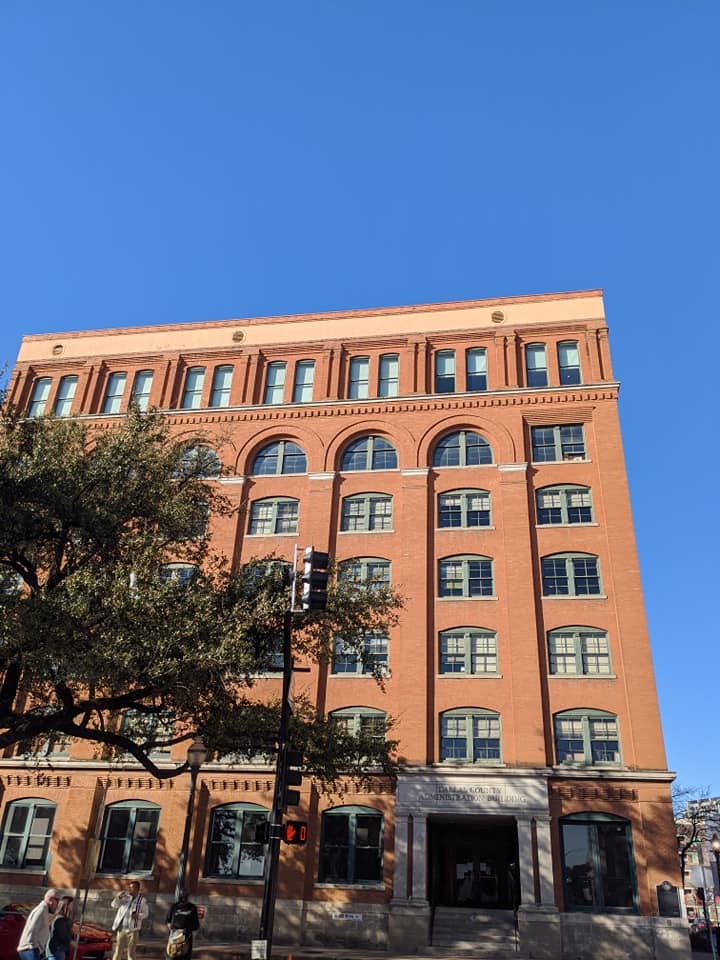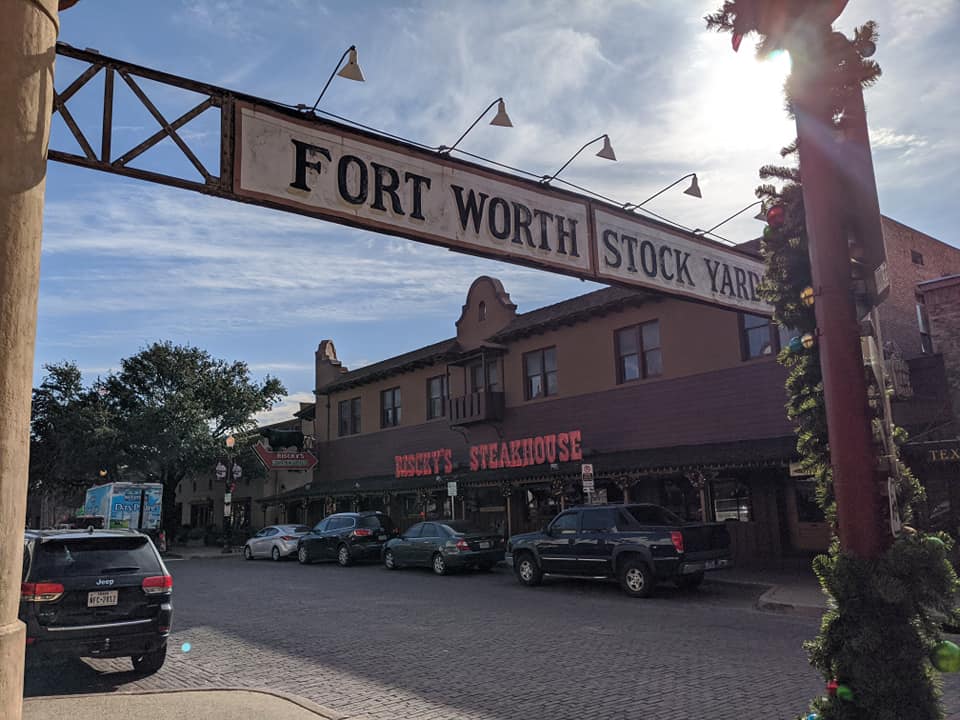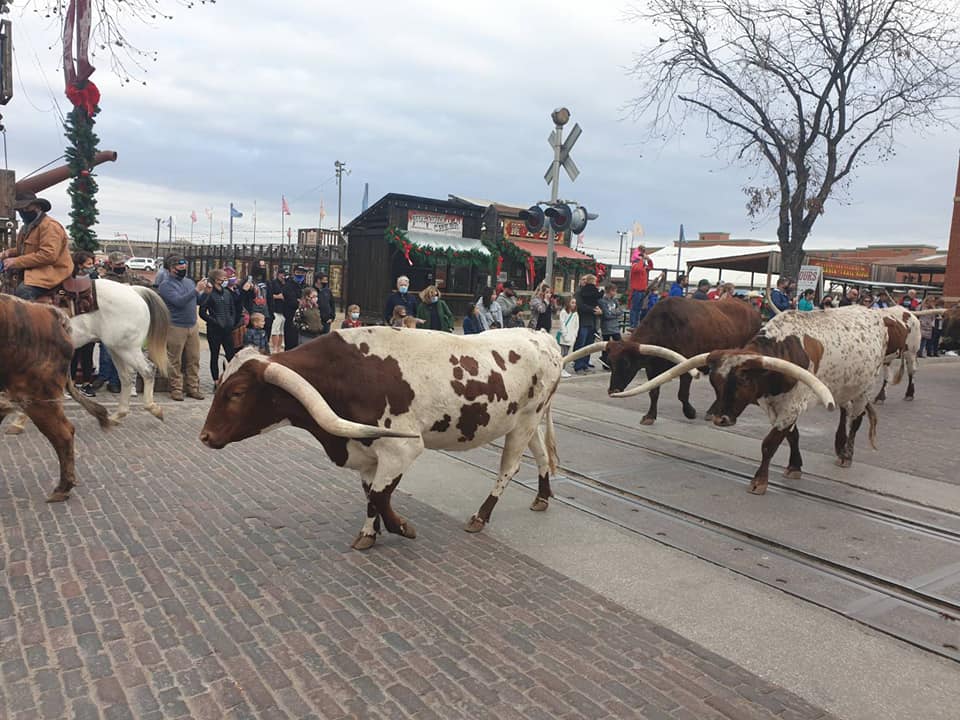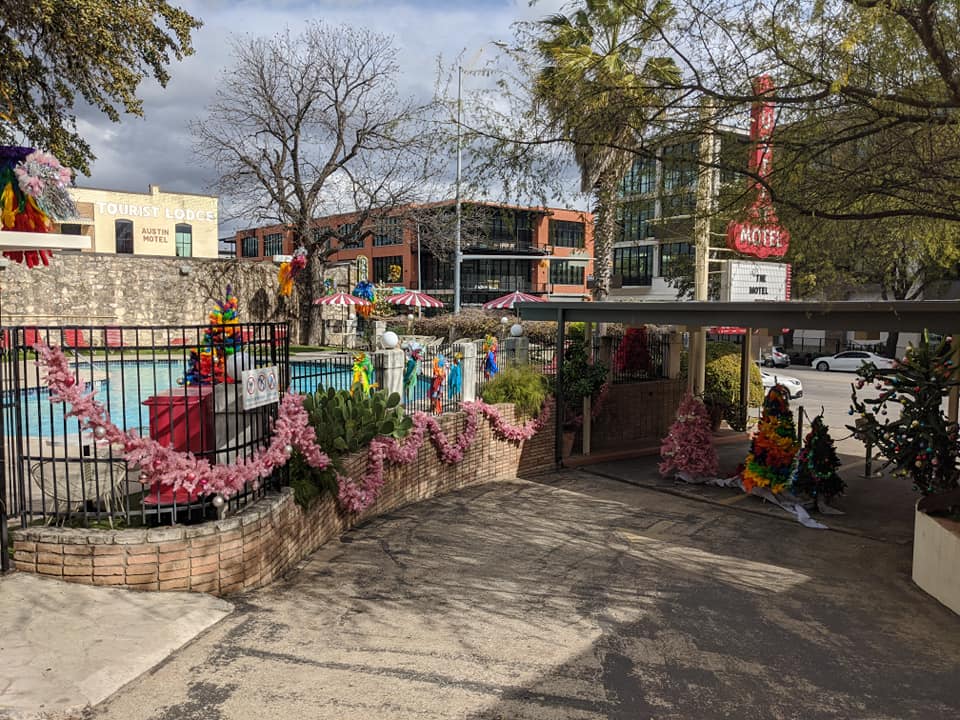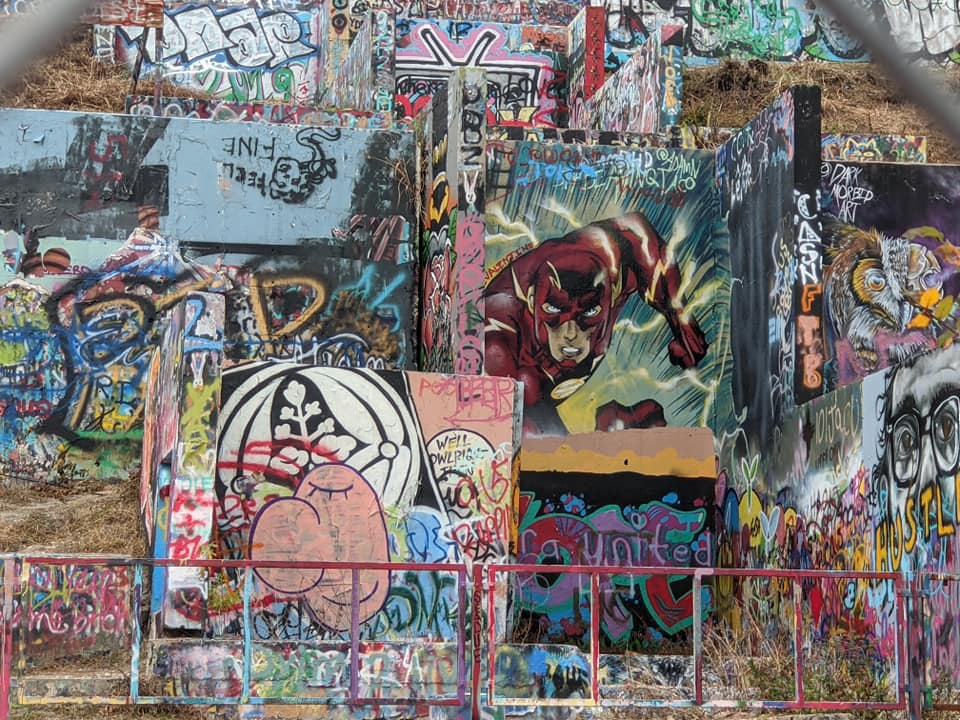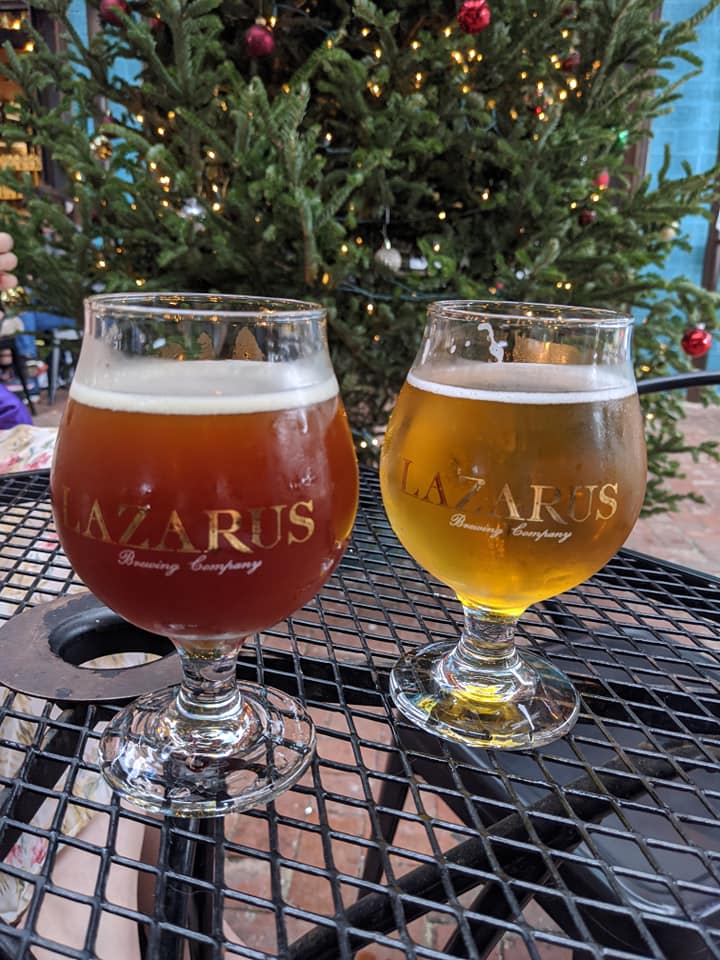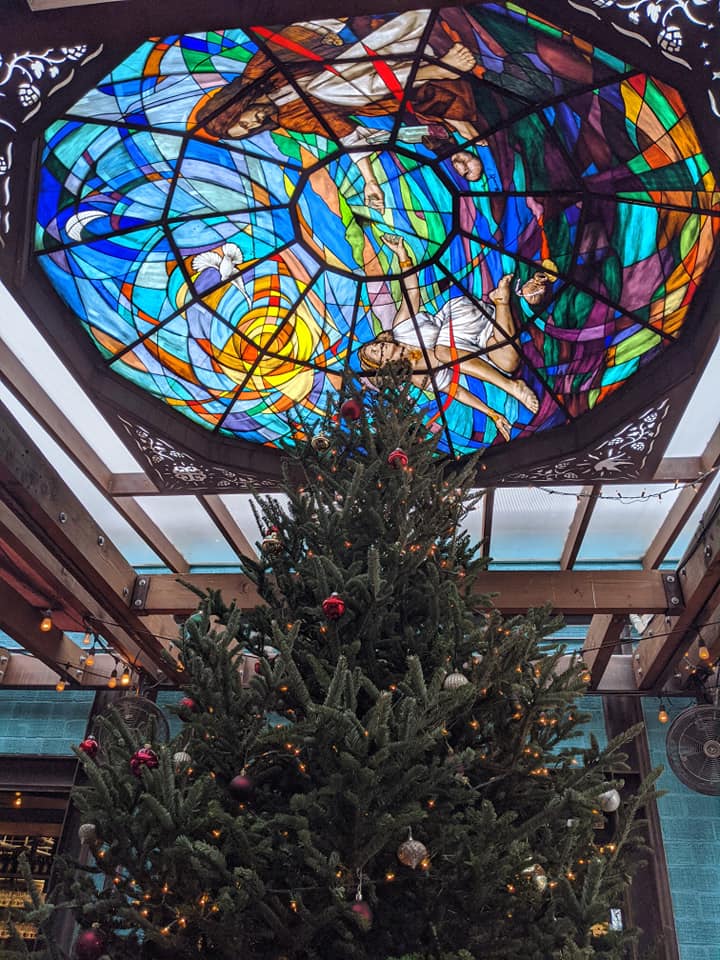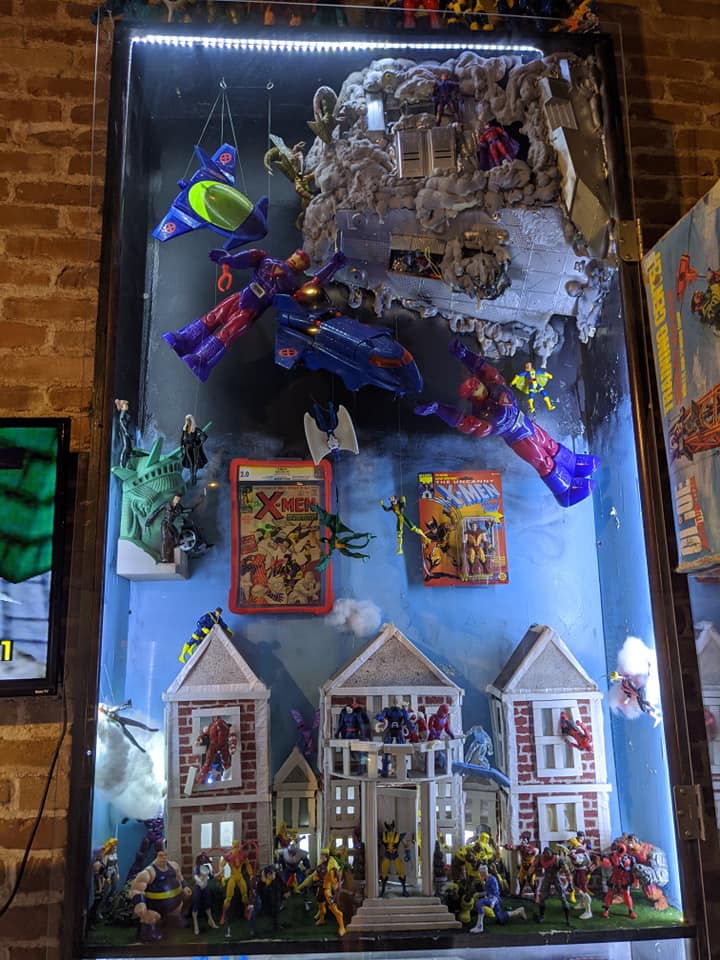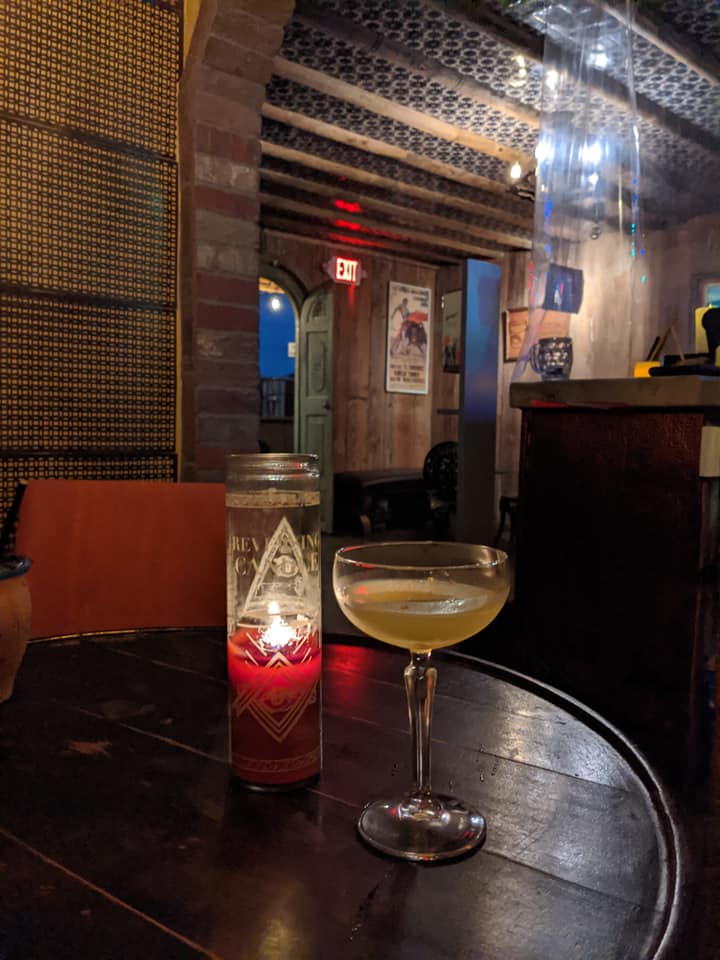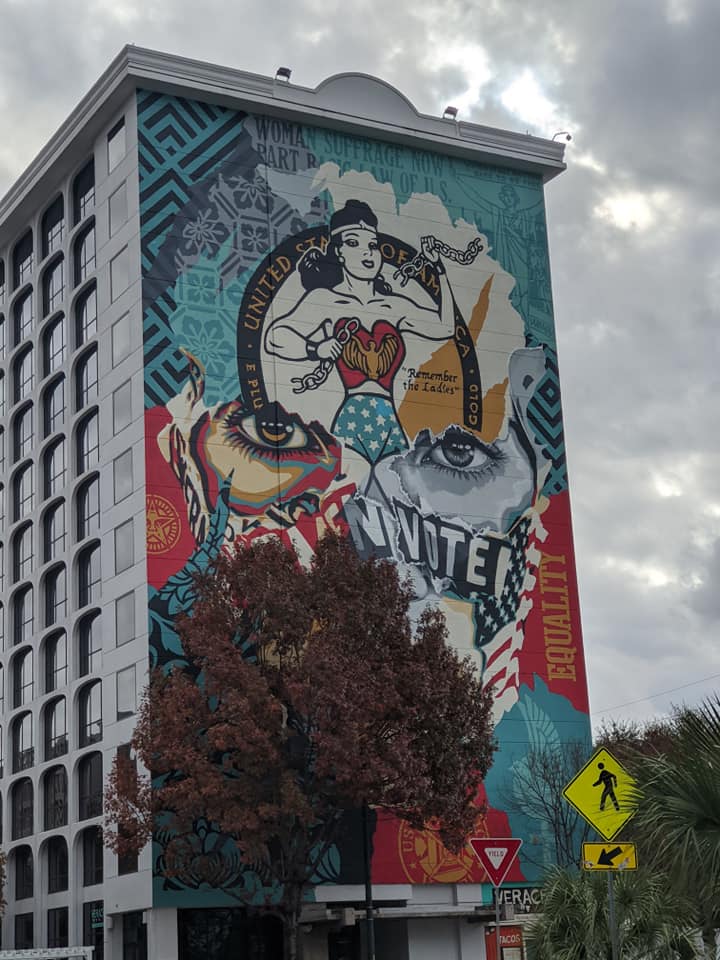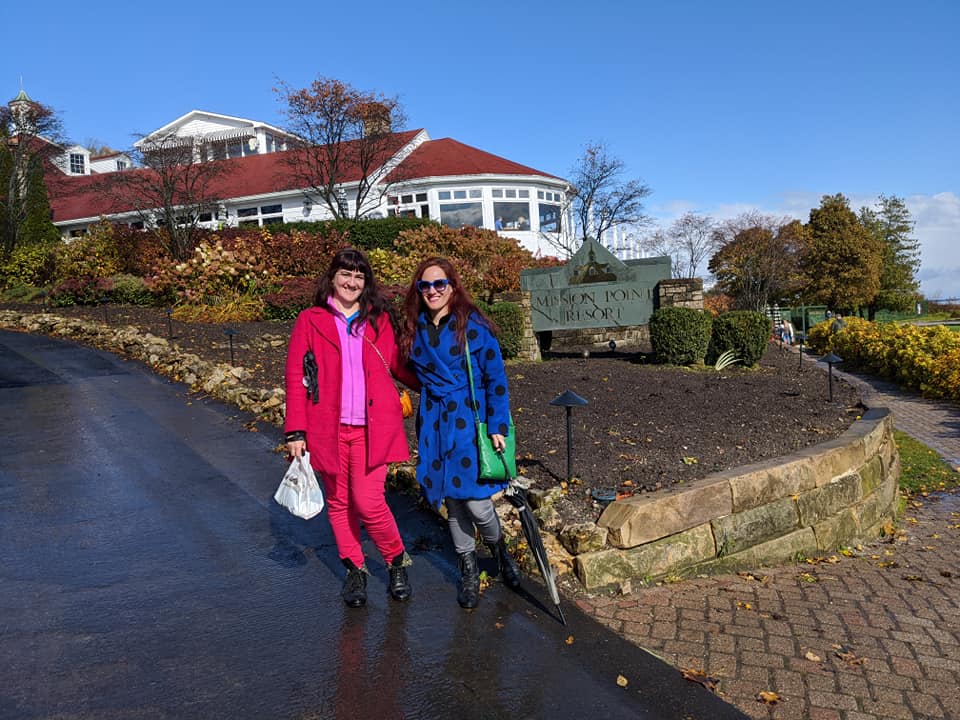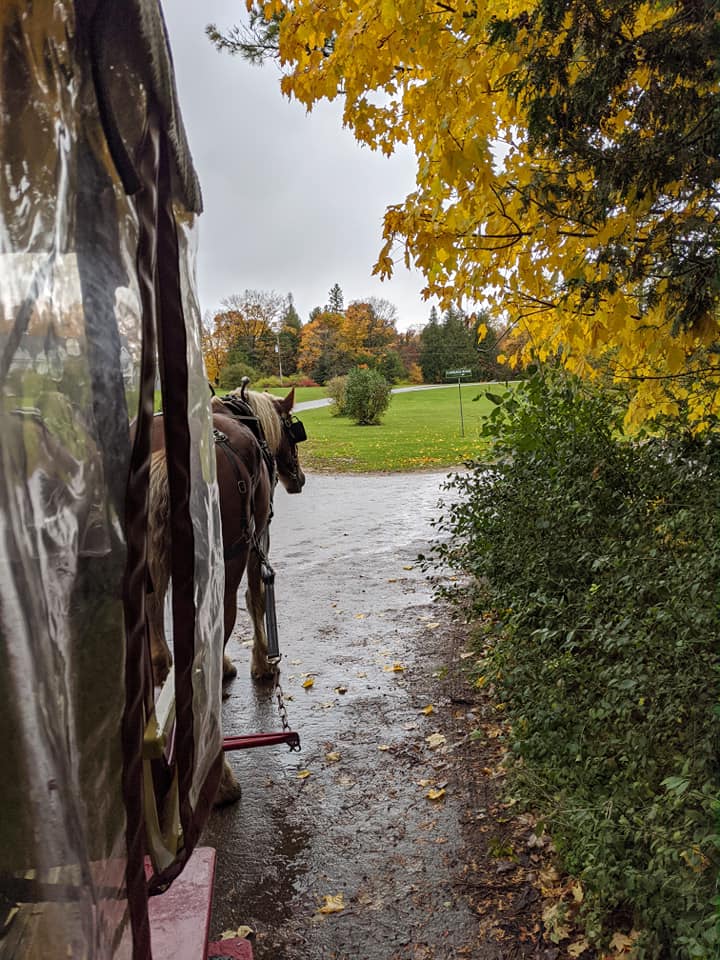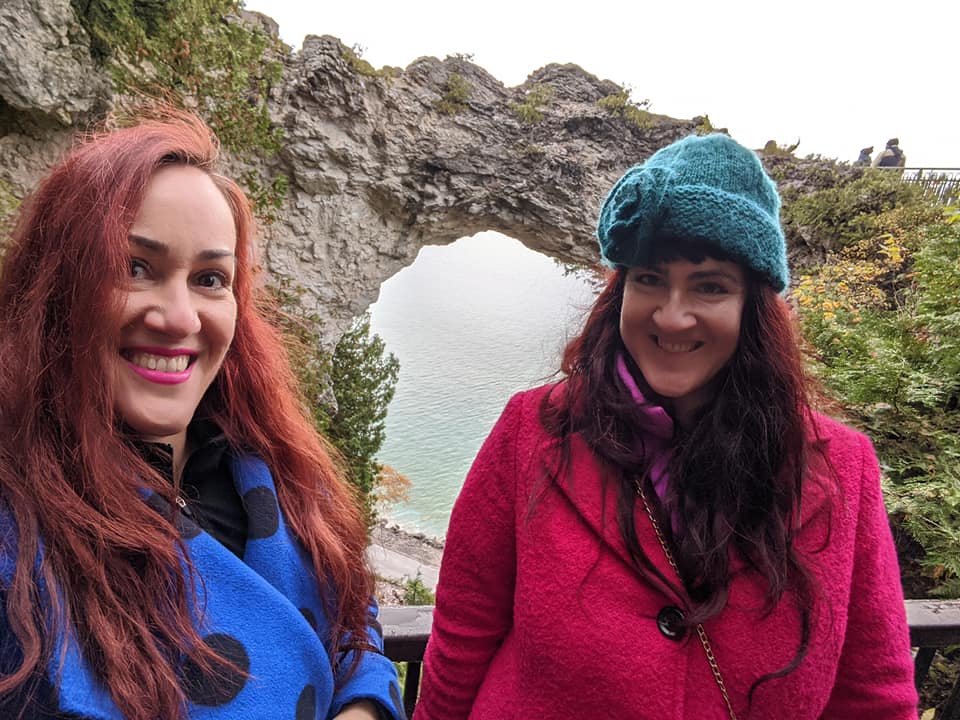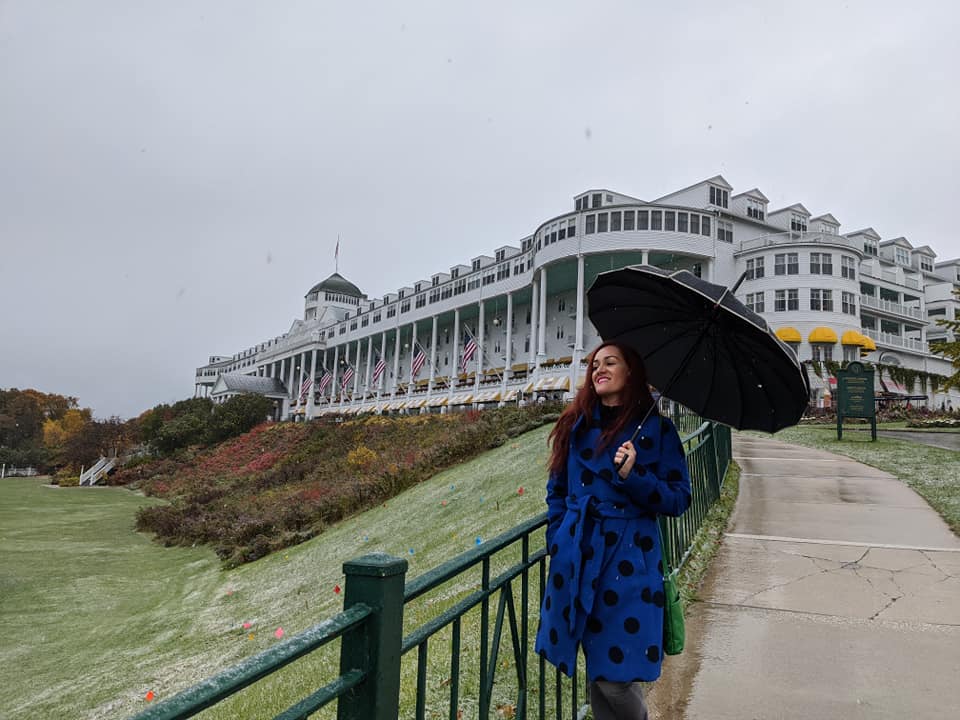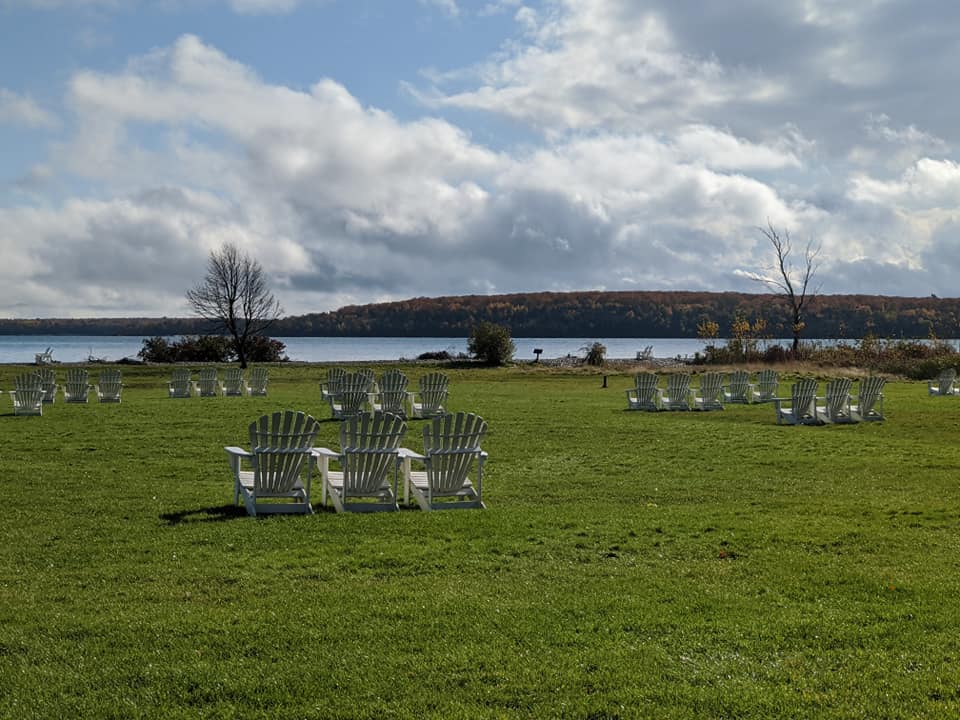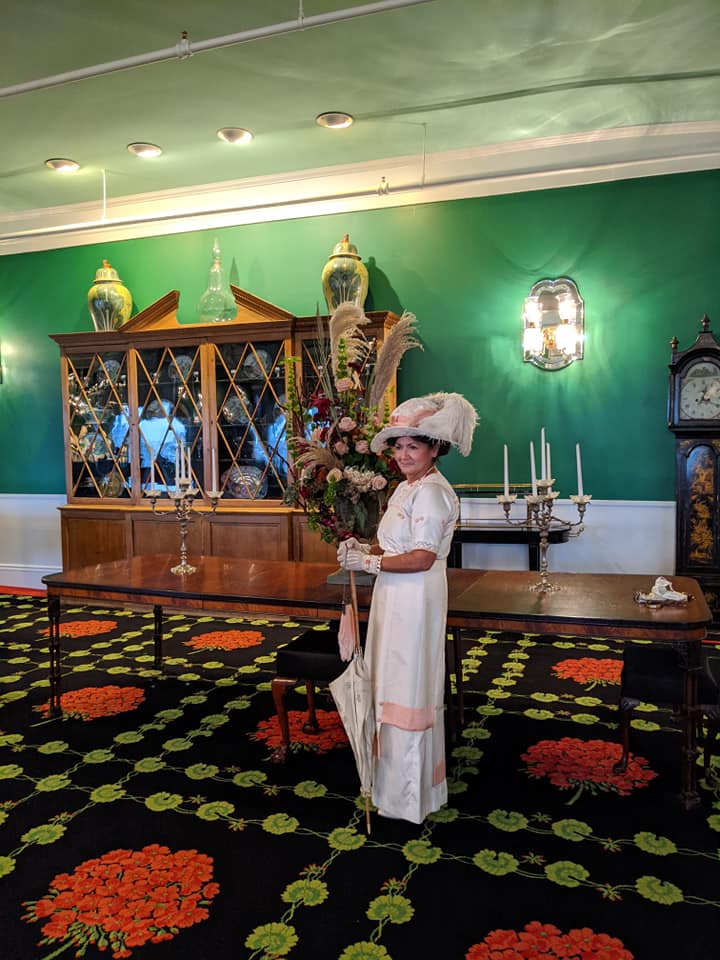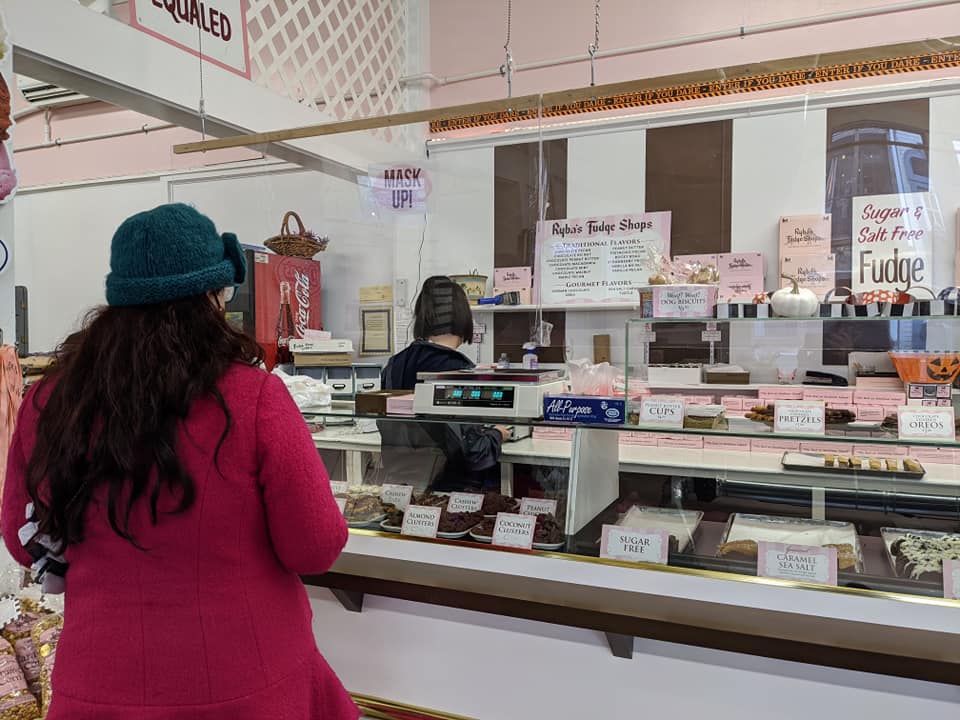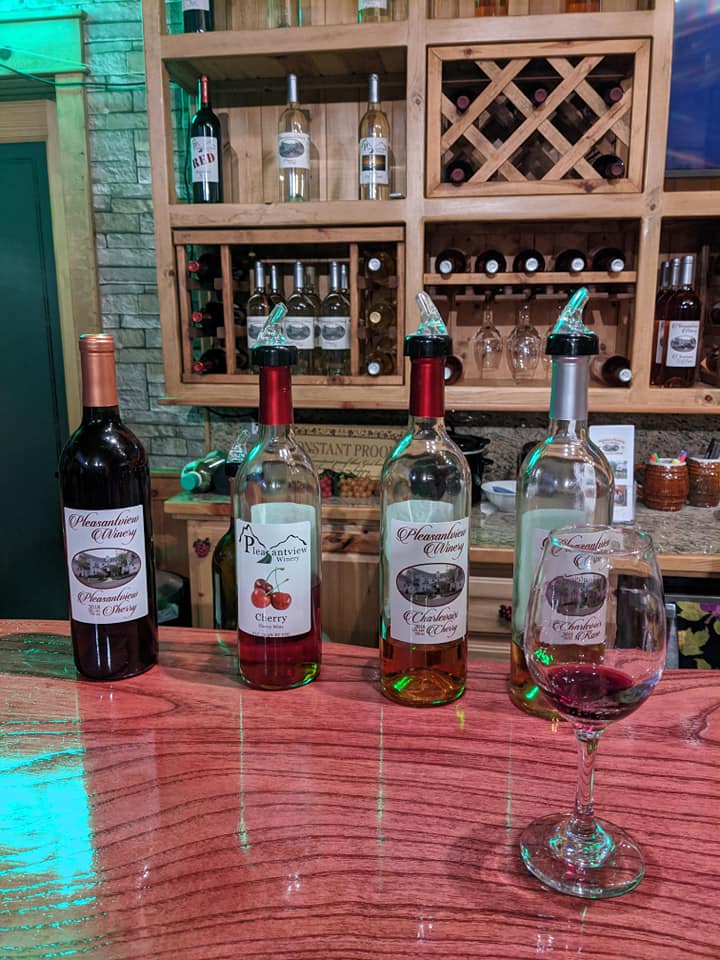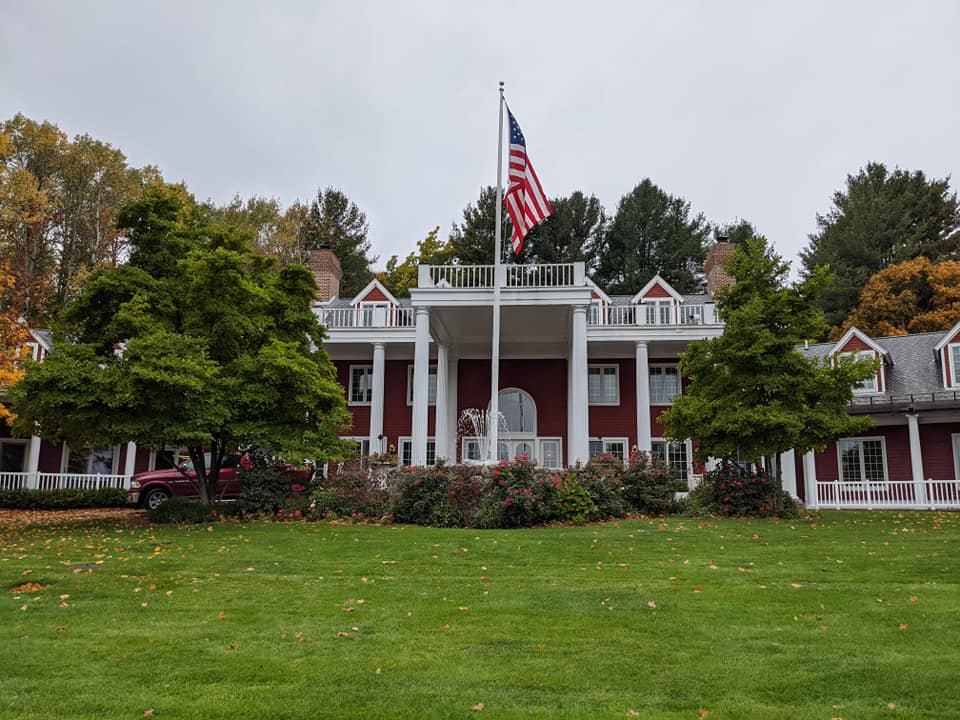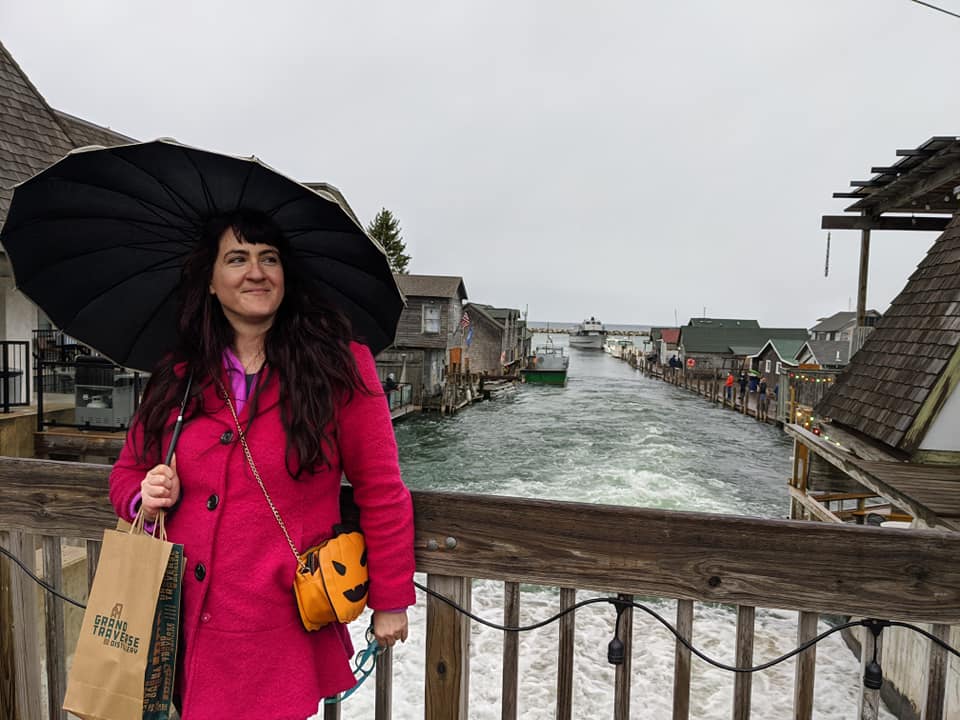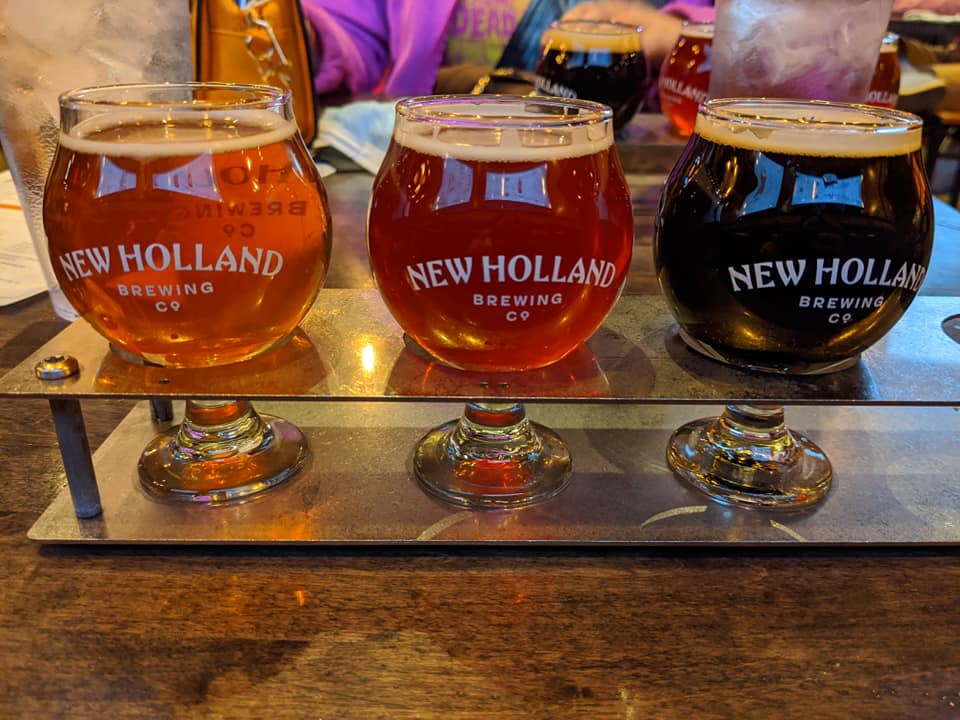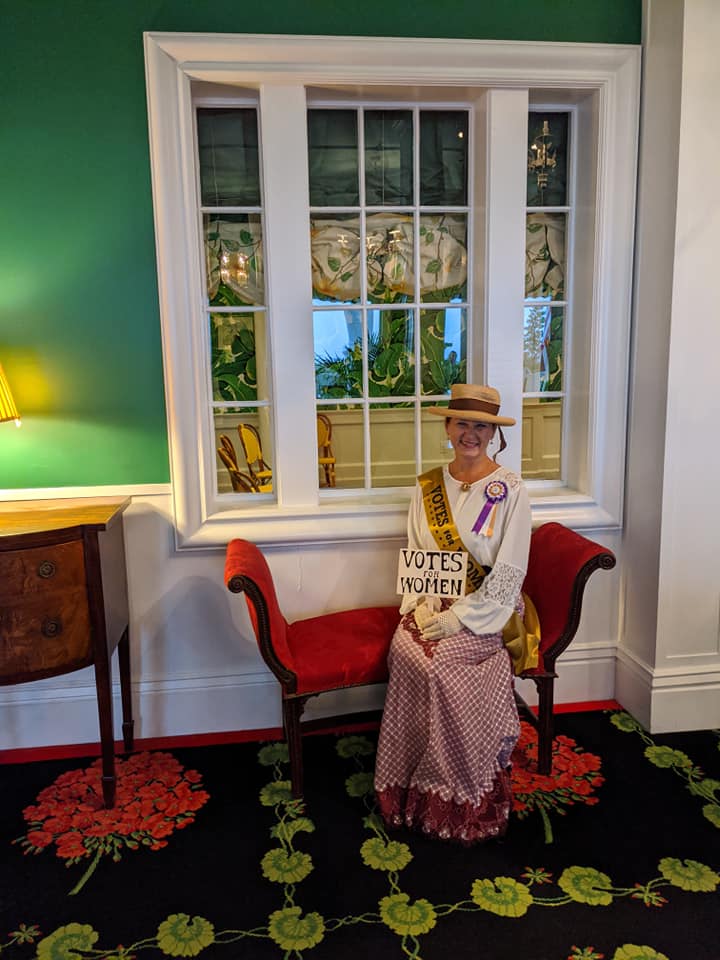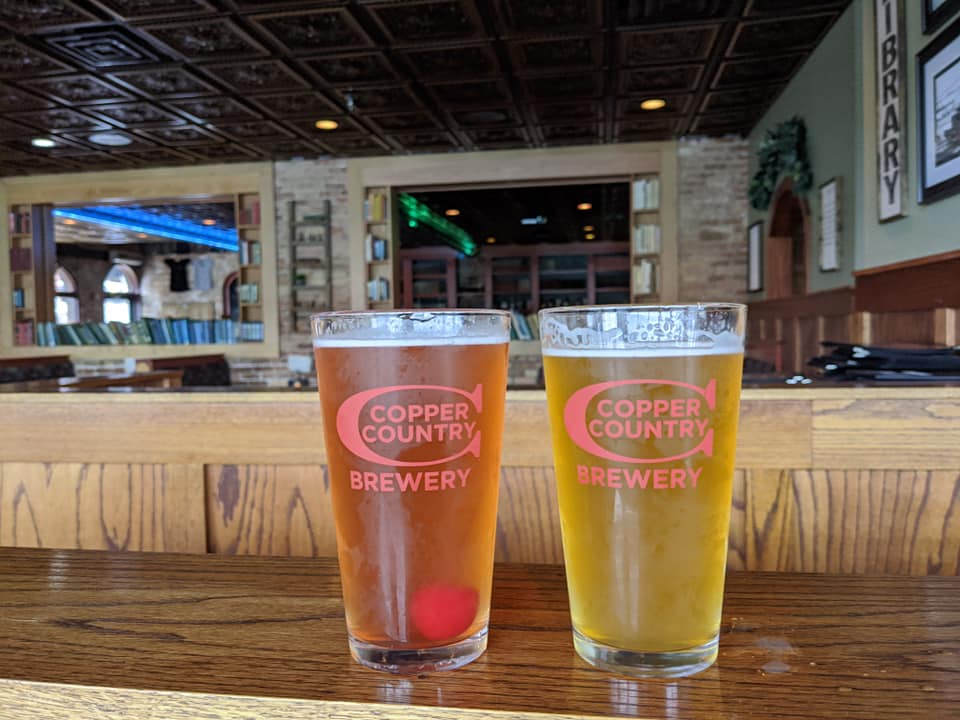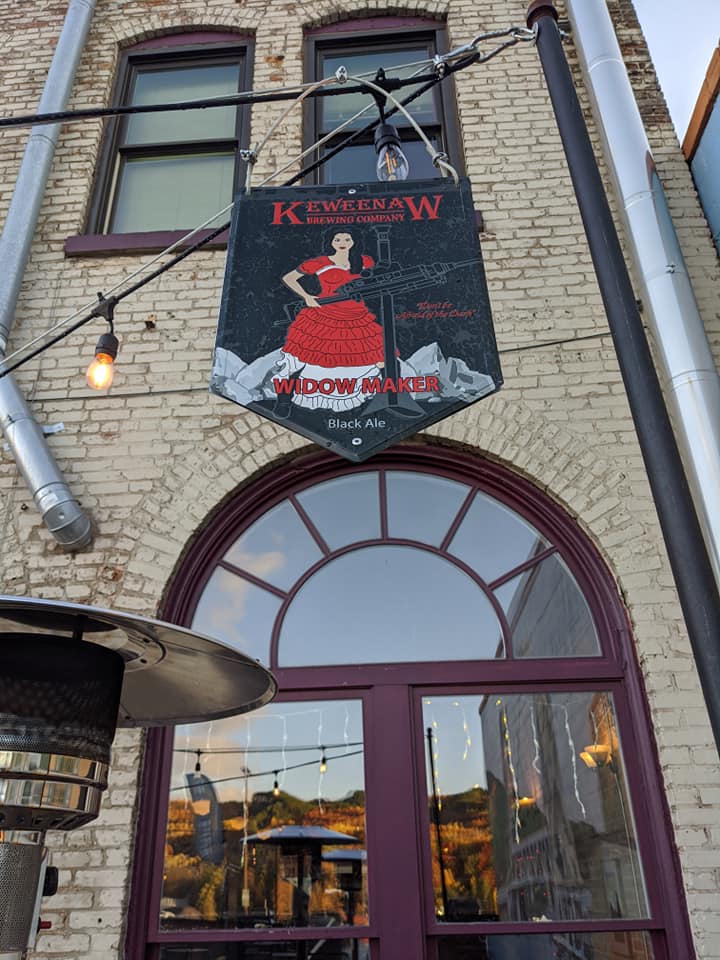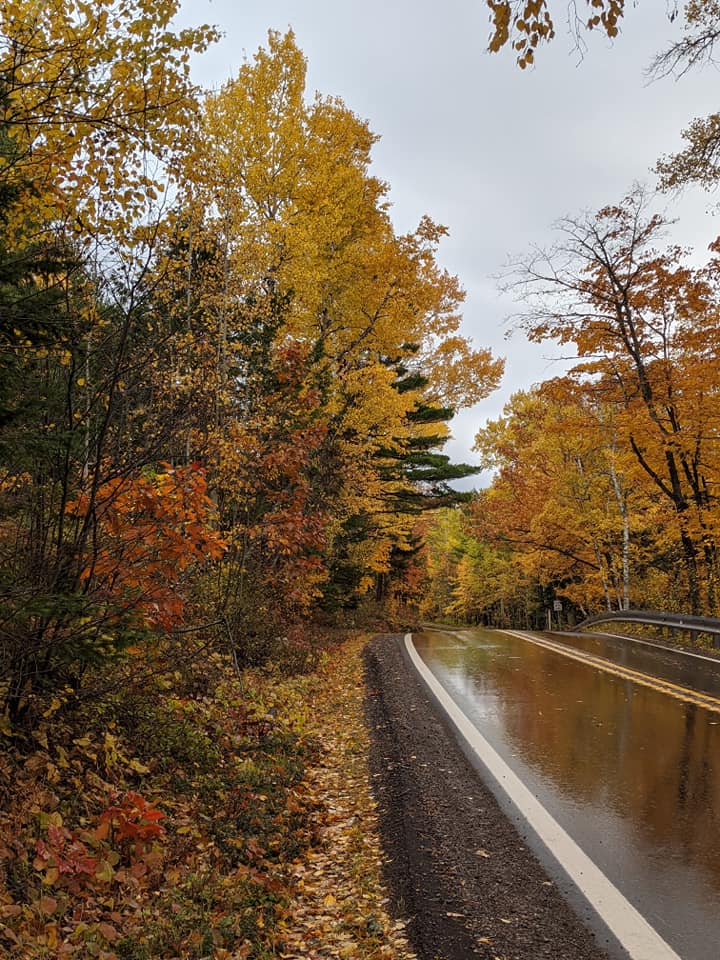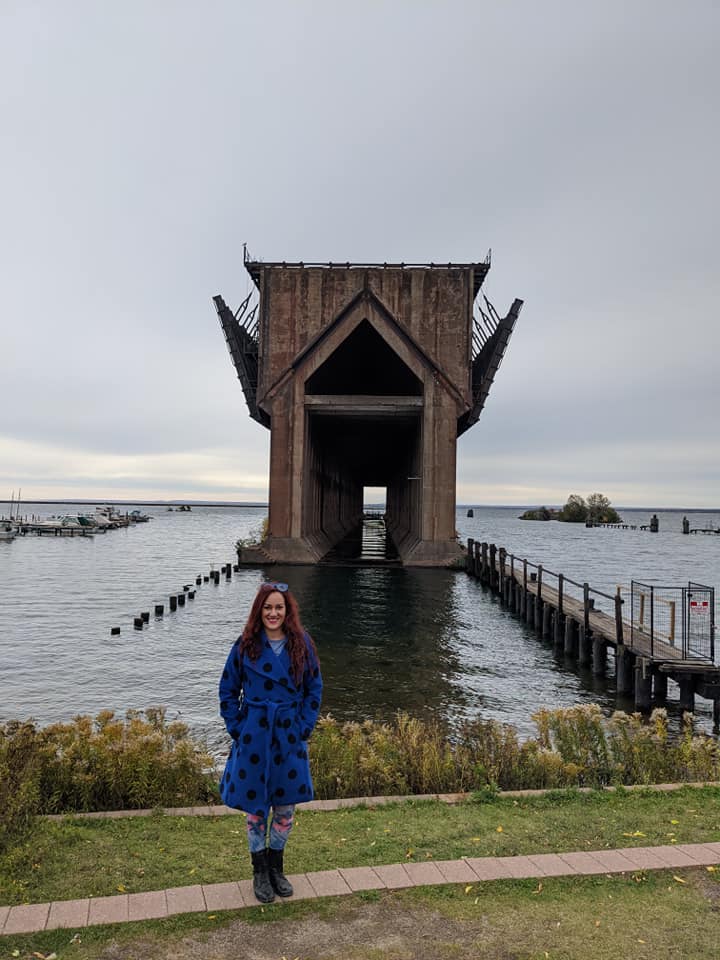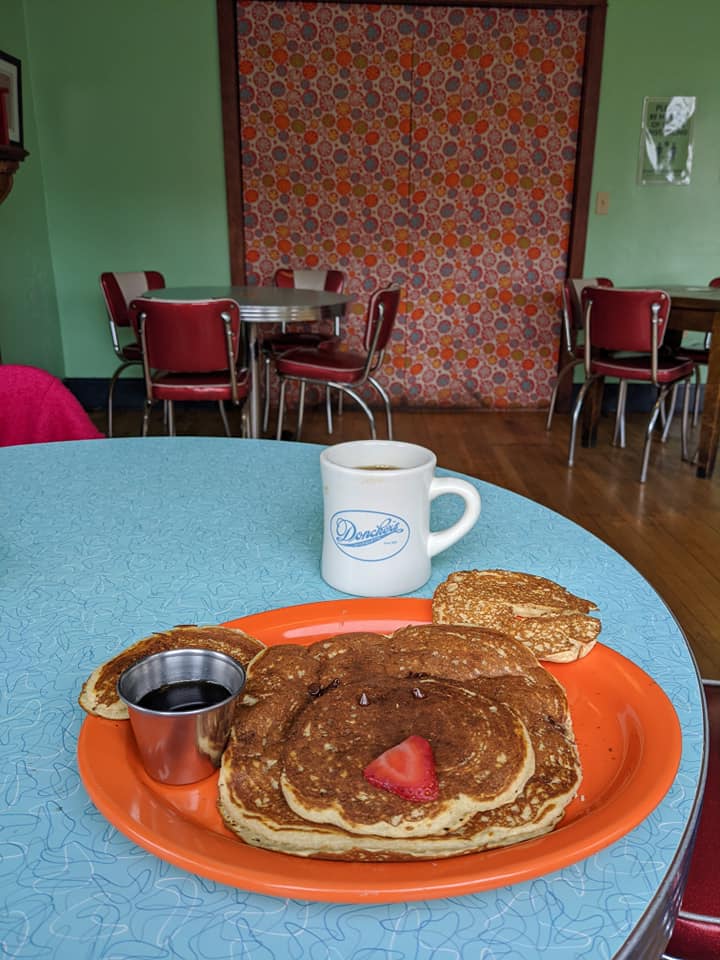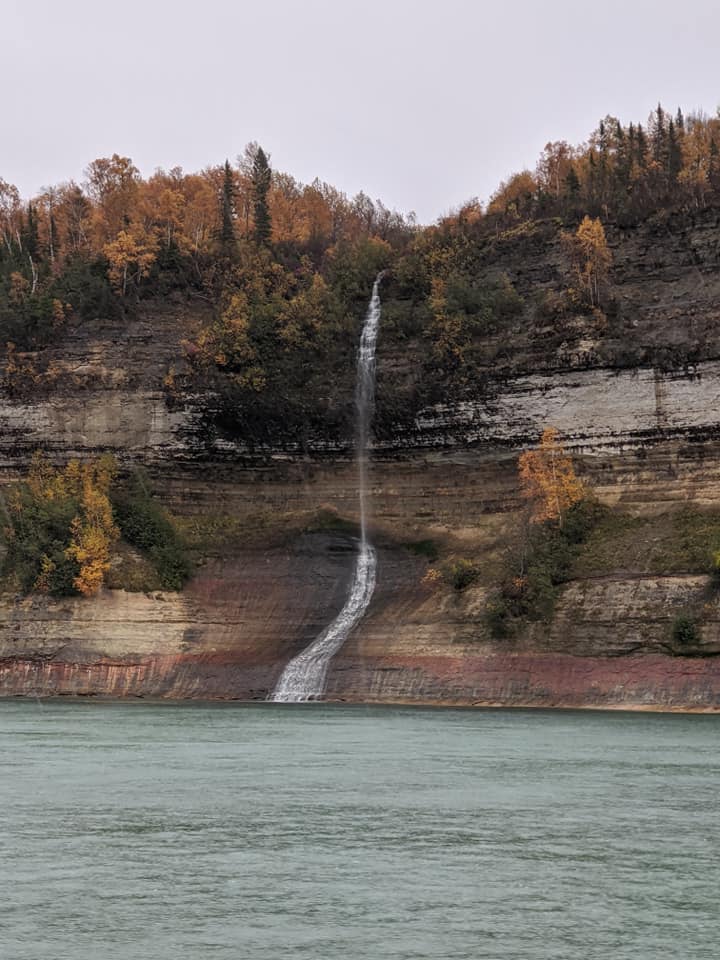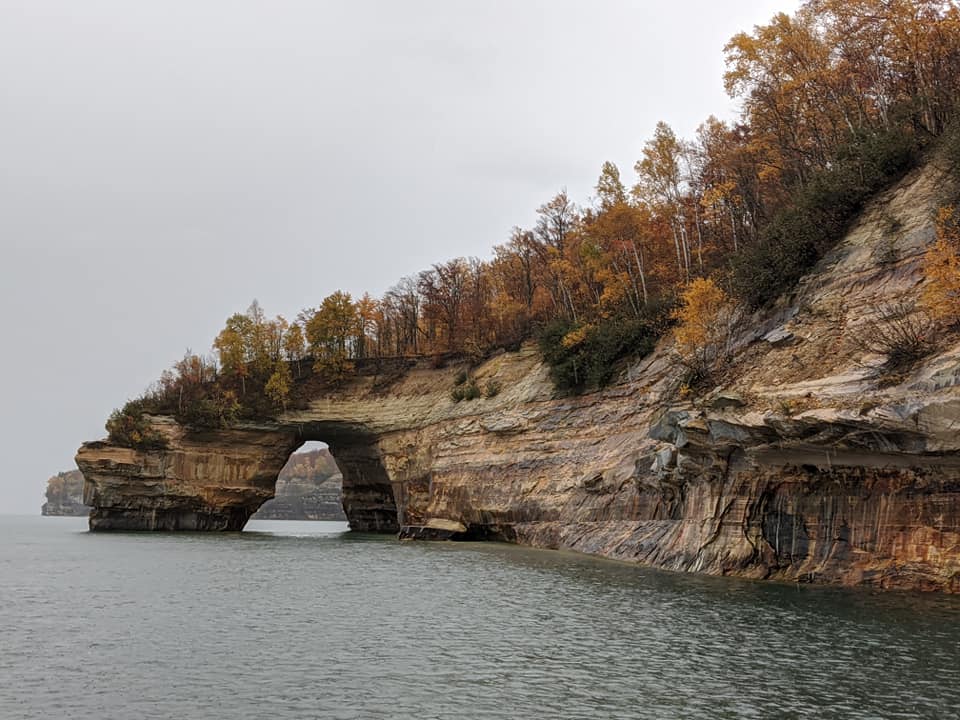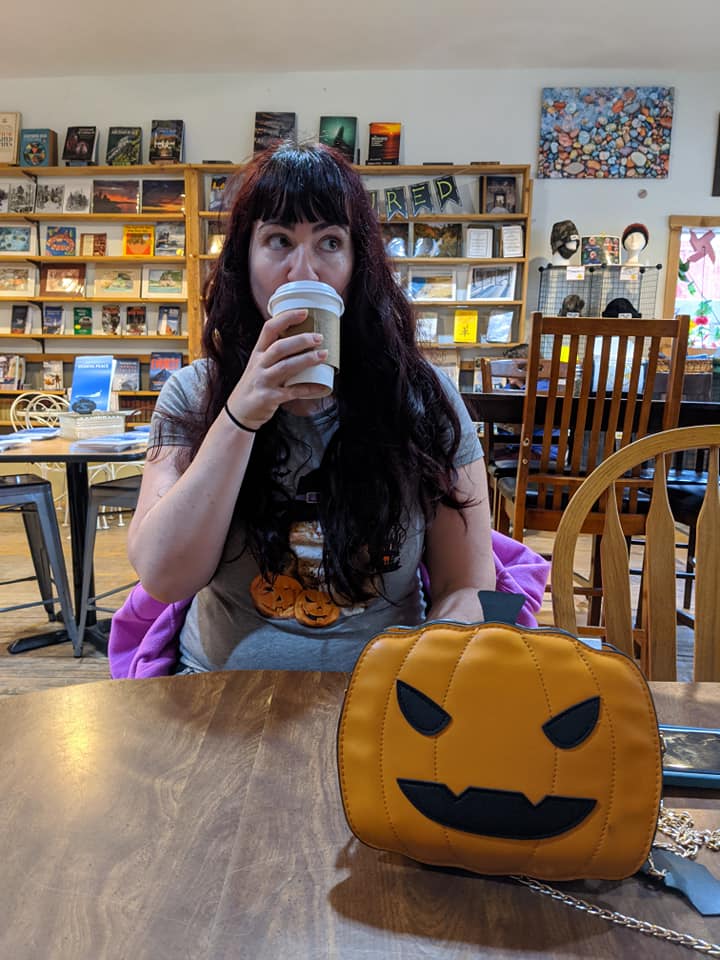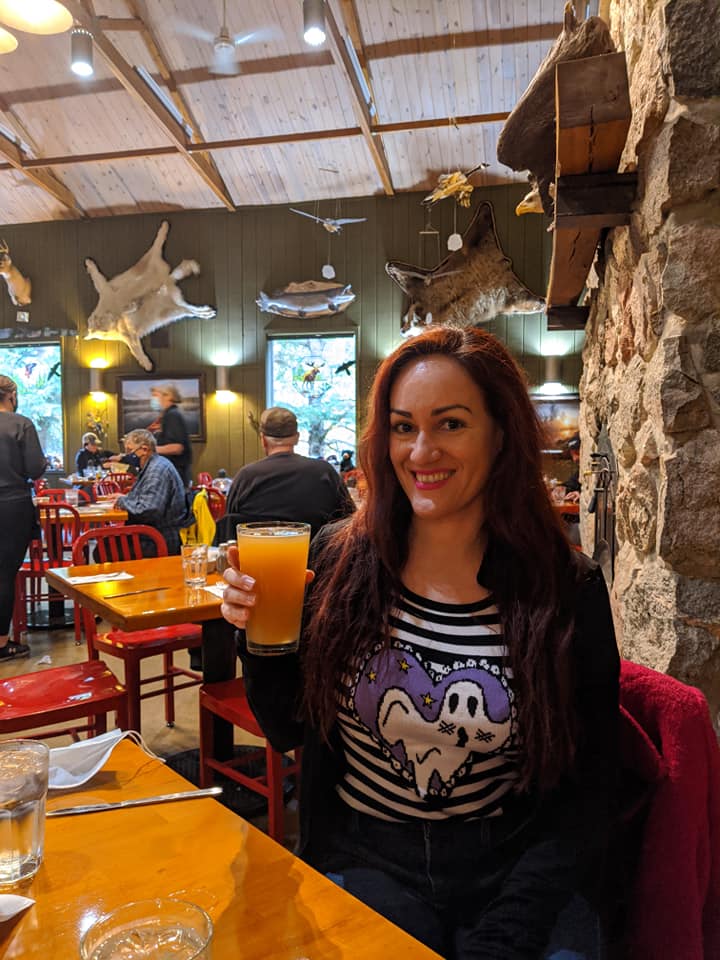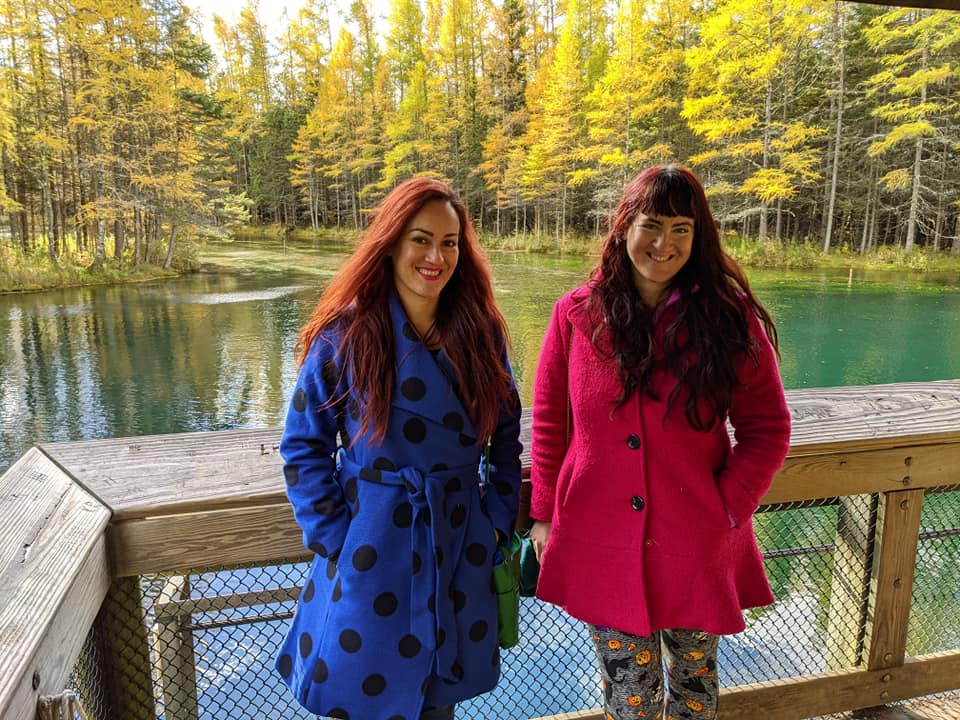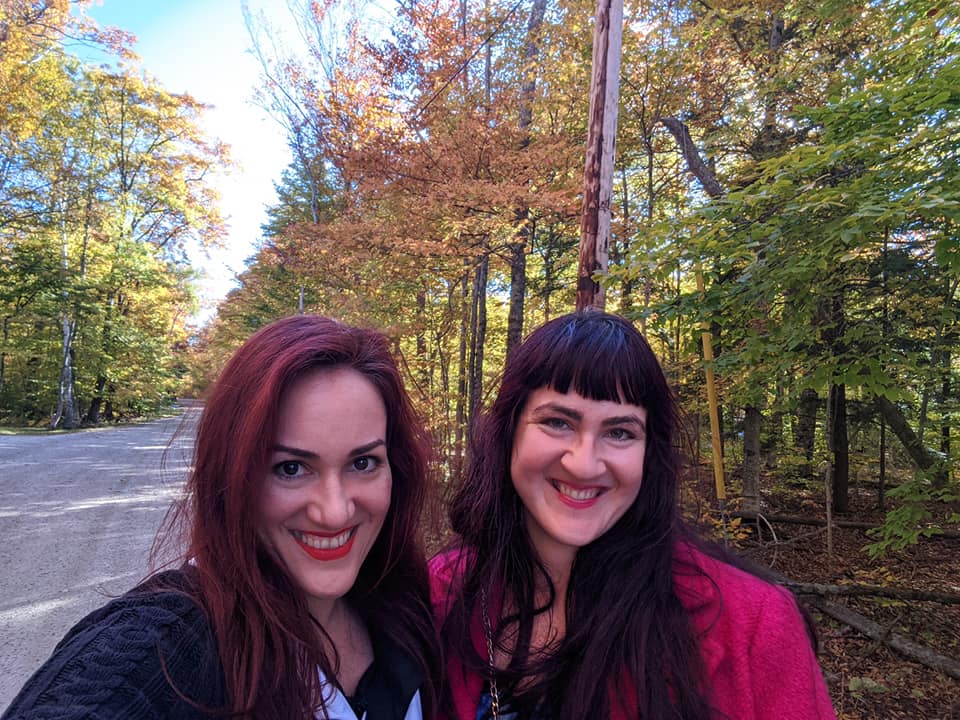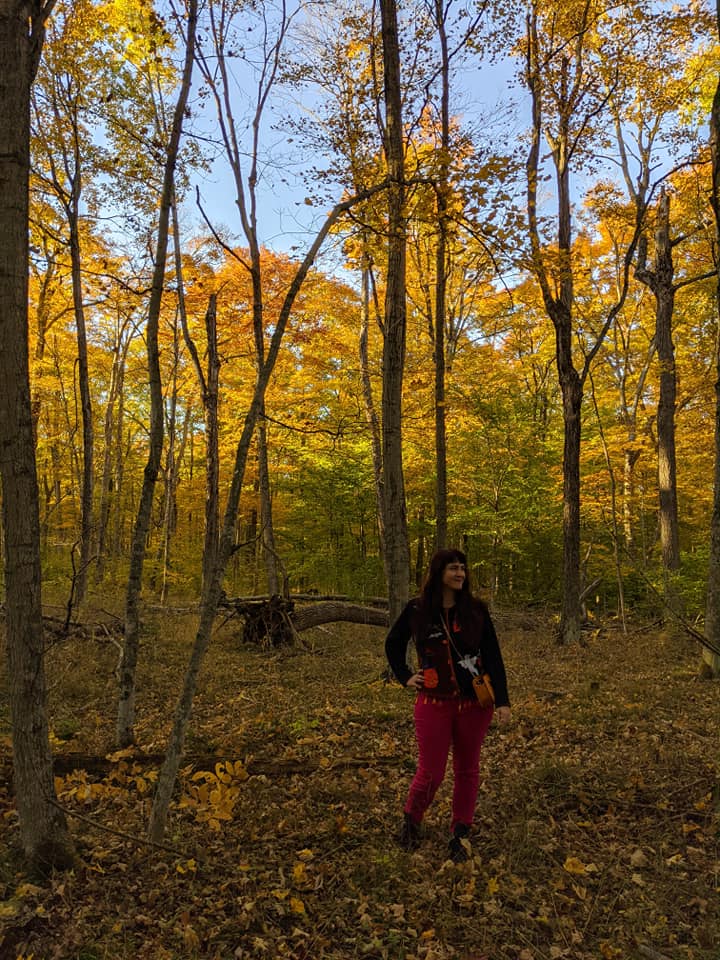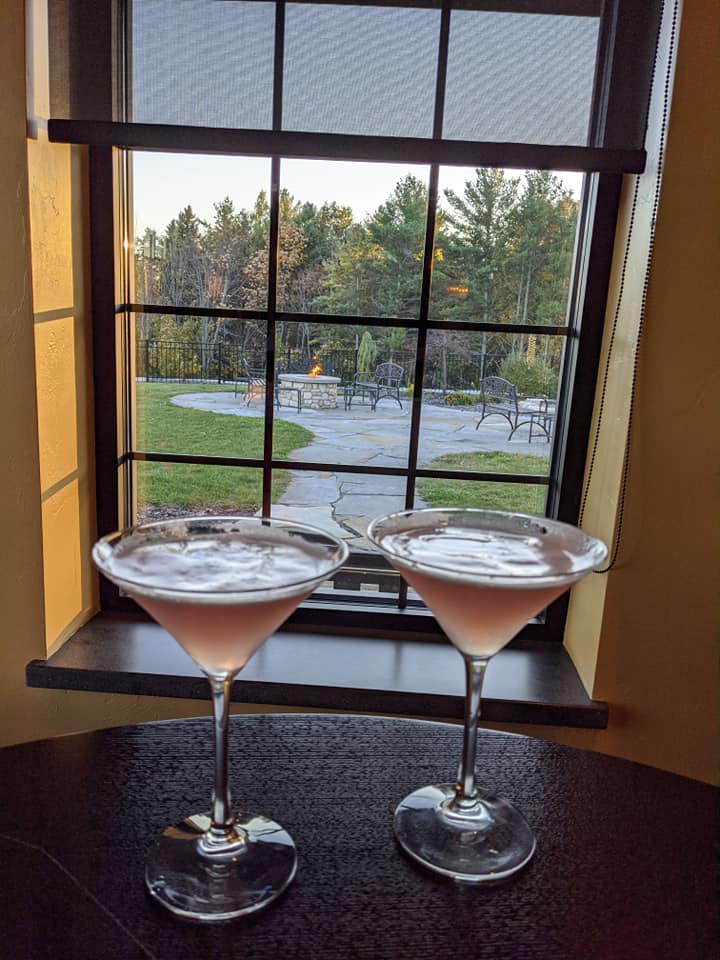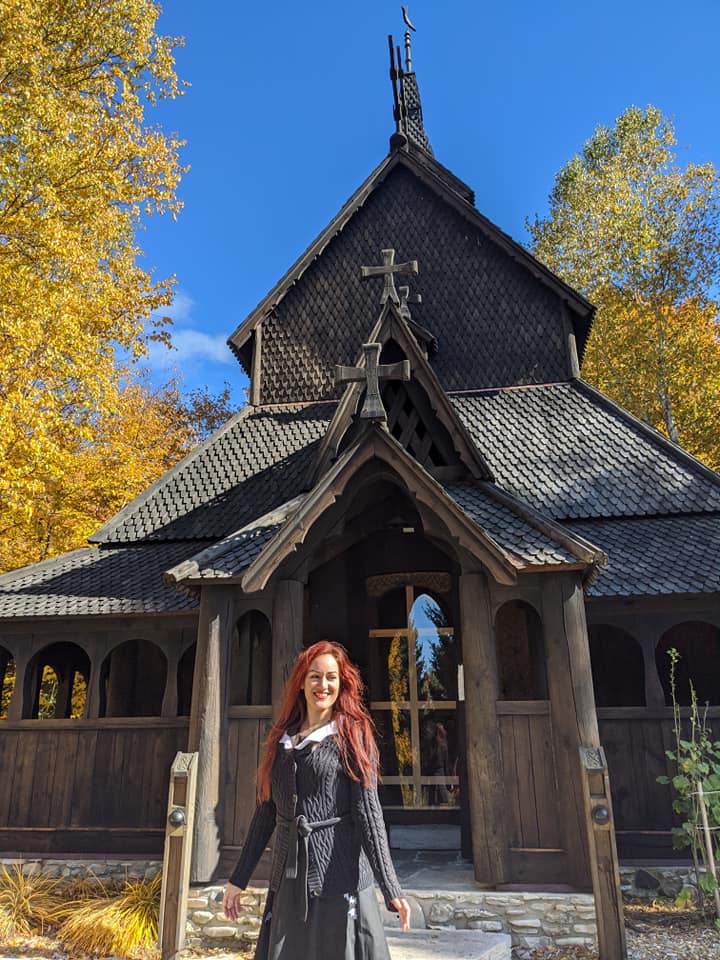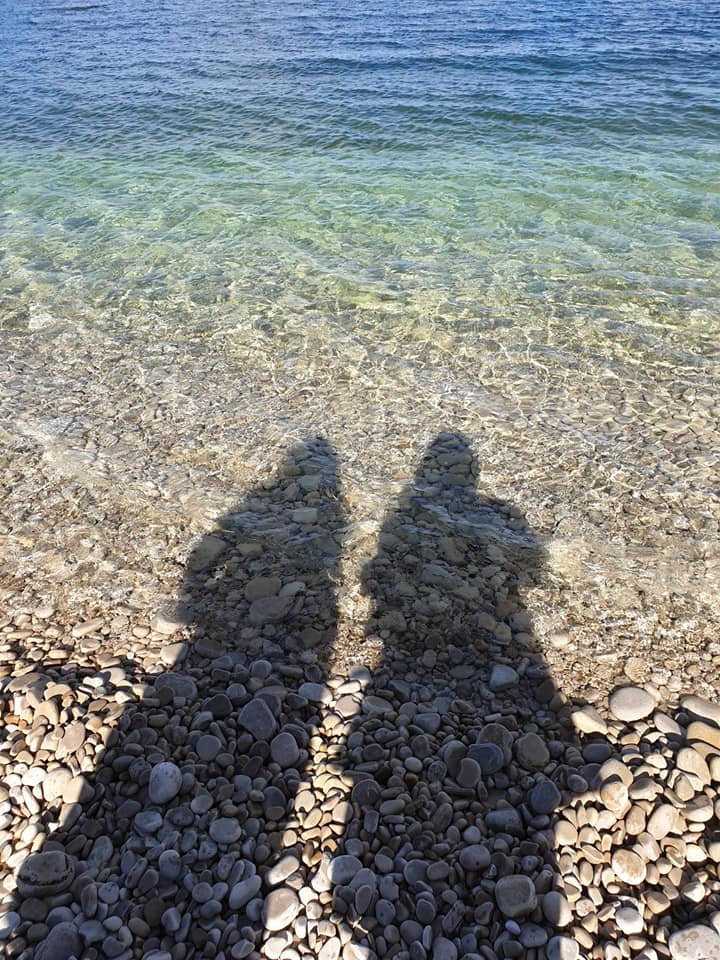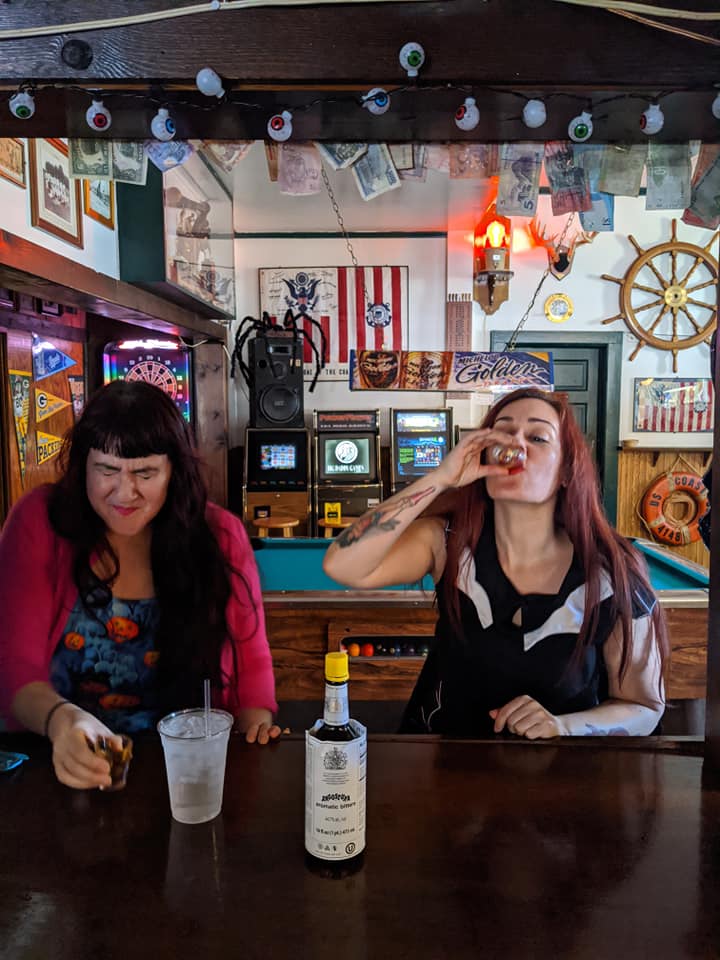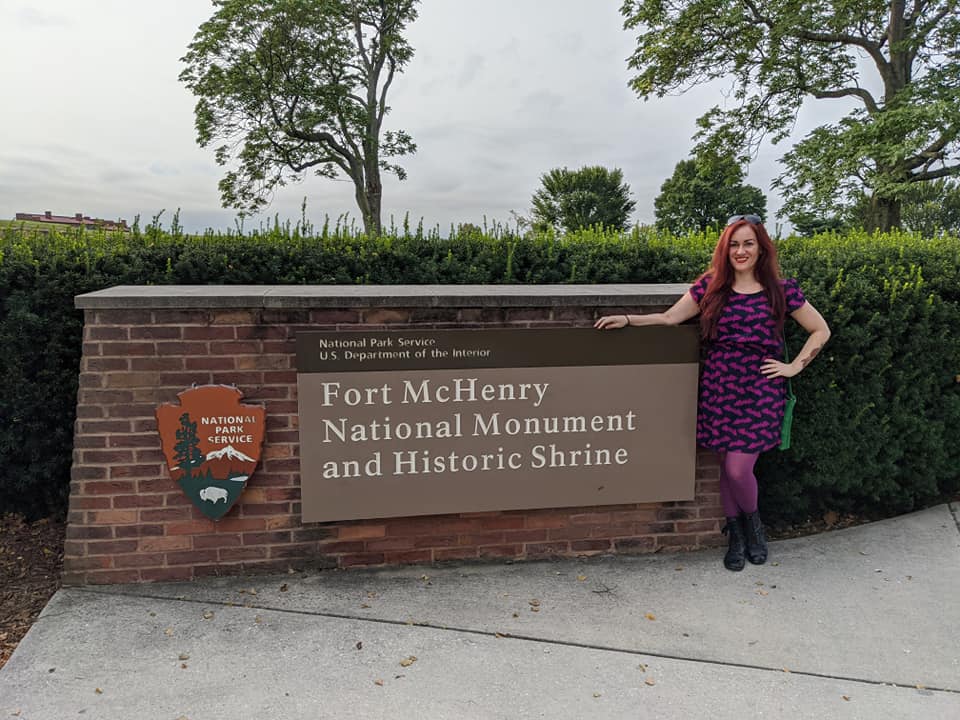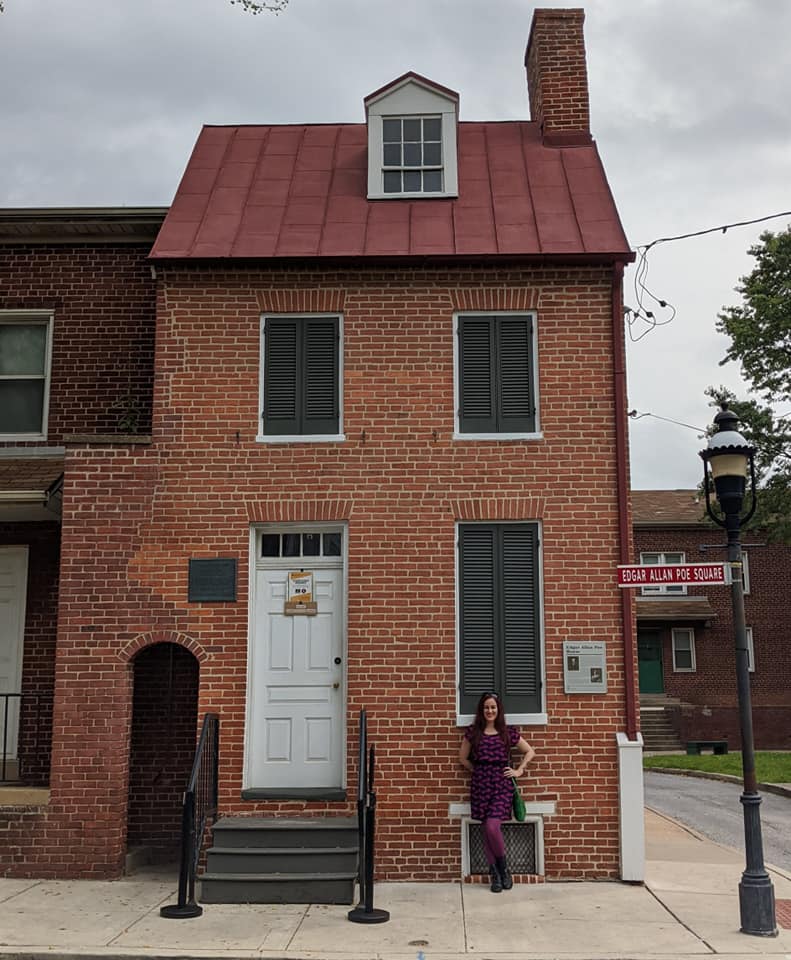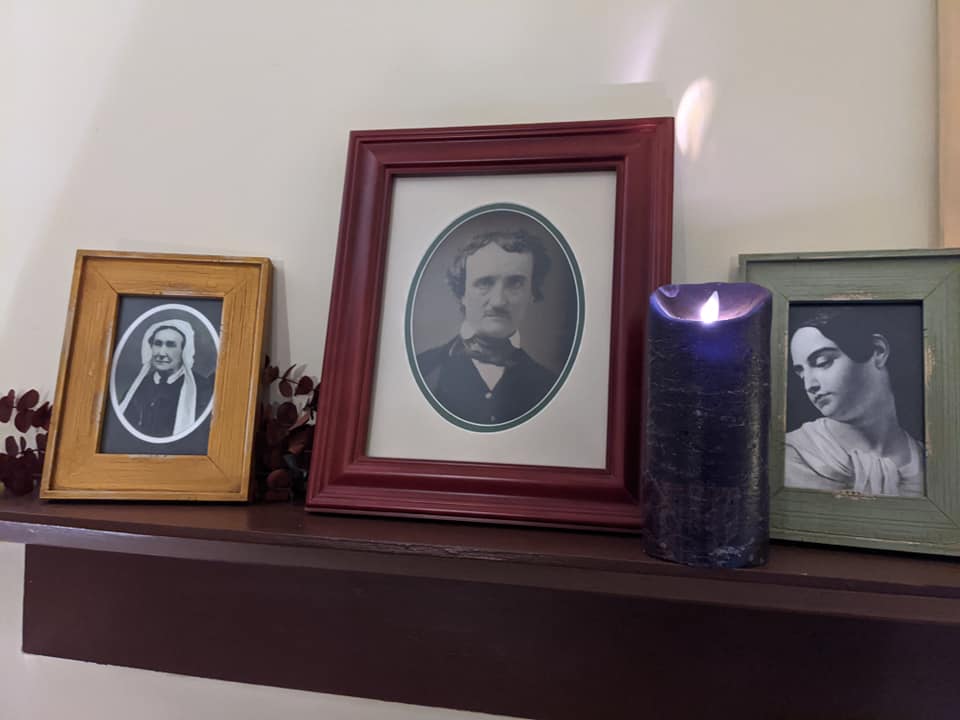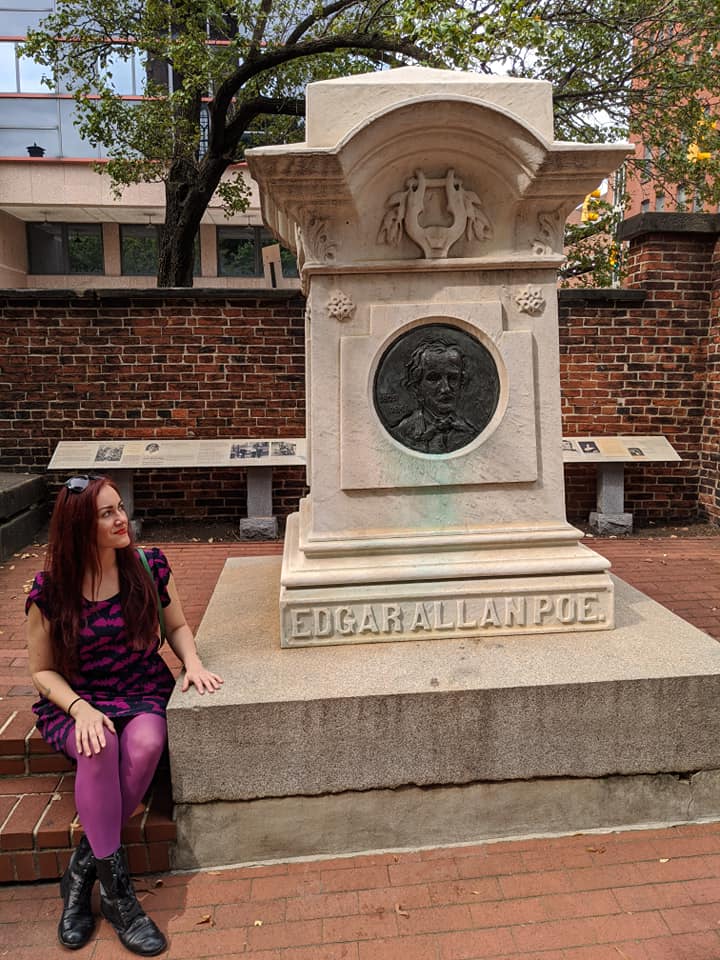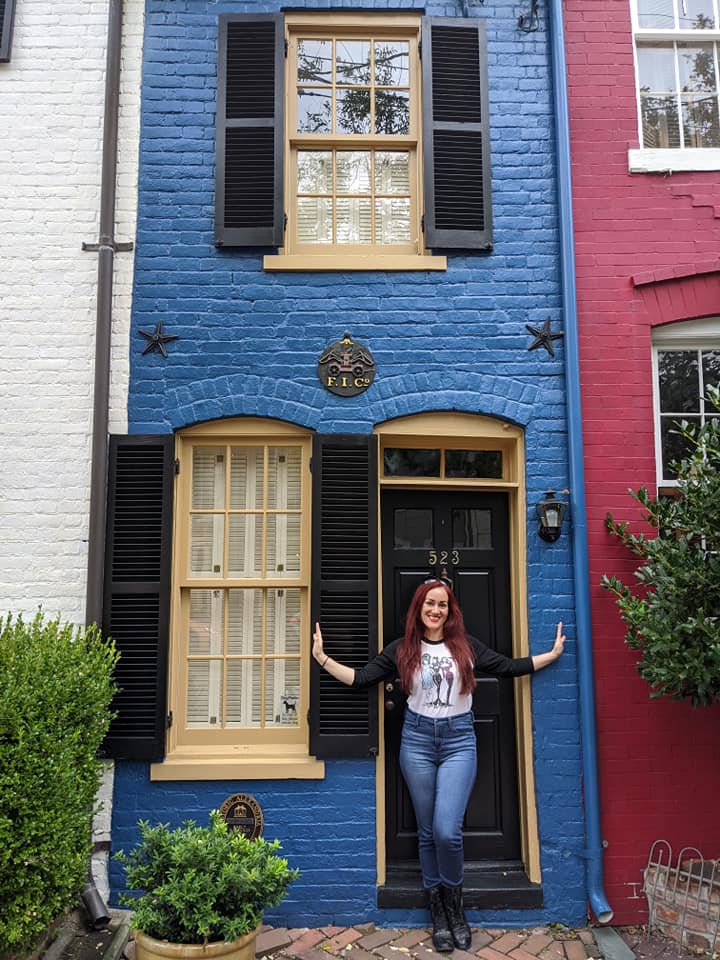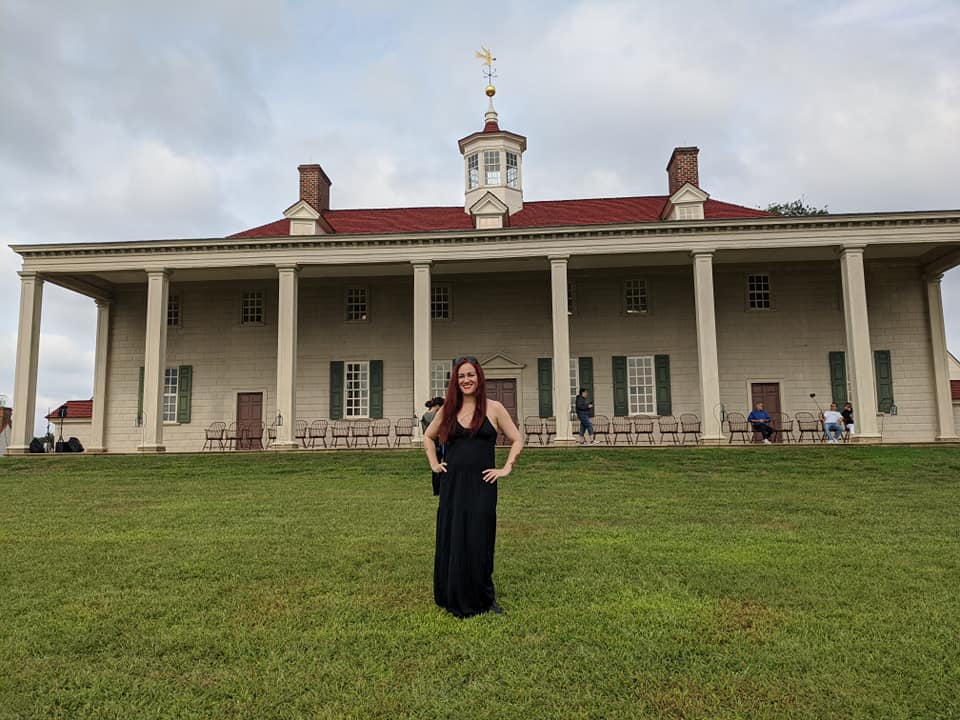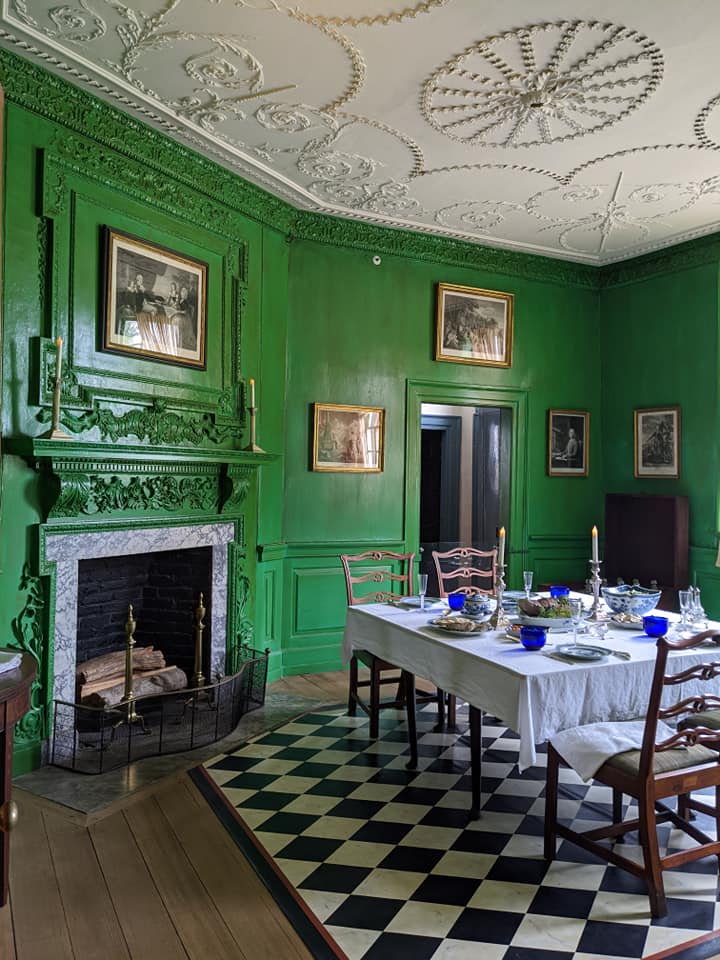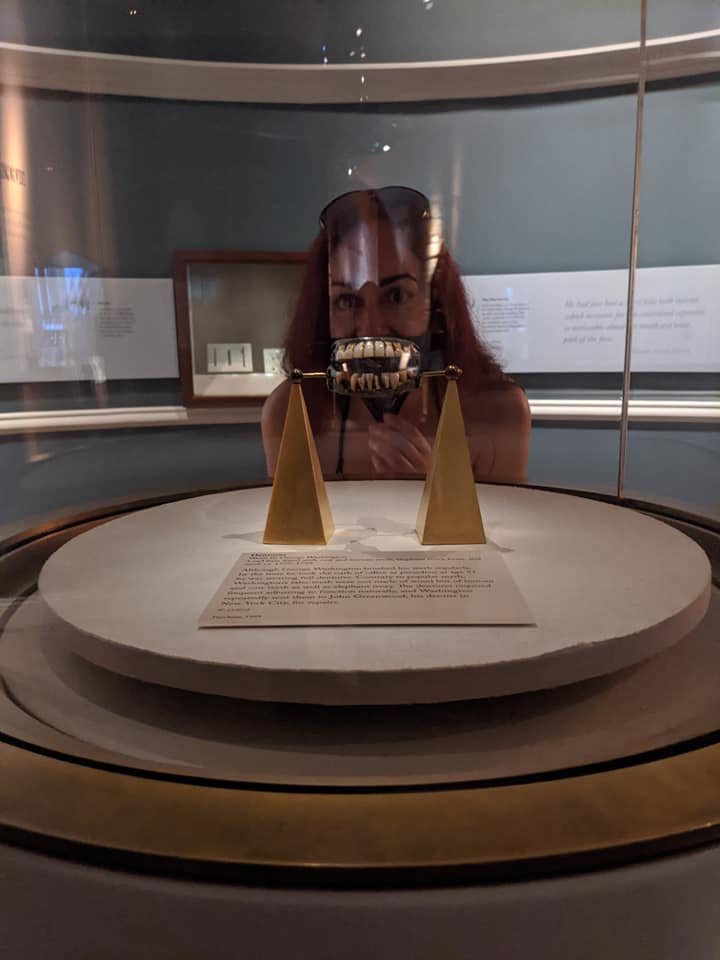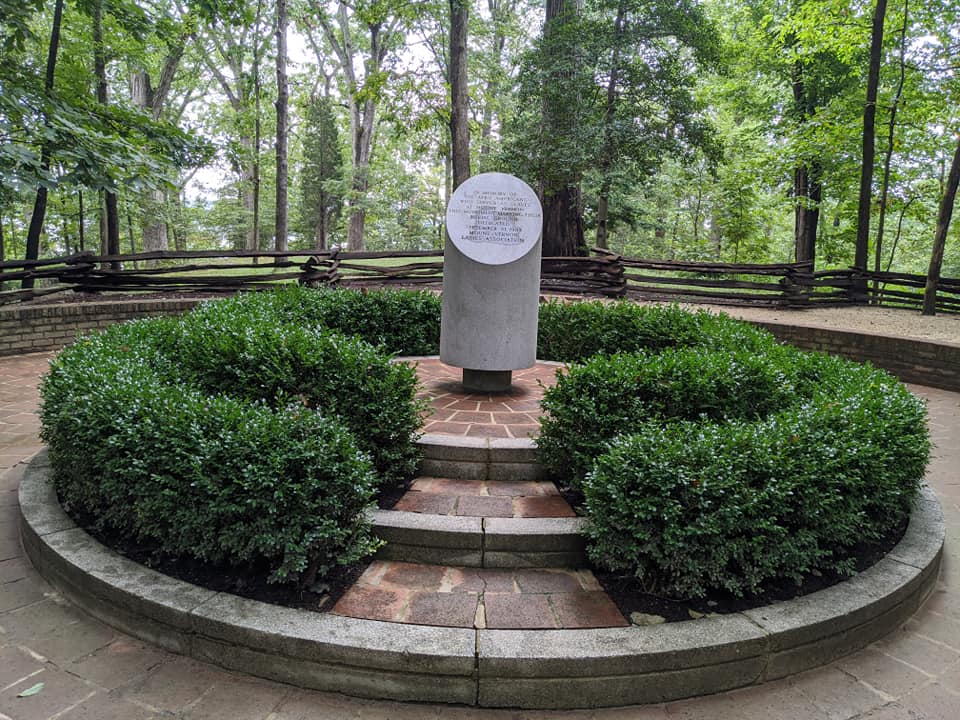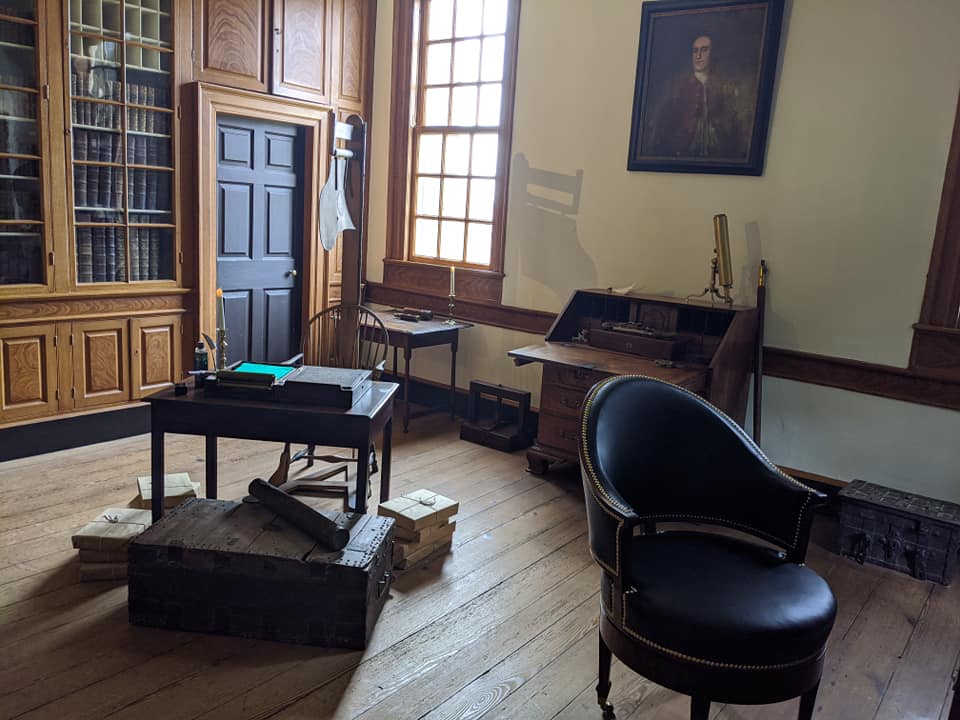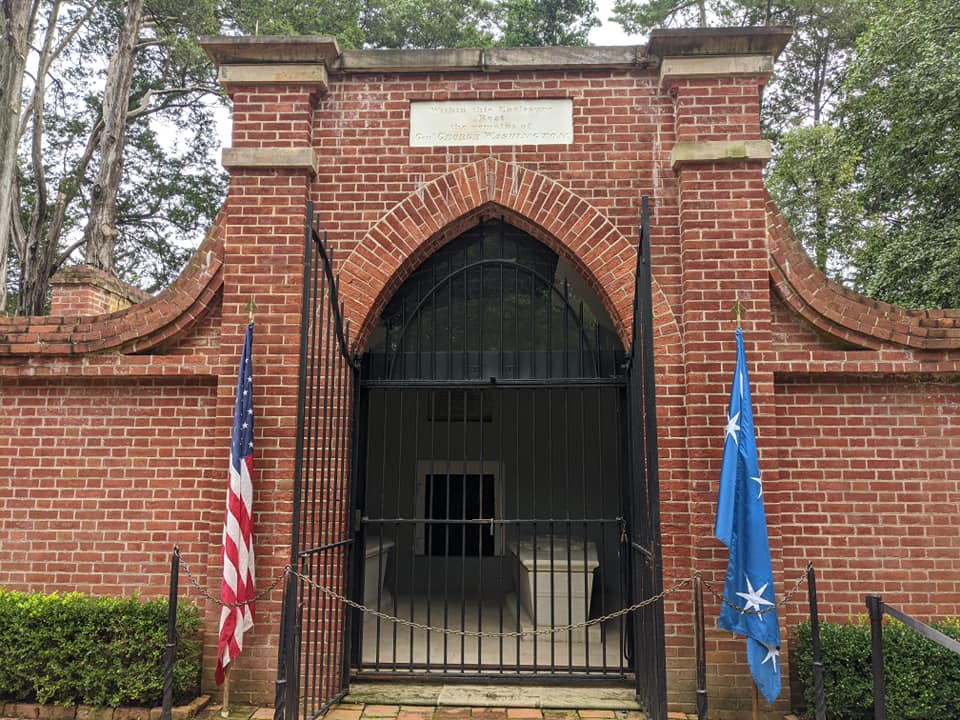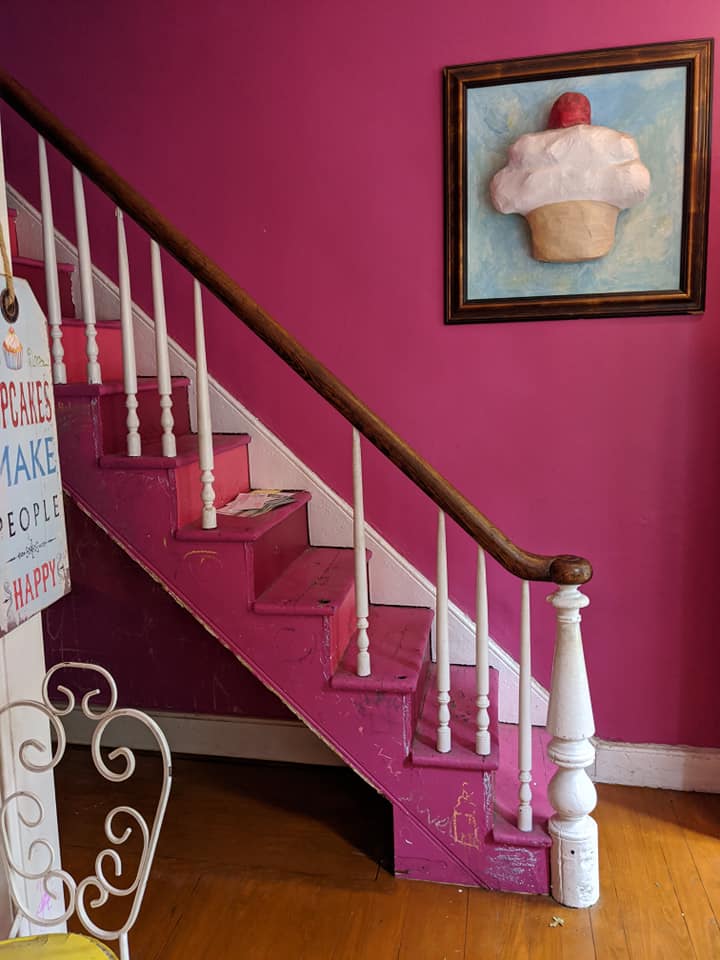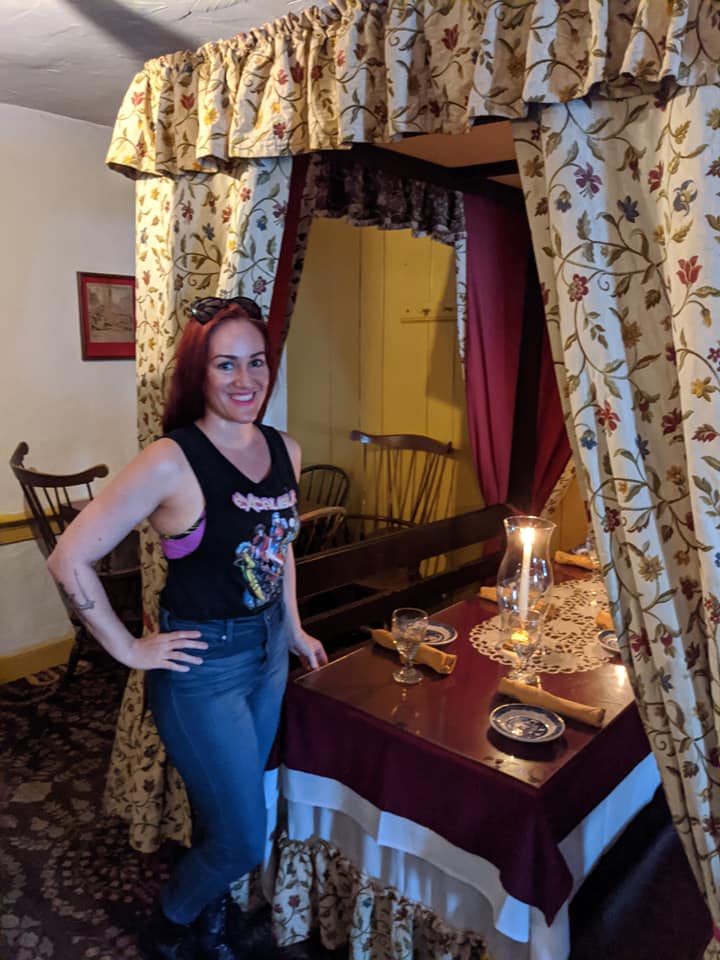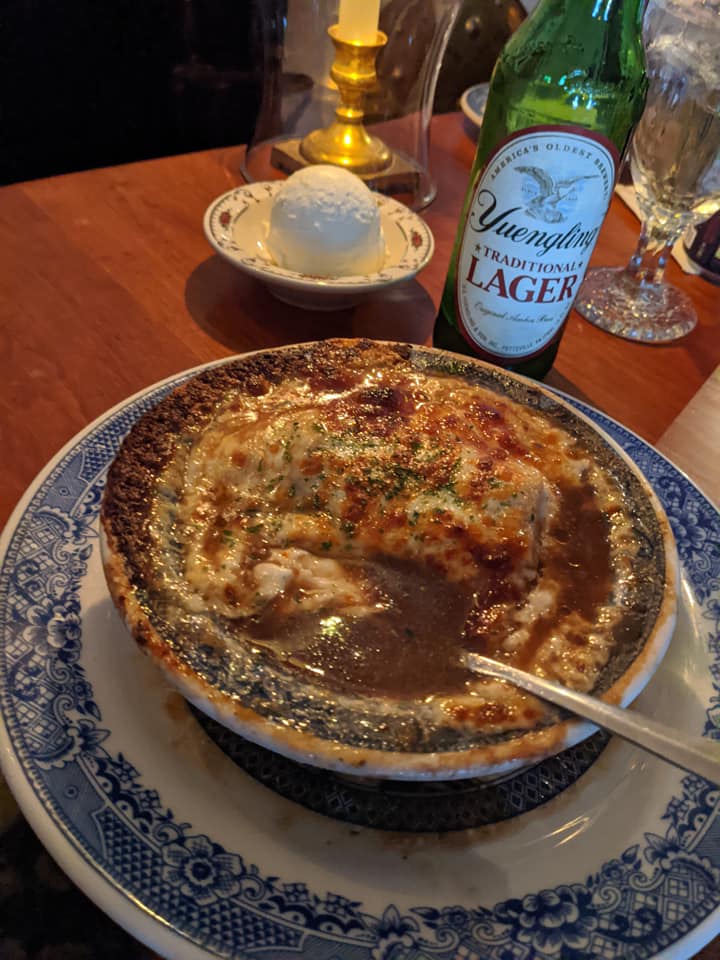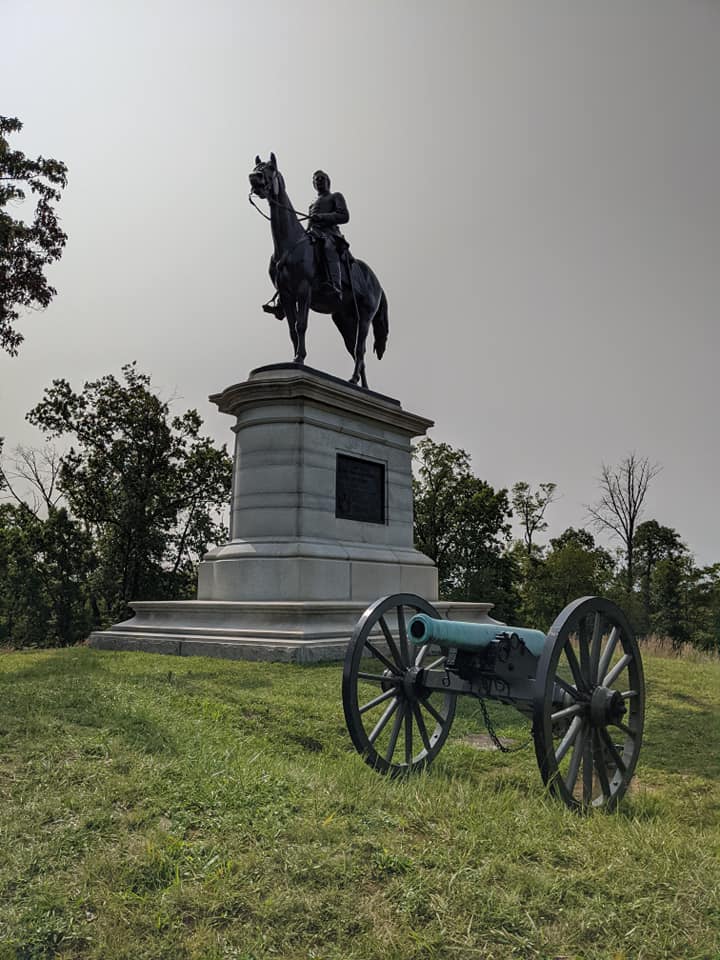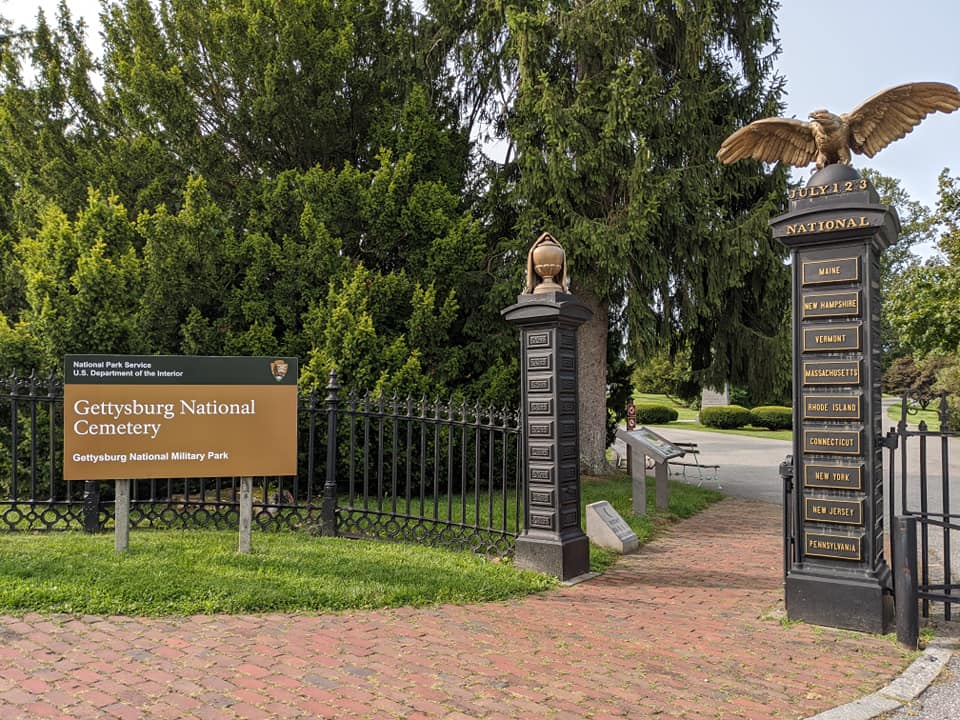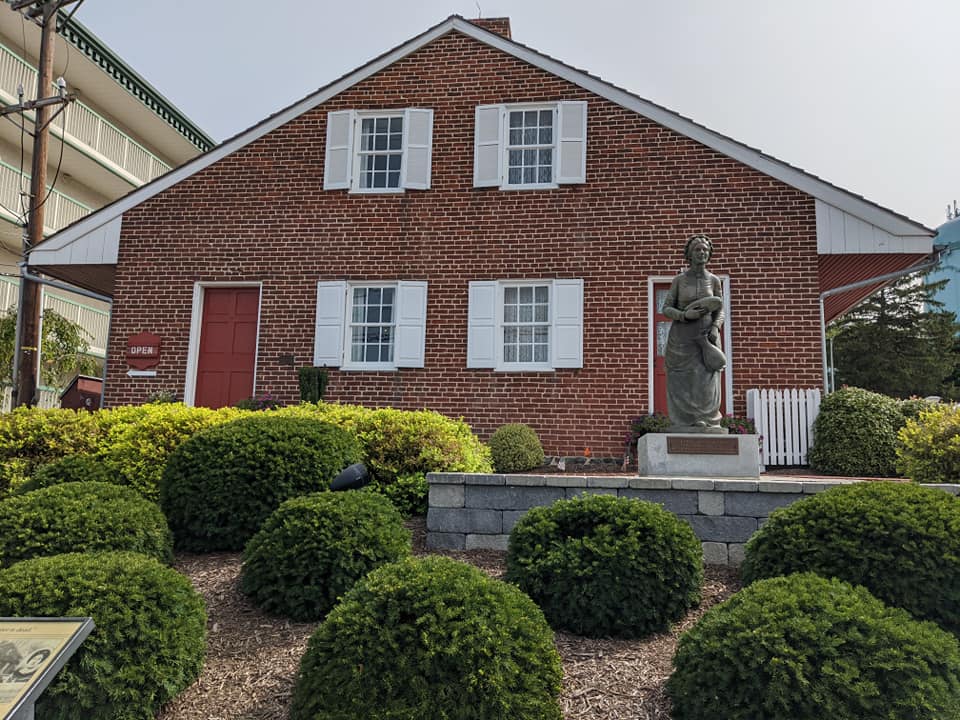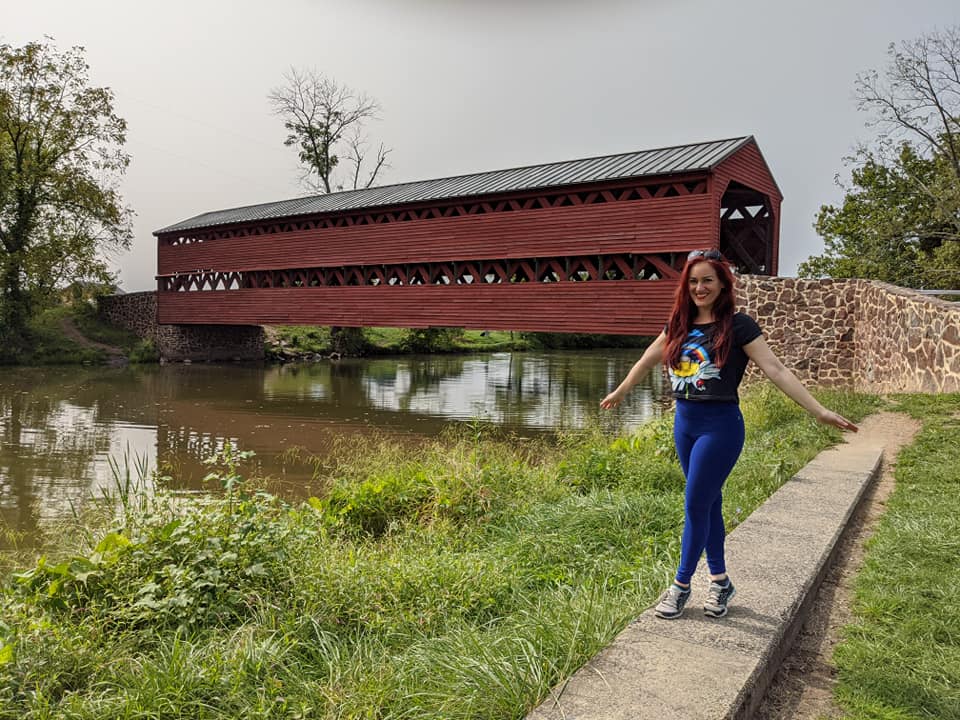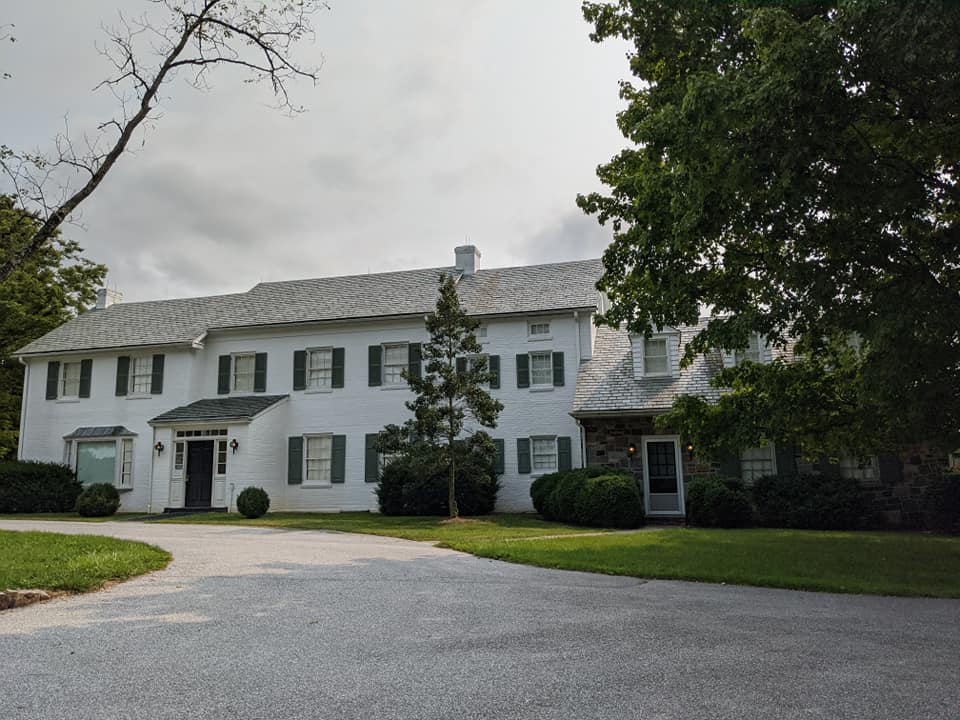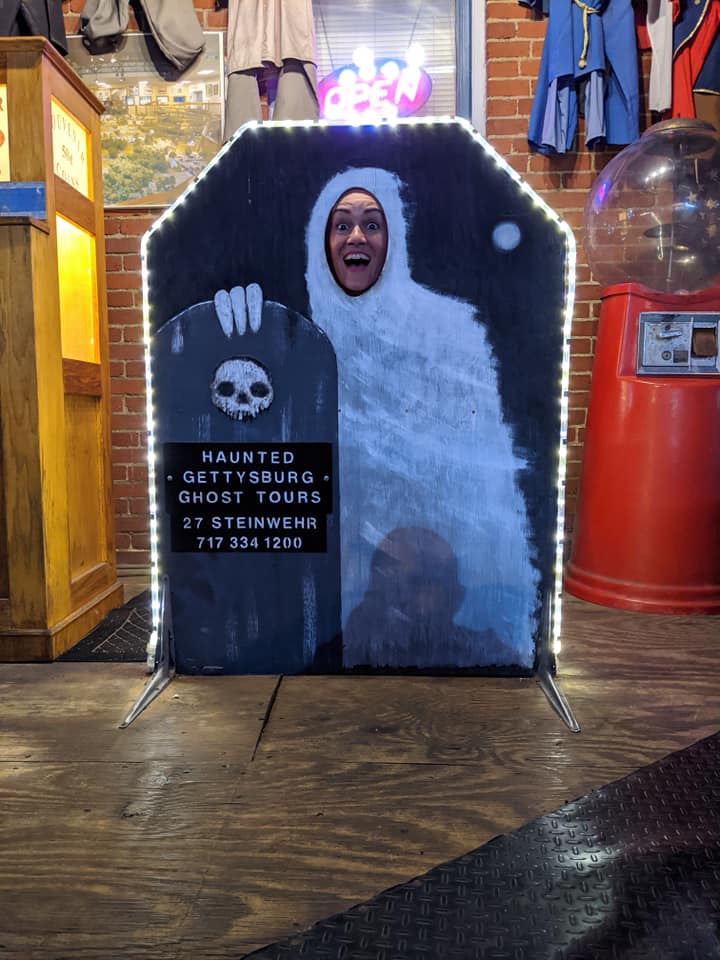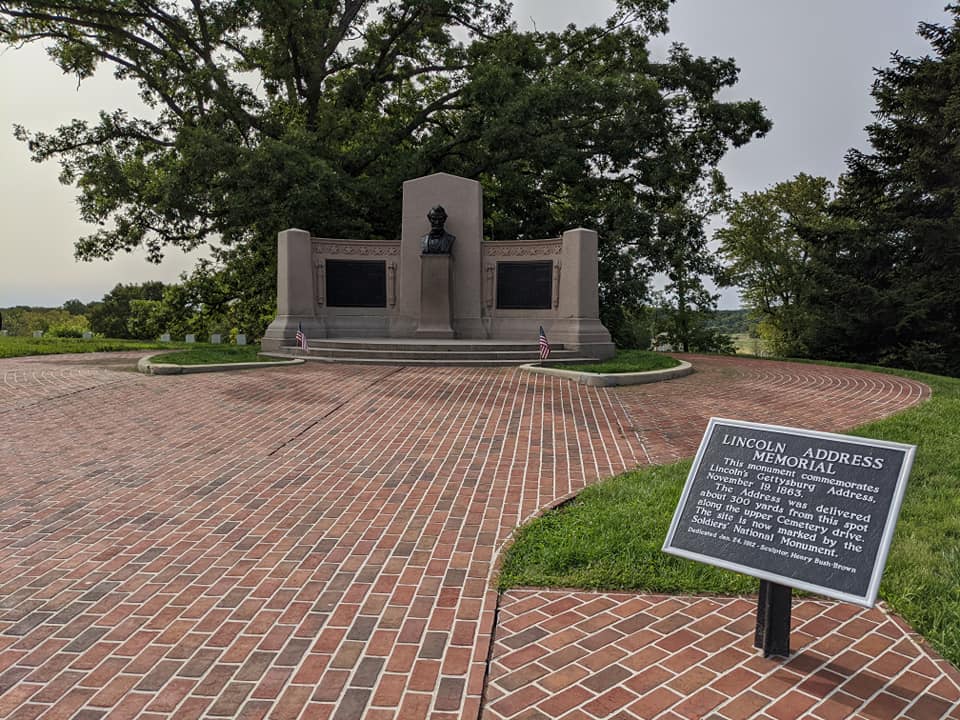We arrived in Sintra in the late afternoon, and checked into our hotel: Hotel Nova Sintra, which is run by a delightful man named Rui. Sintra is about a three and a half hour bus ride from Porto, and is about a half hour from Lisbon. After checking in, we walked to go find a place to eat. We found a nice restaurant Incomum, where we had pumpkin risotto, and vino verde (a specialty in Portugal). The waiter talked us into dessert, so we shared an orange mousse. We sat next to a nice couple from Belgium whom we spent a pleasant evening chatting with.
Most people visit Sintra from Lisbon; they just do a day trip. People told us “you just need a day,” but I disagree since there are so many beautiful sites there. Sintra is known for its palaces. It’s also a nice place to get away from big city life since it is a smaller town within the hills of Serra de Sintra. Historically, the wealthy wanted their palaces away from the hustle and bustle of Lisbon, and the cooler climate was a draw (it gets chilly at night). Sintra has castles, villas, beautiful scenery, and the ruins of a Moorish castle. Sintra is pretty much a UNESCO World Heritage Site (all the places we visited were). That should give you an idea about the kind of place you are visiting, and how much time you’ll need there. The Wayfaring Gals spent a few days there and throughly enjoyed our time.
The next day we started out at Quinta da Regaleira, a 19th century villa, which is a fusion of Neo-gothic architecture, ornately carved pinnacles, gardens, hidden caves and secret passageways leading down wells. The place is right out of a fairy tale. The wealthy Brazilian mining owner was fascinated by the Knights Templar and Freemasons, and you can see it in the details of the place. You can take a bus to the palaces and buy a pass. It would be hard to walk due to being uphill, so in order to maximize on time we decided to take Uber.
The best part of Quinta da Regaleira is the Initiation Well, with a stairway that descends down to a Templar Cross inscribed on the floor. The well was used for tarot initiation rites. There are caves that lead to the Poco Imperfeito (the Unfinished Well), and a waterfall. I recommend you go to the Initiation Well first thing in the morning due to the crowds. We were lucky that we got there early, and the lady working there let us stop and take pictures. We didn’t know, but you can’t go back in reverse, which we accidentally did (we were so excited to be there). We got some great pictures. As you go down the well, it descends to tunnels that take you to a lake and a beautiful waterfall.
The gardens at Quinta da Regaleira are beautiful, and you will enjoy exploring the place. You will need the map since the place is huge. The cafe had great coffee and treats, and has a beautiful view of the villa so I recommend a stop there for a snack or lunch. The villa itself was pretty, but you’ll spend most of the time out doors. You need at least a couple hours at Quinta da Regaleira. Pictures don’t do the place justice; it’s a beautiful escape that transports you in time.
Afterwards, we took an Uber to Monserrate Palace, which is a villa named after the chapel Our Lady of Monserrate that was constructed on the top of the hill. An English merchant purchased the property. Lord Byron visited the property in 1809, and mentioned it in his poem Childe Harold’s Pilgrimage. Francis Cook purchased the property in 1863, and began work on it. Cook had also received the title of Viscount of Monserrate by the king. The palace became the summer residence of the Cook family. The design of Monserrate Palace was influenced by Romanticism with Neo-gothic and Moorish revival architecture elements. There is a large park around the property where you can enjoy the grounds. The palace itself is amazing. It has a hallway that leads to a central fountain, where you can see the main dome. You’ll definitely want a look inside. The grounds are pretty vast so you’ll need at least a couple hours here as well.
We took an Uber back to town, and had lunch in the center of the city where we could sit outside and enjoy live music while people watching. We were feeling energetic so we ended up walking to Sintra Palace. The palace is one of the best preserved medieval royal residences in Portugal, being inhabited from the 15th to 19th centuries. The Coat of Arms Room is absolutely breath taking with its domed ceiling and azulejo (remember blue tile work) on the walls. It’s not as busy as the other palaces, but a recommended place to visit. There were much less people her, which was nice. After getting dinner in town, we went back to our hotel to enjoy some wine and relax.
The next day we took a taxi to Pena Palace, which is in the Sintra mountains above the town (which is very high up and difficult to walk). Taxi is better than Uber since they can drop you off closer to the entrance. Pena Palace is the most famous palace in Sintra, and the one that you see the most pictures of. It looks like a place right out of a Disney movie with its bright painted colors of red, blue, and yellow on the exterior. It used to be a monastery, which was acquired from King Ferdinand who then transformed it into a palace that exemplifies 19th century Romanticism (the castle was completed in 1854). Pena Palace was purchased by the Portuguese state in 1889, but became a national monument, and transformed into a museum after the Republican Revolution of 1910. This place definitely matched the Wayfaring Gals personality the most!
When you get to Pena Palace, take the shuttle since it is an uphill walk to the actual castle, and you will get plenty of exercise once there. At the castle, I recommend you visit the interior first to knock that out; it’s a typical palace and nothing special. We went when it was so crowded that we couldn’t move. The castle exterior is the best part and definitely go into the chapel. The cafe there has lousy coffee; we were not impressed, but it’s good place to take a break and hydrate. Afterwards, we walked downhill in order to explore the beautiful grounds and scenery. We found a peaceful pond with swans and palm trees that we enjoyed before leaving to walk over to the Castle of the Moors, which is nearby.
The Castle of the Moors is the ruins of a Moorish palace. It was built by the Moors in the 8th and 9th centuries, and was taken over by Christian forces after the fall of Lisbon in 1147. The castle holds a strategic view along the coastline and surrounding lands. You will enjoy the views of Sintra walking along the walls. Be wary of the bugs in certain spots, we couldn’t go up some areas due to swarms that looked right out of a horror movie; the air was thick with insects! Thankfully, that was just one area so we were able to walk along most of the walls of the castle. There is also a museum there with historical and archeological information on the site, as well as artifacts including bones excavated at the site.
After visiting the Castle of the Moors, we walked down to the city center, visiting some shops and picking up souvenirs (like painted ceramic tiles). We found a restaurant that had decent food, but the service was terrible. The waiter forgot some of our order then became upset with us when we told him to forget it. We had been waiting a while so we just wanted to go and not prolong our stay there. Our hotel had a nice roof top where we could have drinks and enjoy a beautiful view of the moon and Castle of the Moors in the background. We enjoyed all the places we visited in Sintra, and that we had time to explore and not cram it all in one day.
The next day we took an Uber to Lisbon since it’s about half a hour away. We stayed at a hotel near the airport. We took a shuttle to the airport to take a COVID19 test. Thankfully, we had an appointment and got priority (the line without an appointment was crazy). The test was fifty euros total for us, but we needed it to get back home. Thankfully we got the results a few hours later and could enjoy our last day in Portugal without the stress of the test looming over us.
After the test was taken care of, we took an Uber to Cristo Rei or Christ the King, Portugal’s version of the Christ the Redeemer statue from Rio de Janeiro in Brazil. I have visited the one in Brazil so it was fitting for me to visit the sister statue in Portugal. The statue was erected in gratitude because the country was spared the destruction of WWII. The statue was inaugurated in 1959. Since the statue was erected on a clifftop overlooking the Tagus River, there are beautiful views of Lisbon. Christ has his arms extended facing the city. Under the statue is a Chapel of our Lady of Peace where there are some beautiful paintings on display, reminiscent of El Greco’s style. There is a cafeteria outside where we had a pastry and beers.
After walking around Lisbon some more, we took another look at Pink Street and went back to the seafood place we had eaten at Sol e Pesca for a late lunch. We also tried Time Out Market, a food hall in the city with different vendors so you can sample some Portuguese food. We then decided to head back to our hotel, and then went to the hotel next door to purchase tickets for the swimming pool so we could unwind there. We had an early flight the next morning so we wanted a relaxing evening before heading back home.
We had such a great time in Portugal; we both wanted to stay longer since there is so much to see. You can take a tour, or do it on your own like we did (which is much cheaper). Portuguese people speak multiple languages so we didn’t have any trouble communicating. The people were friendly and we didn’t have any issues. I recommend staying two weeks or even more if you can. We met some people that rented a car, which gave them the freedom to go to more smaller towns. Whichever way you decide to do it, you’ll have an amazing time in Portugal!
If you like our Facebook page, there are videos from the trip posted that you can check out as well. I also update the Instagram WayfaringGal page (which has more photos from the trip) with new posts. Thank you for reading, and comments and feedback are always welcome since that is how we learn and grow.
